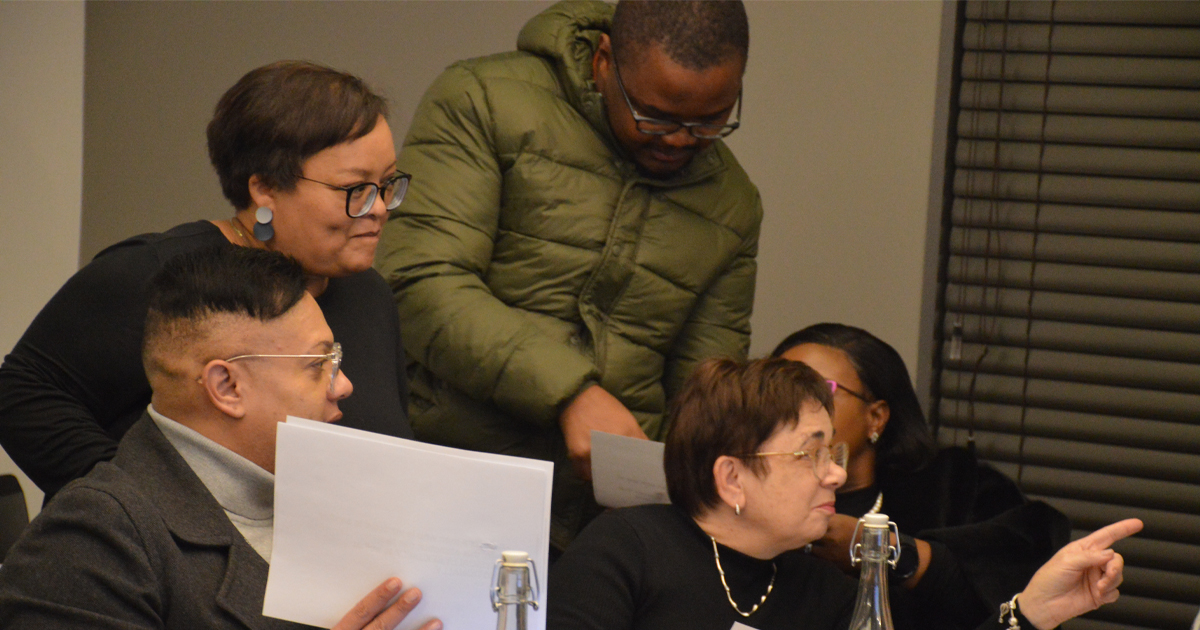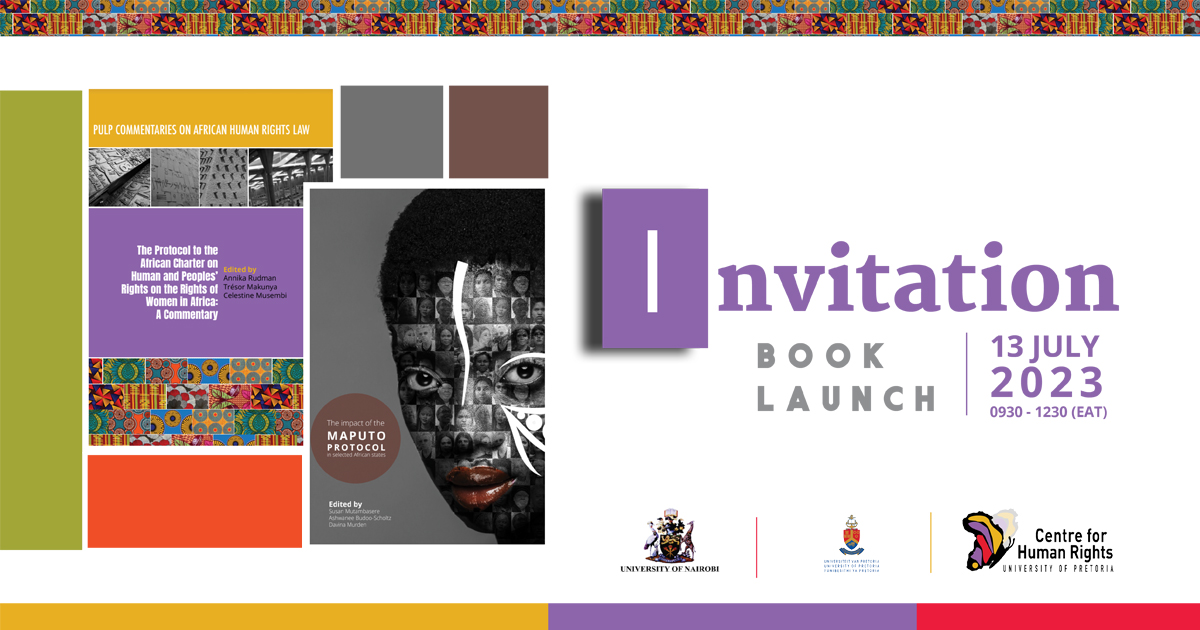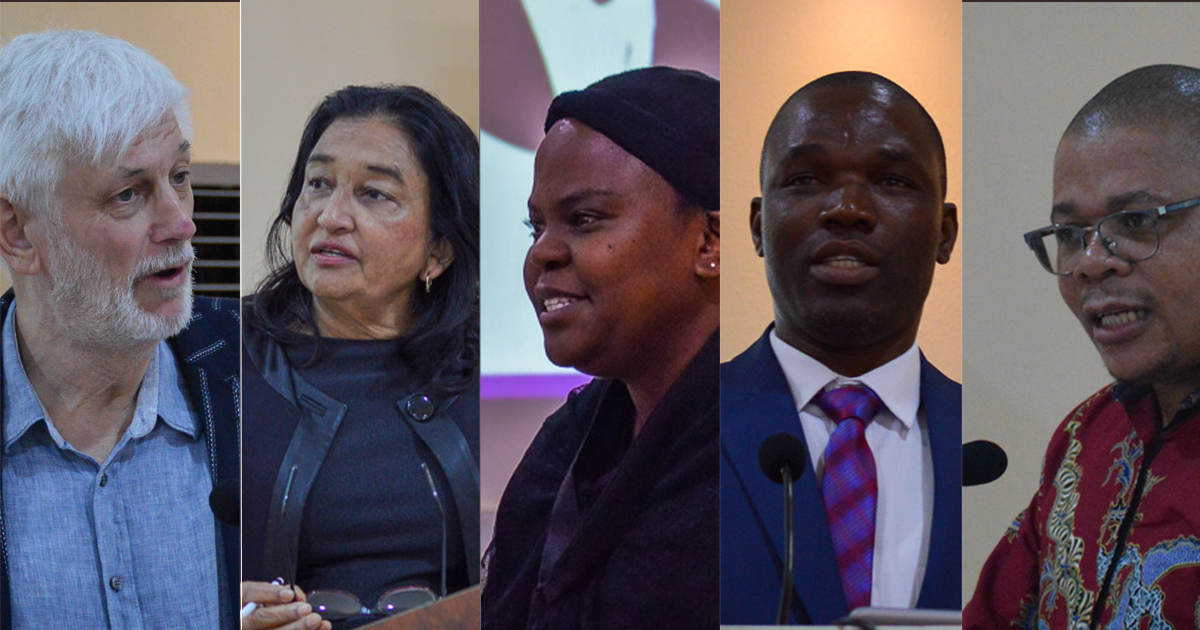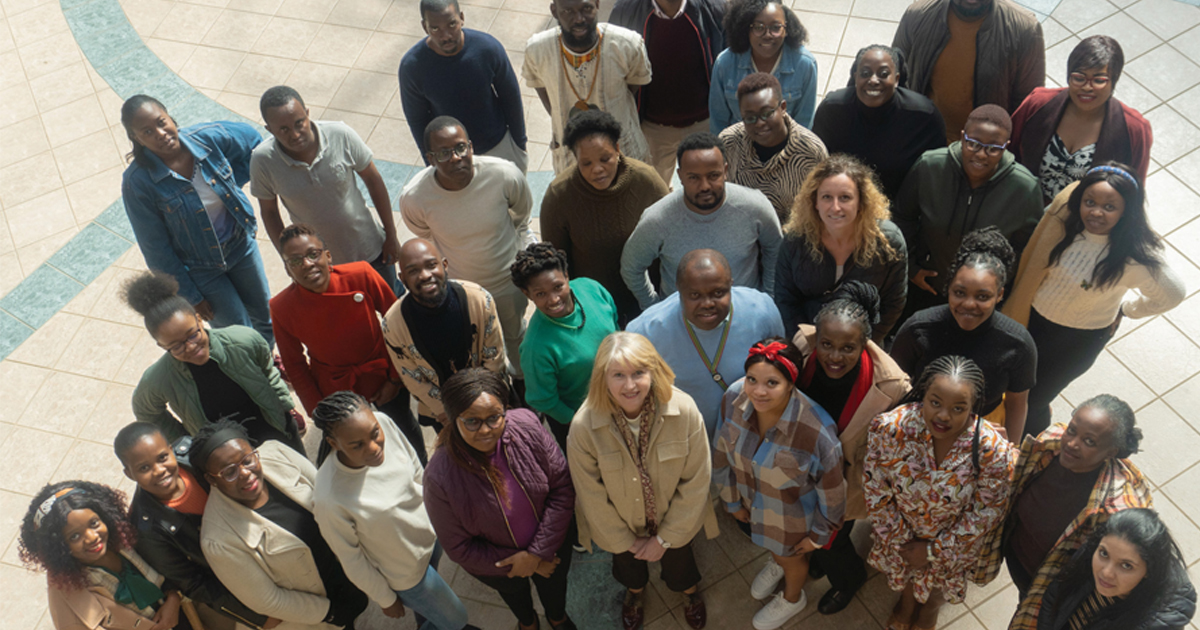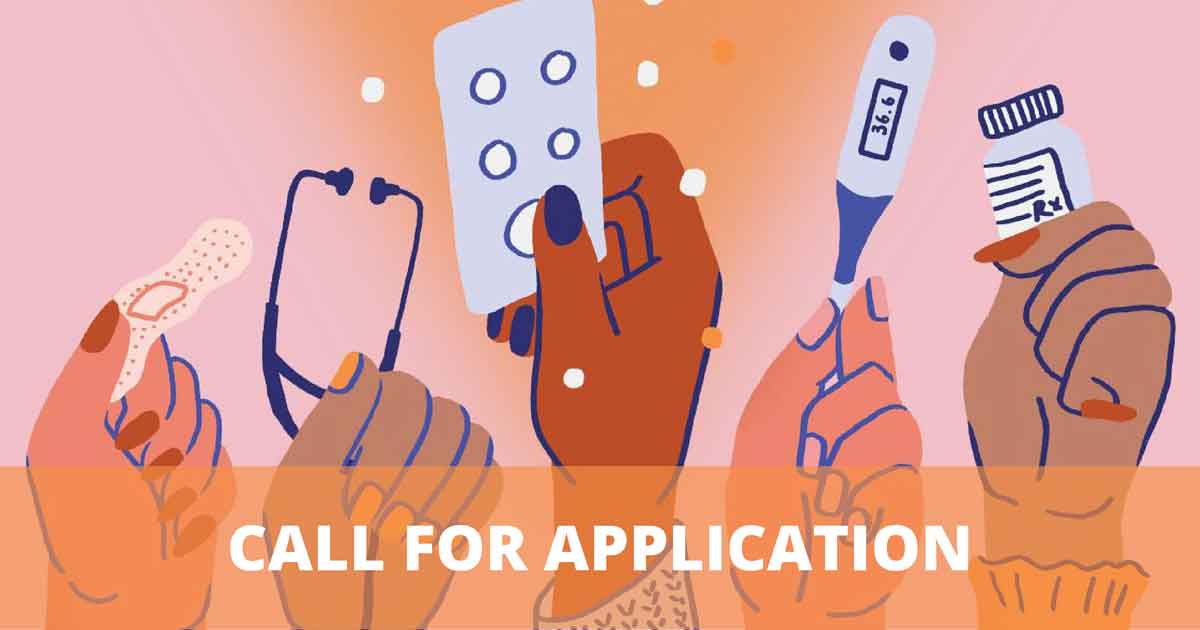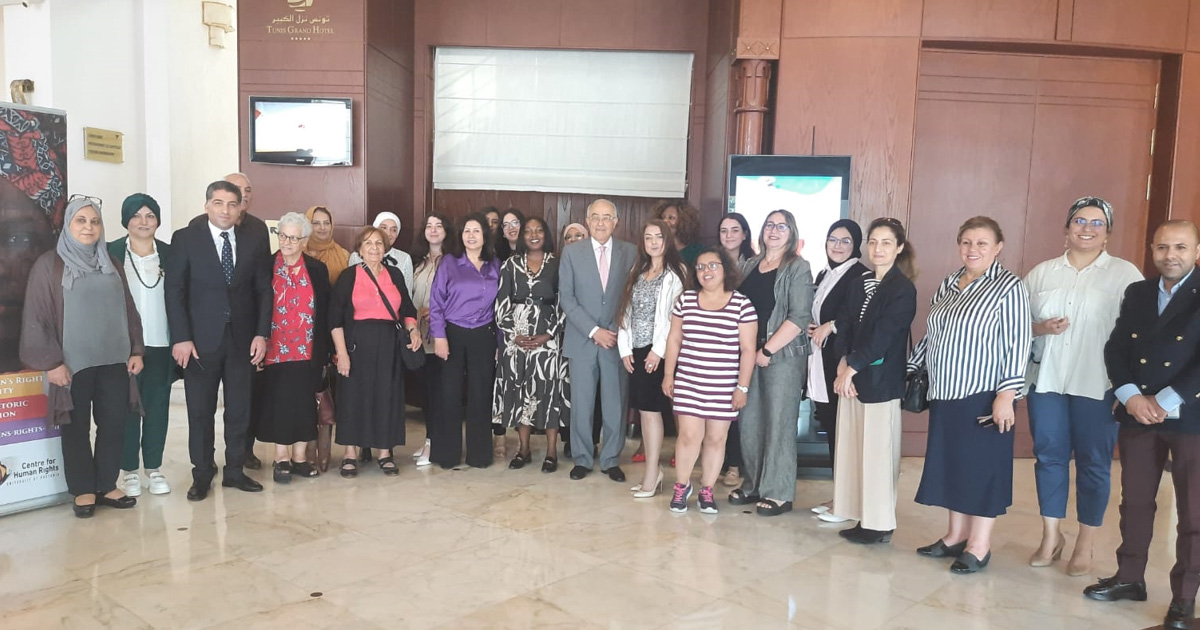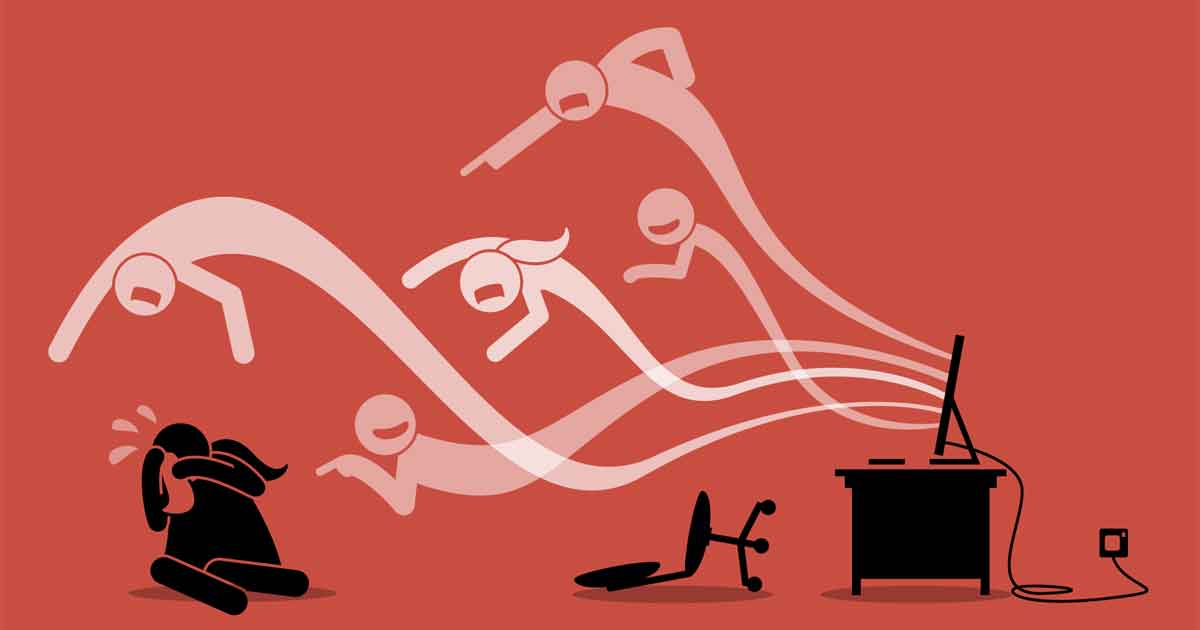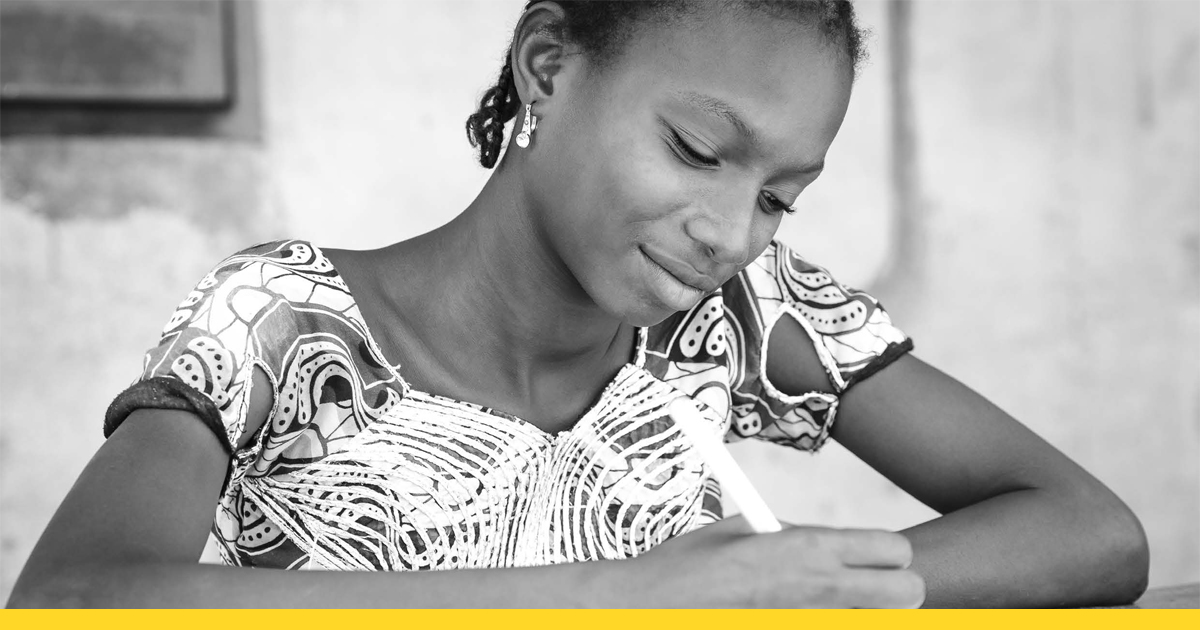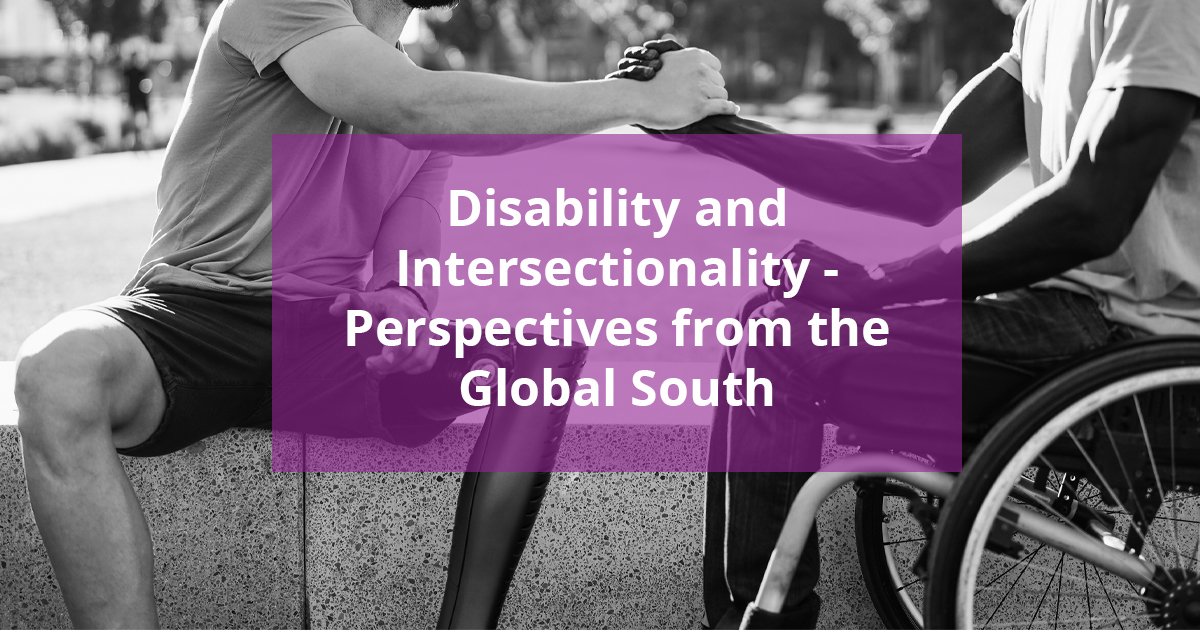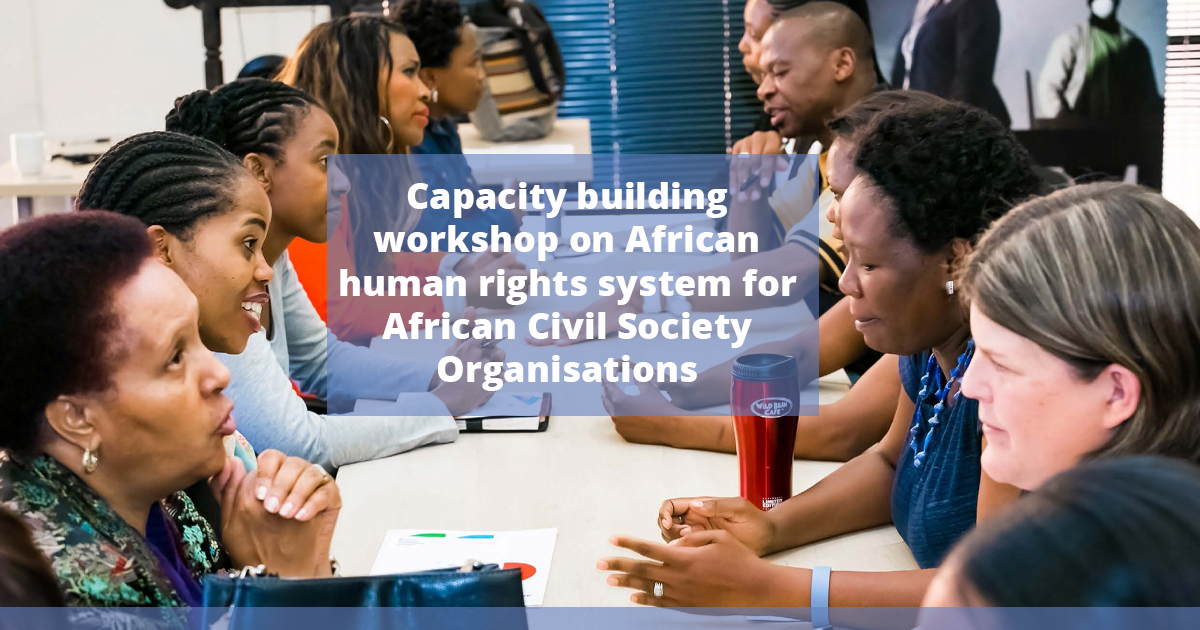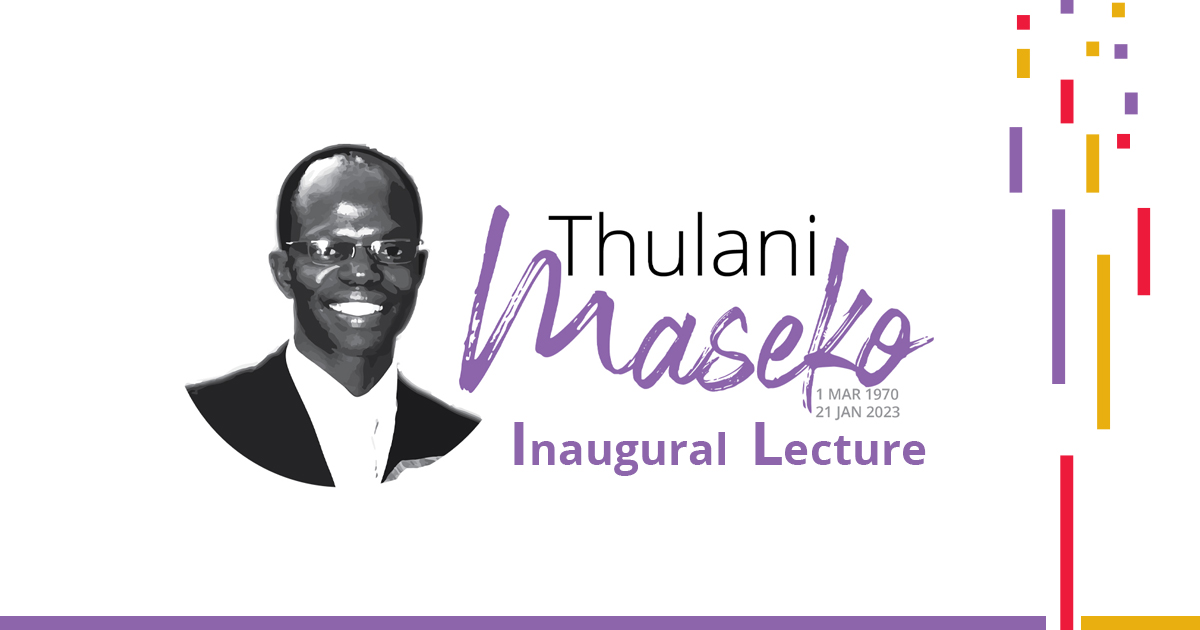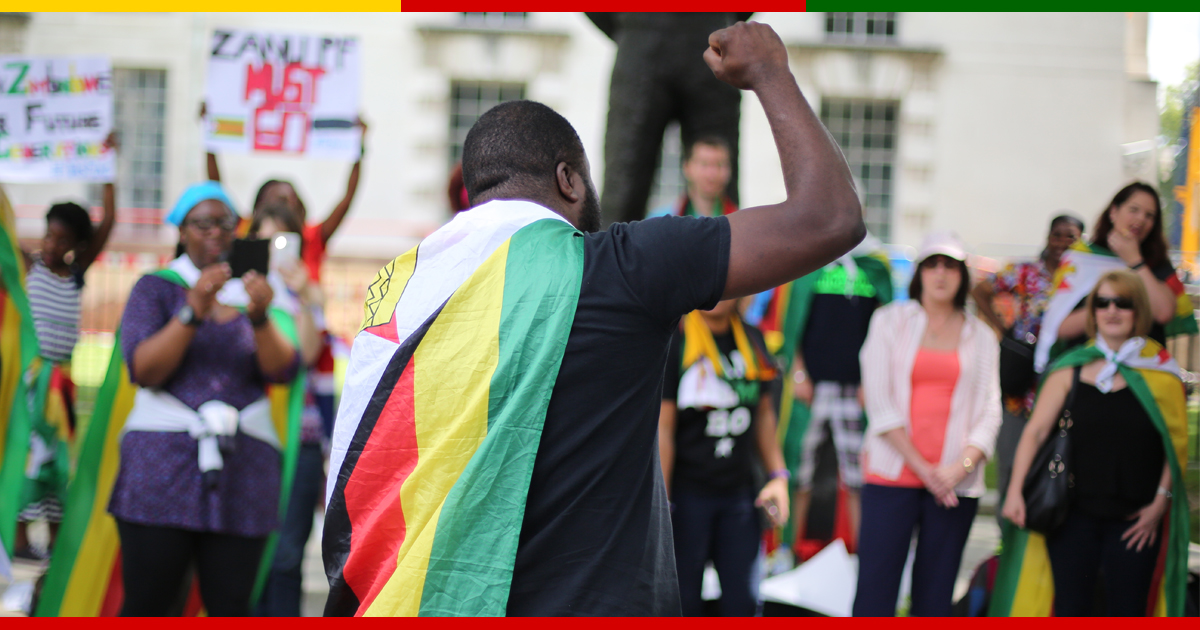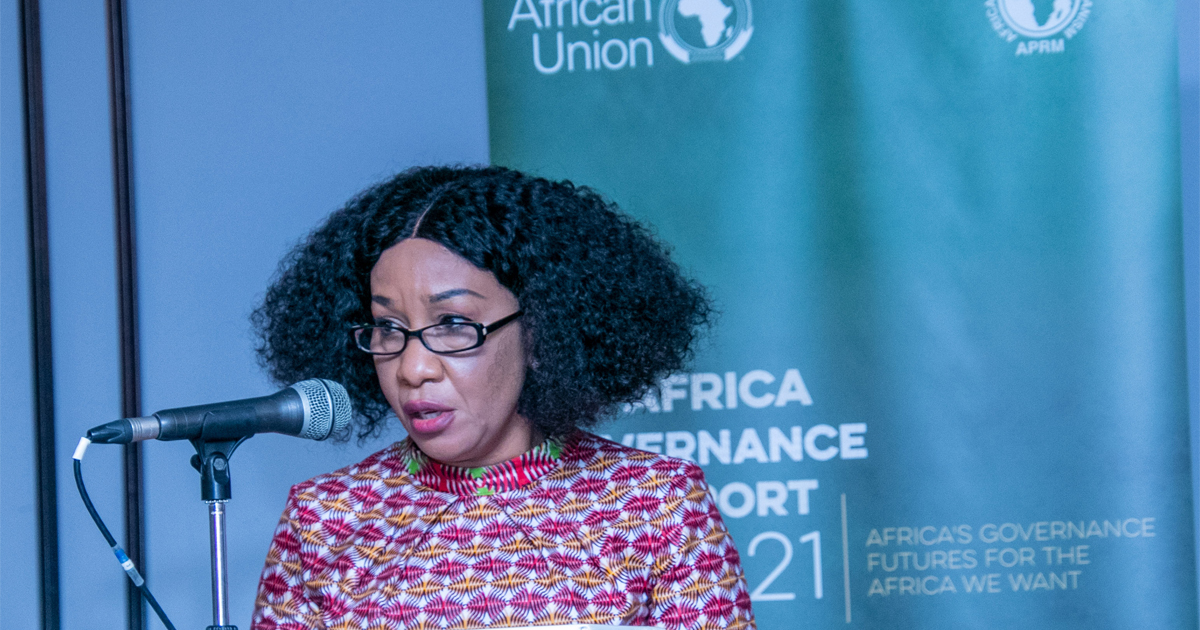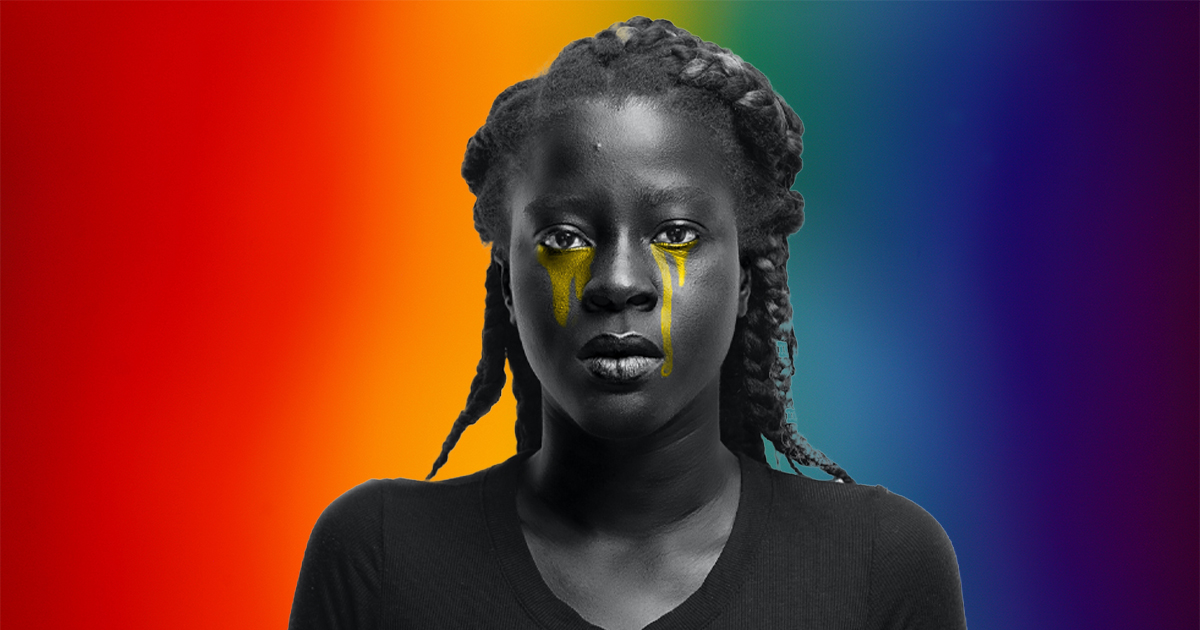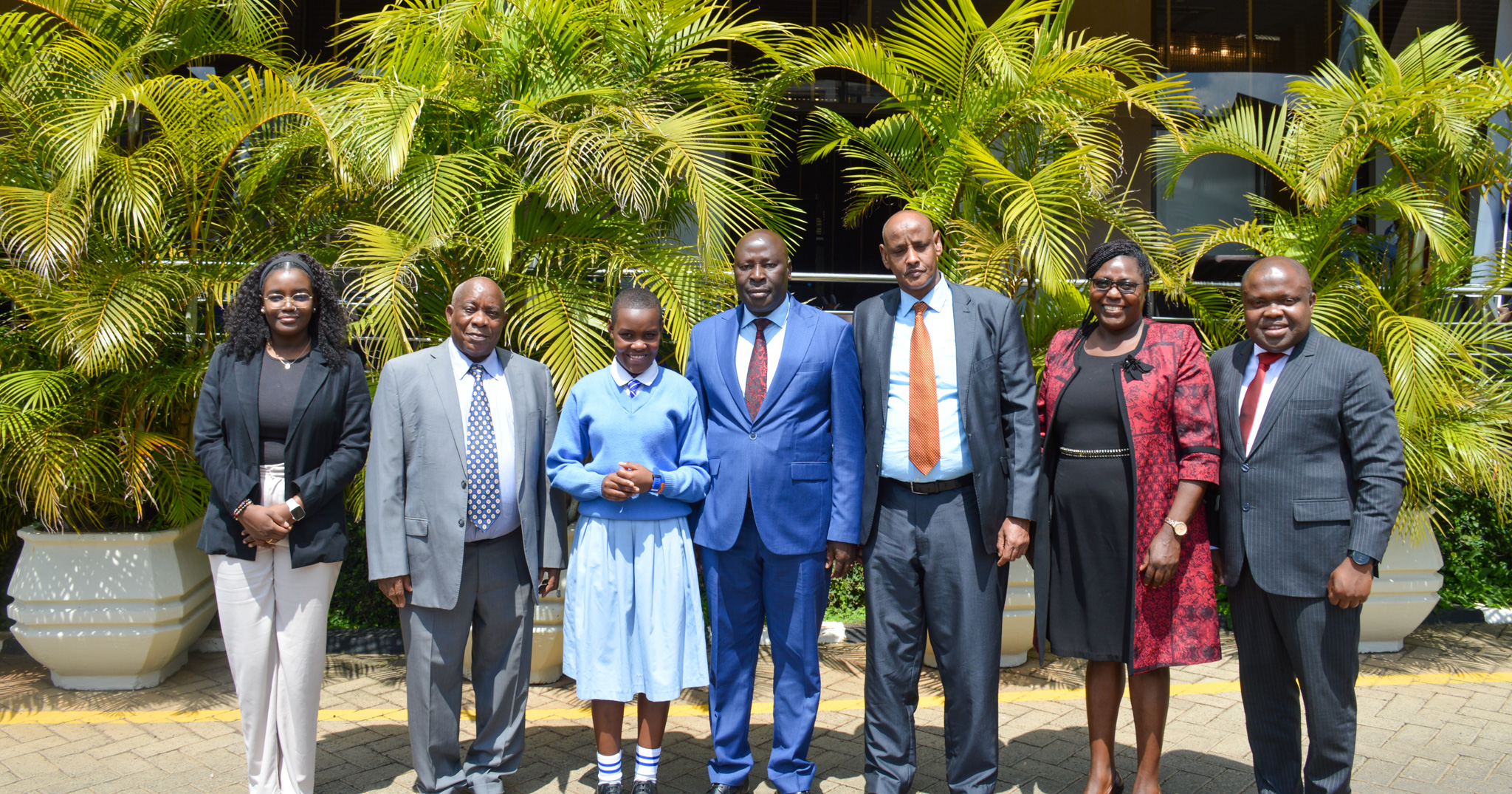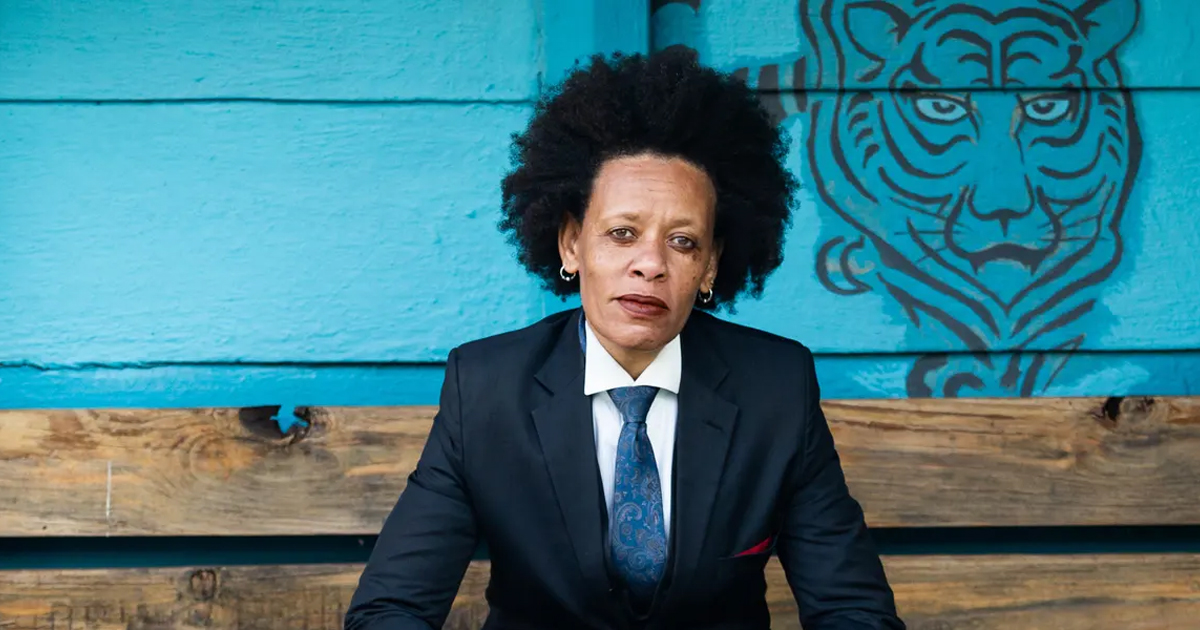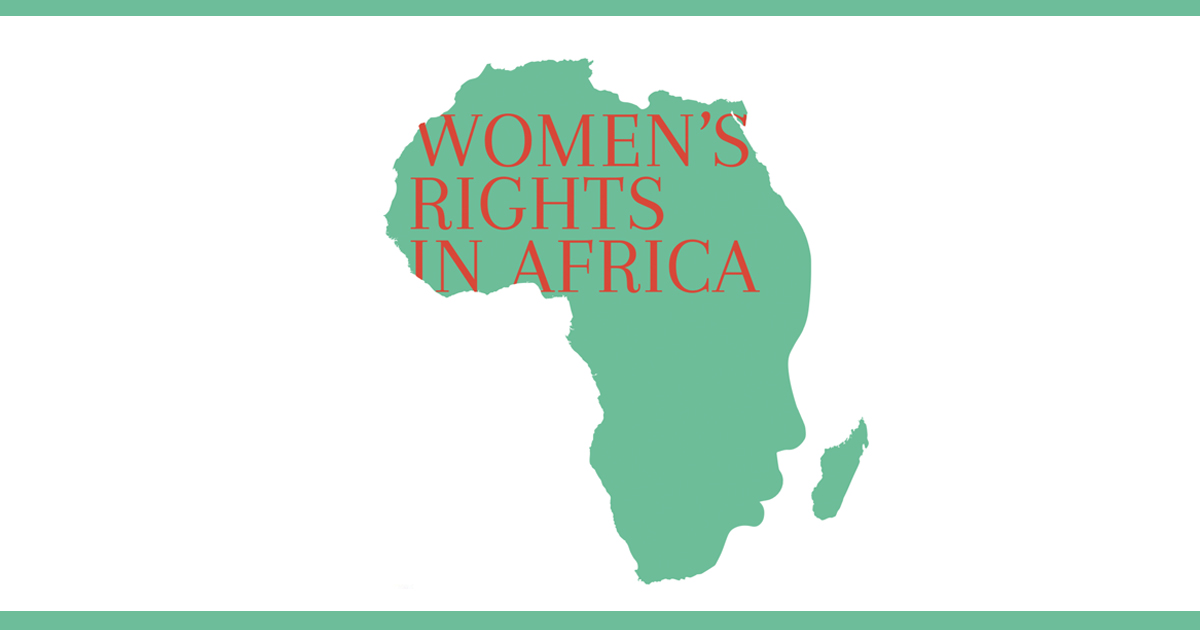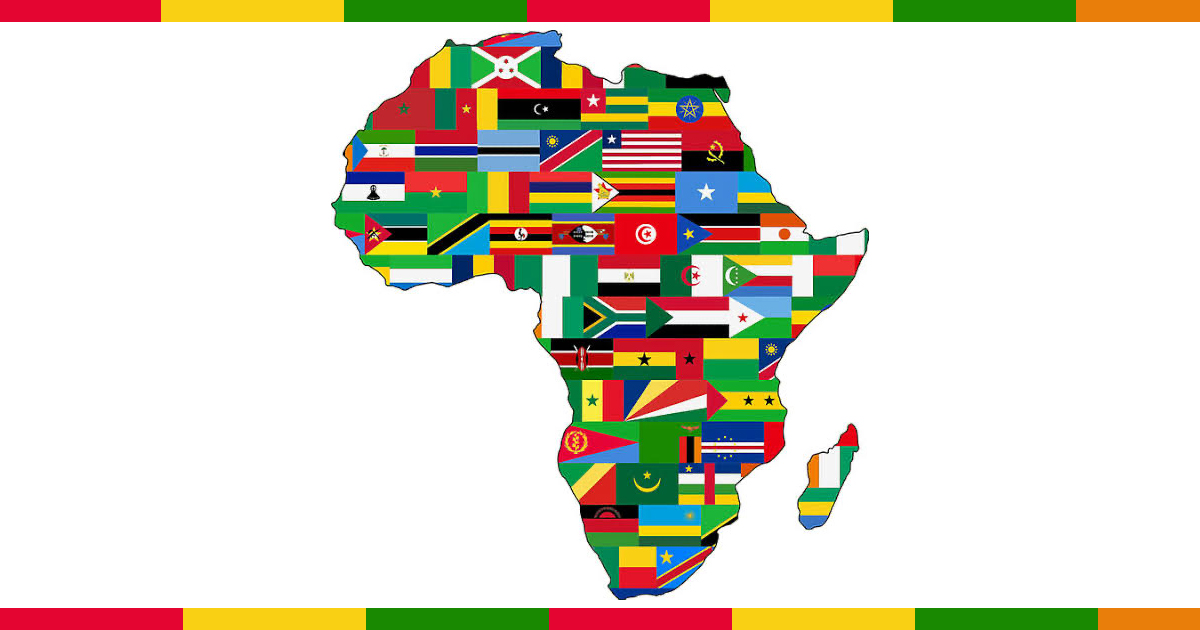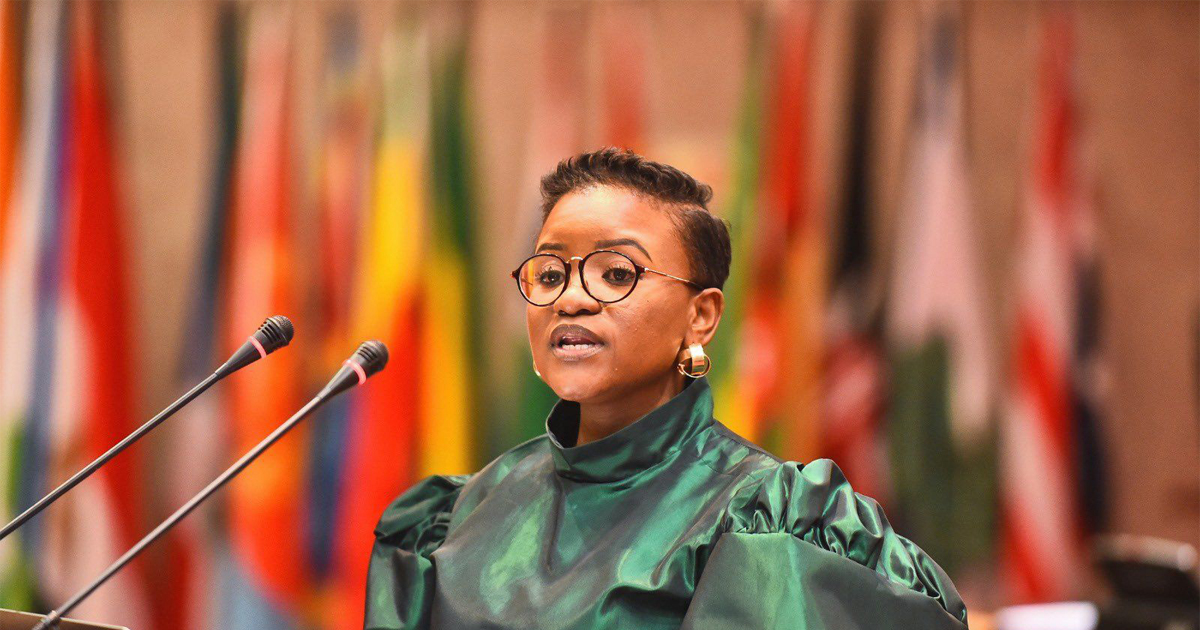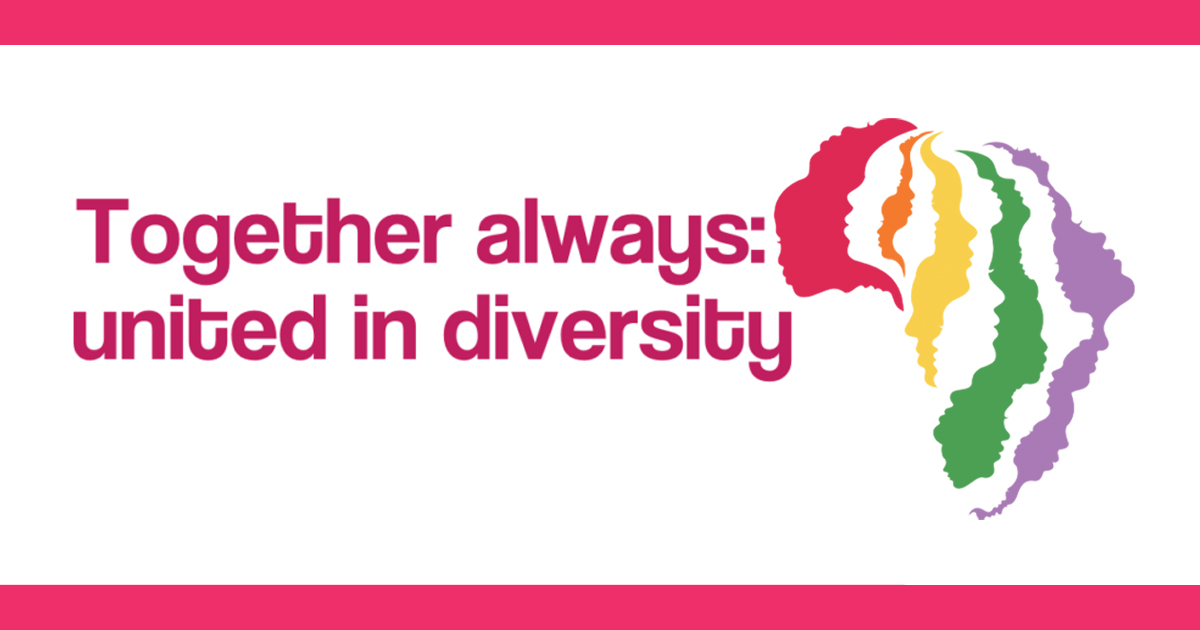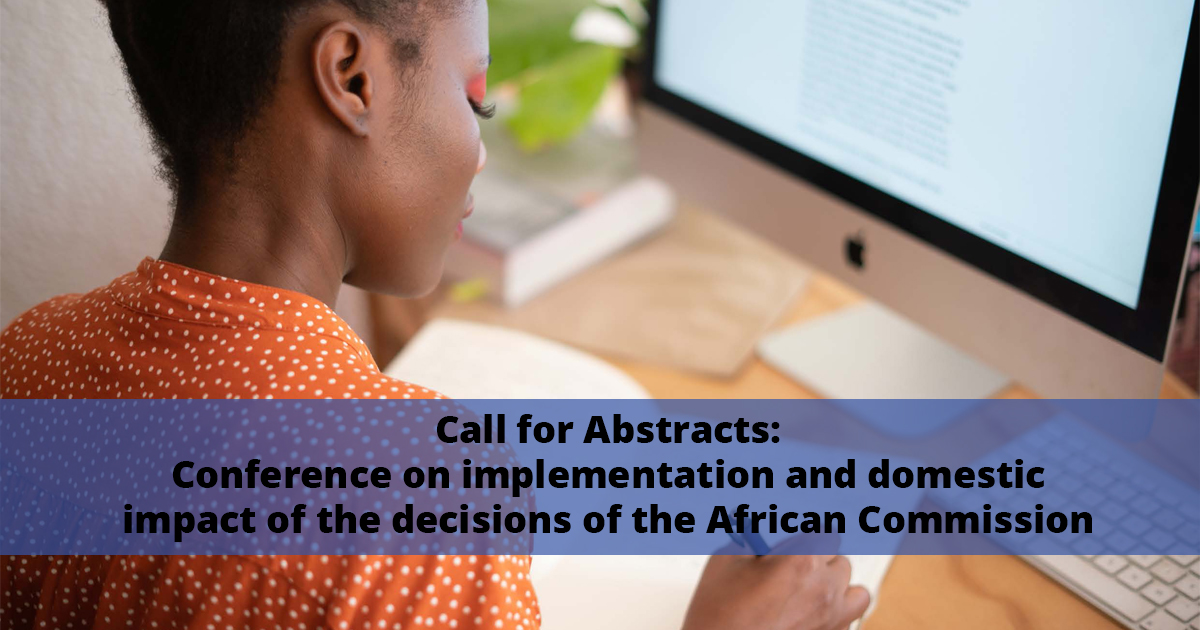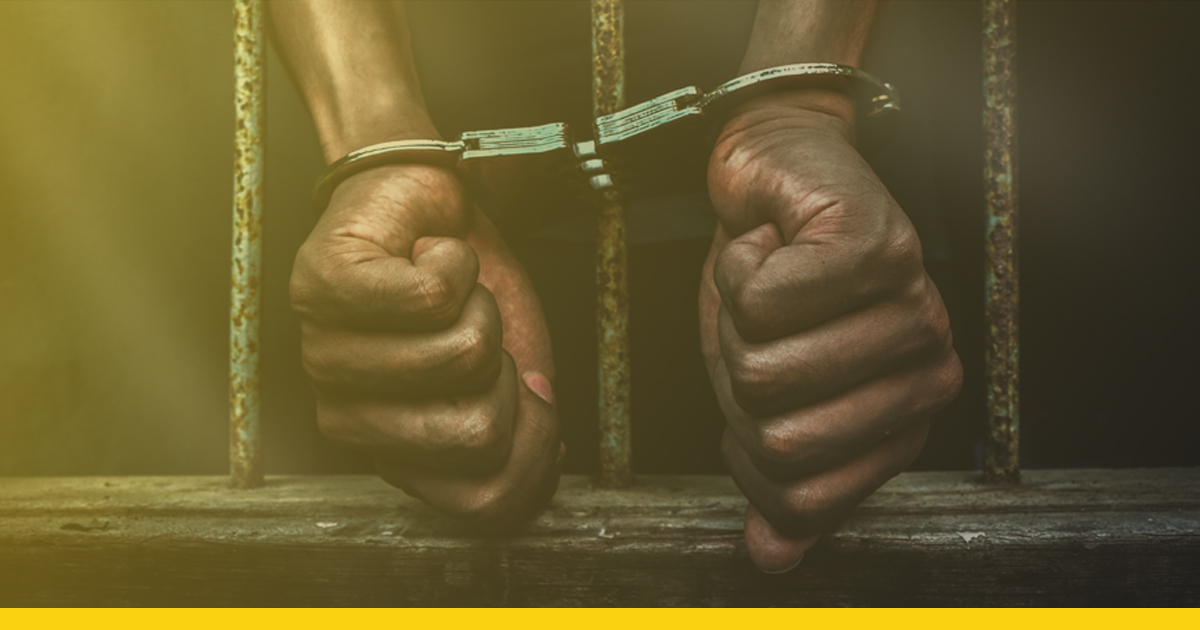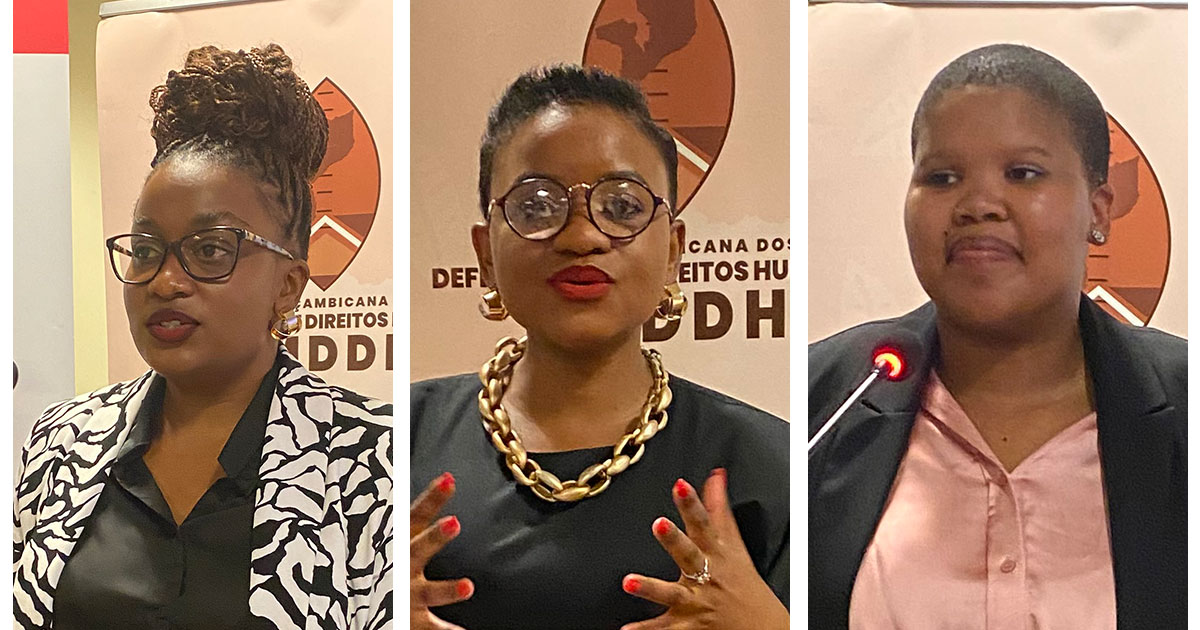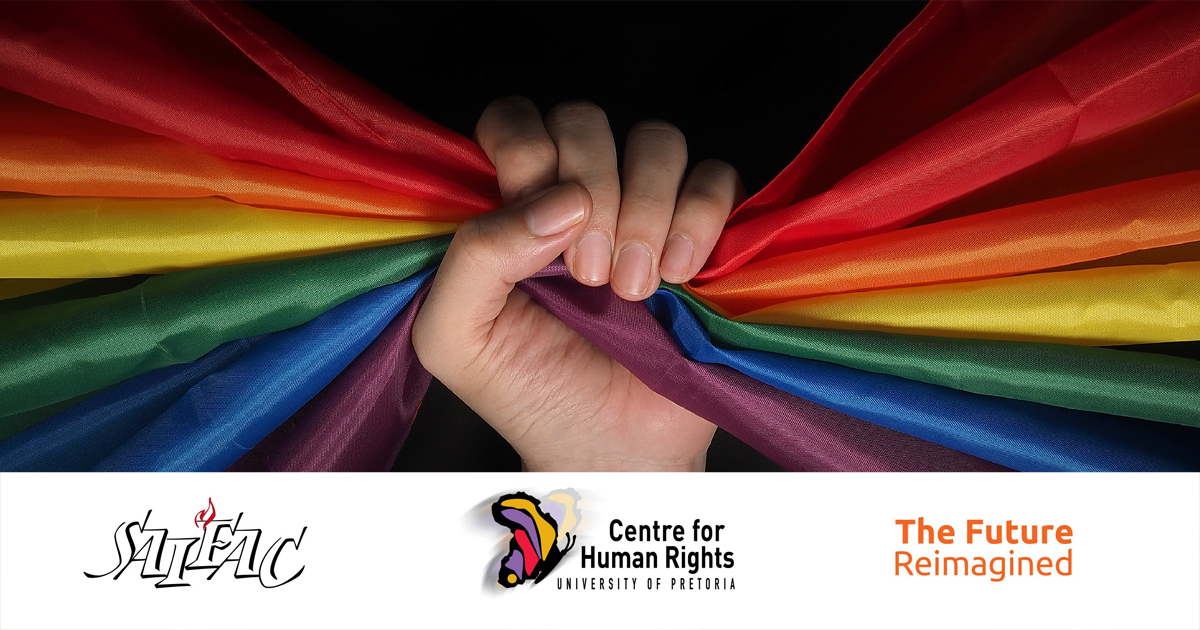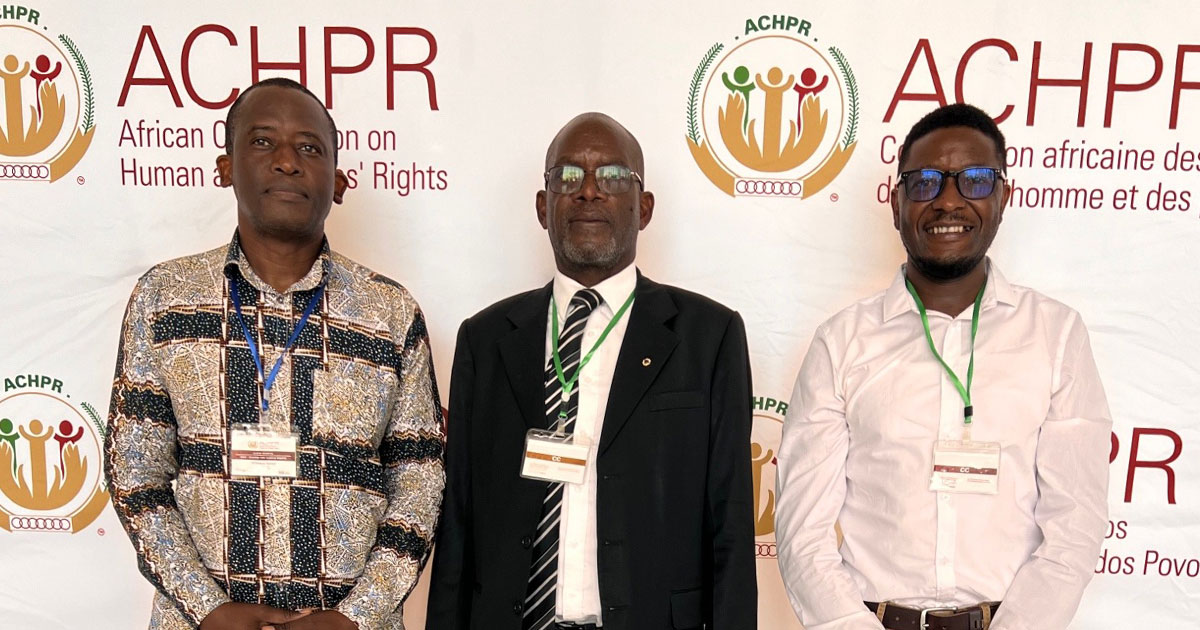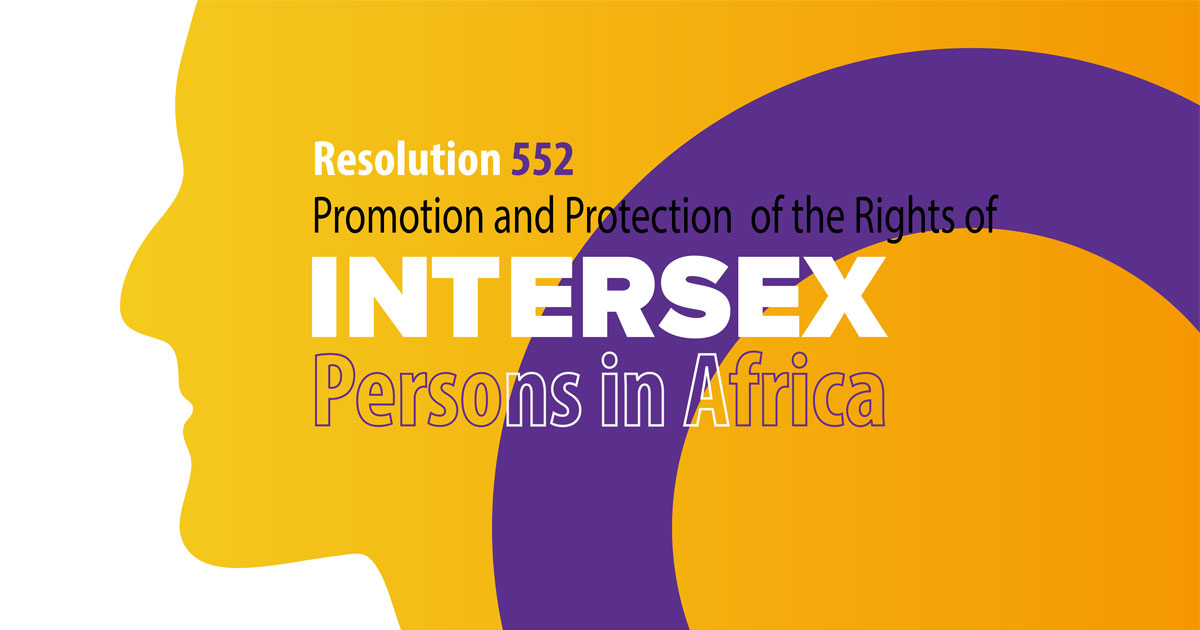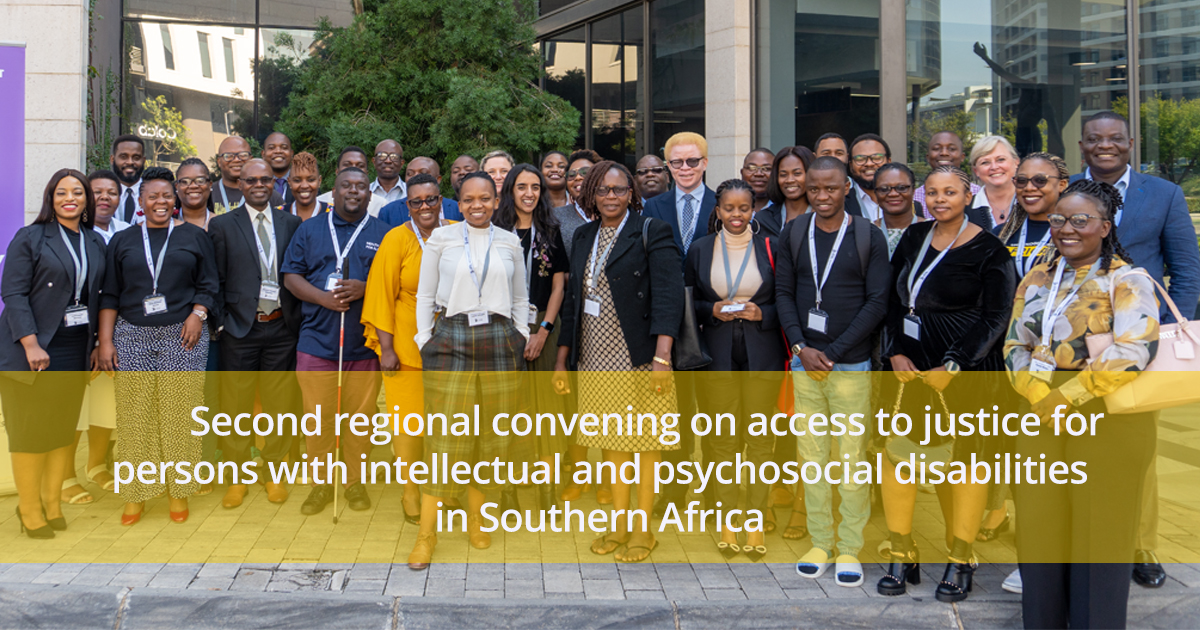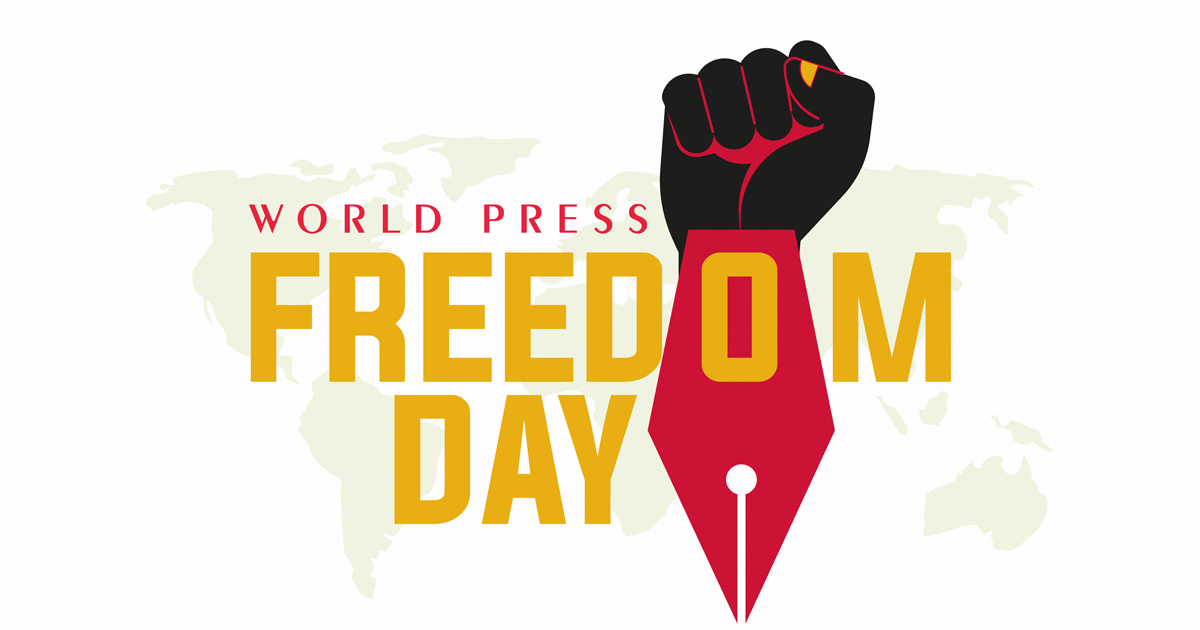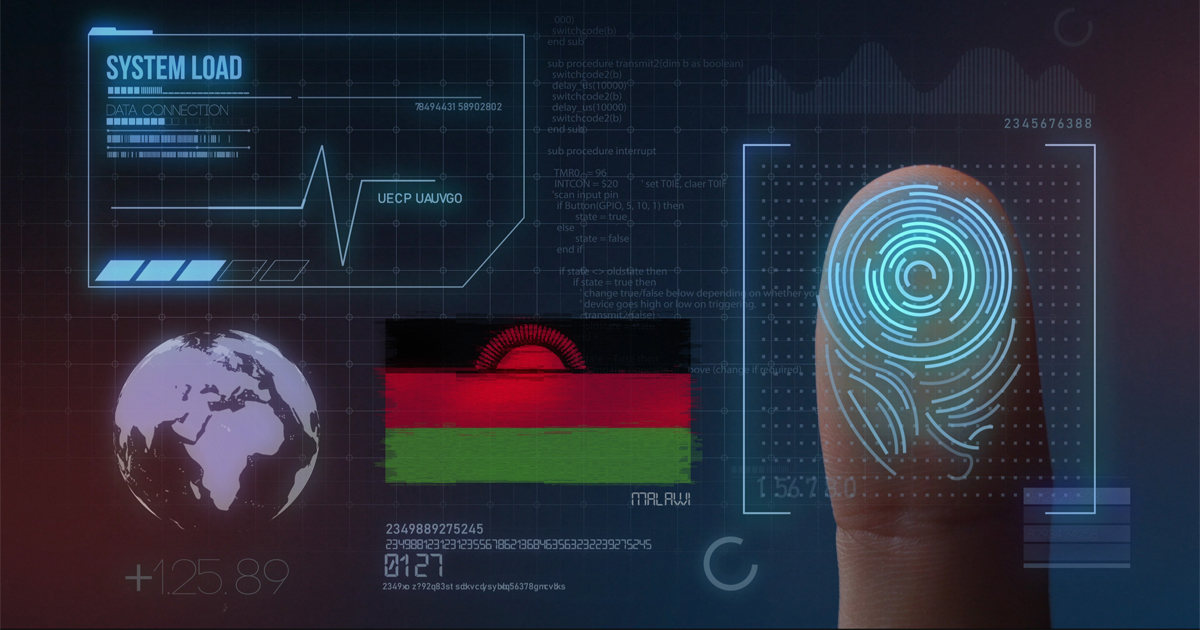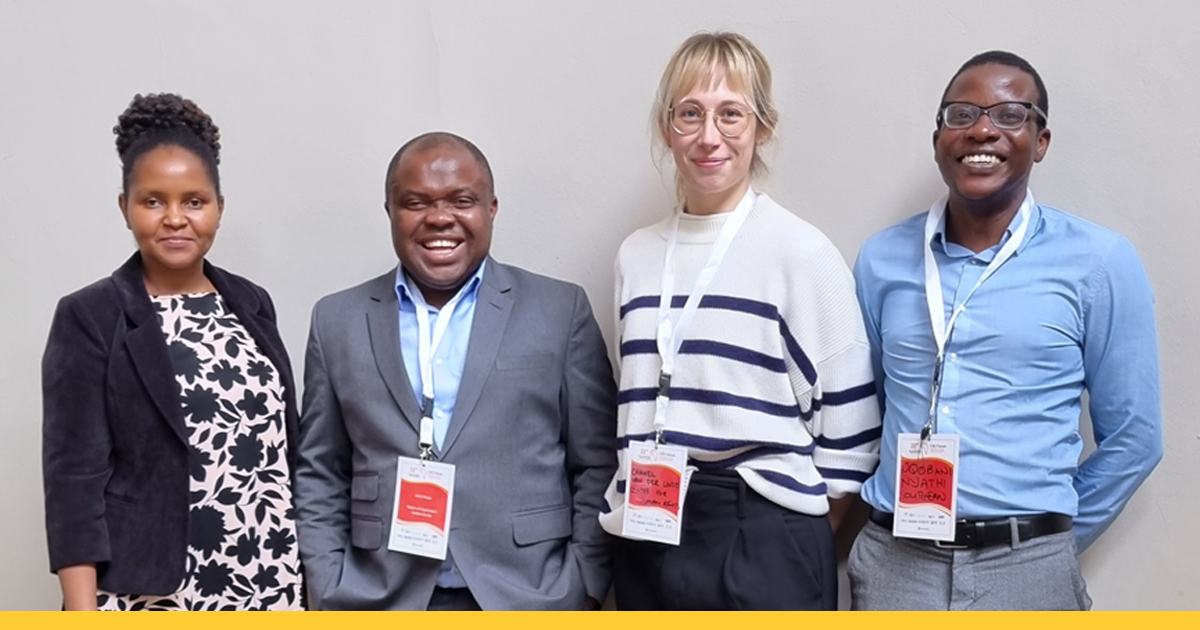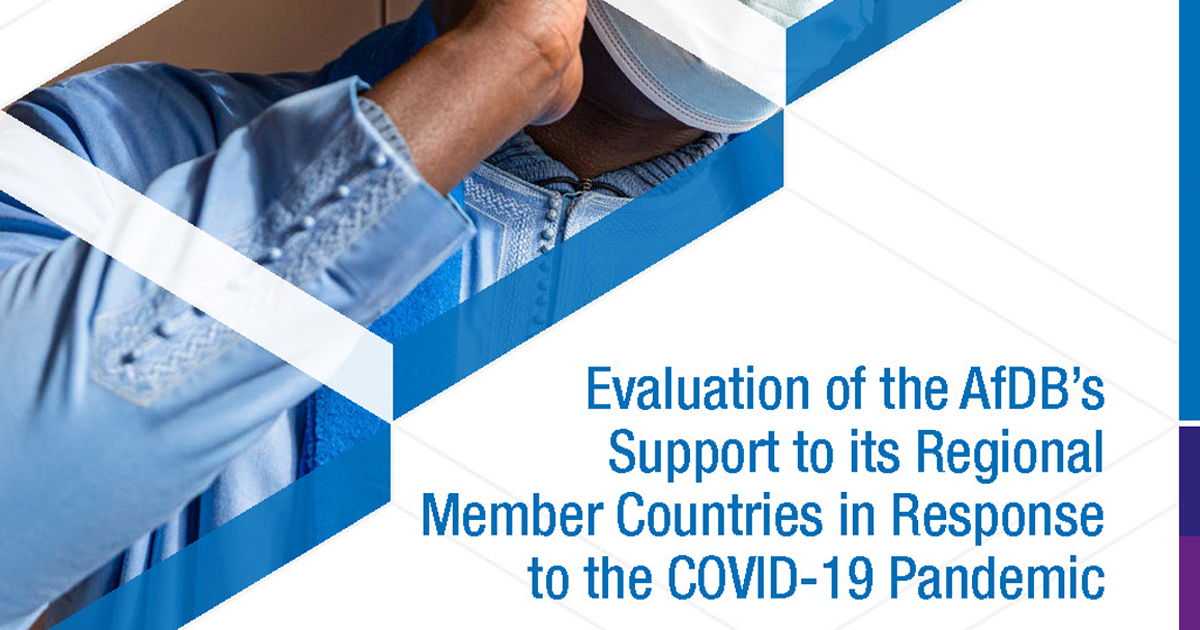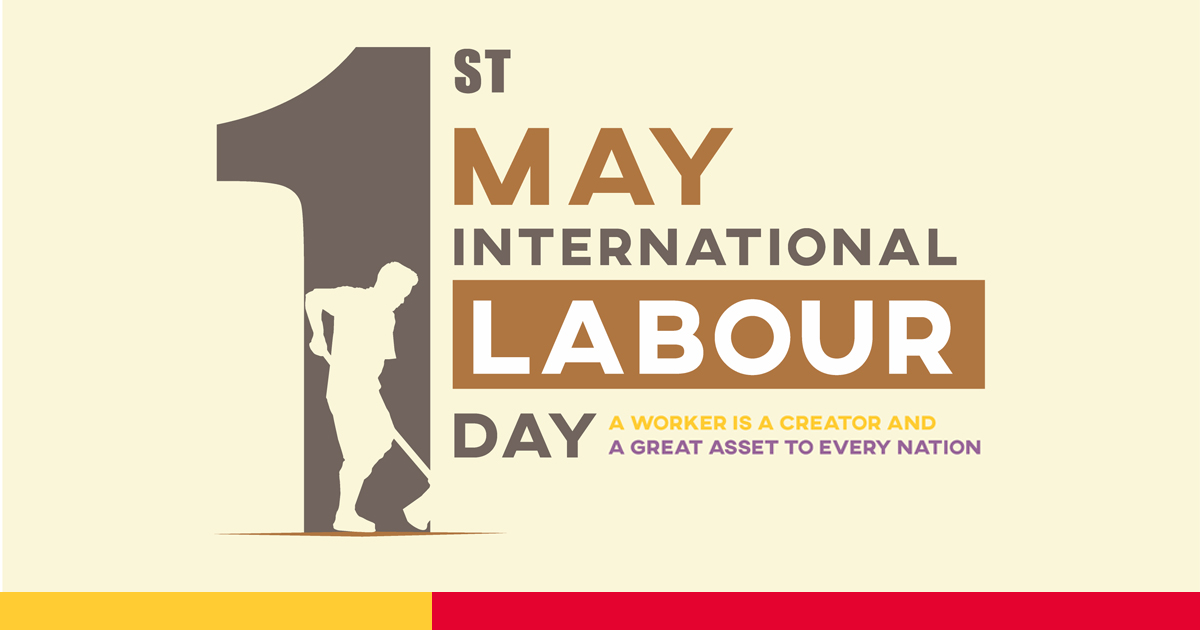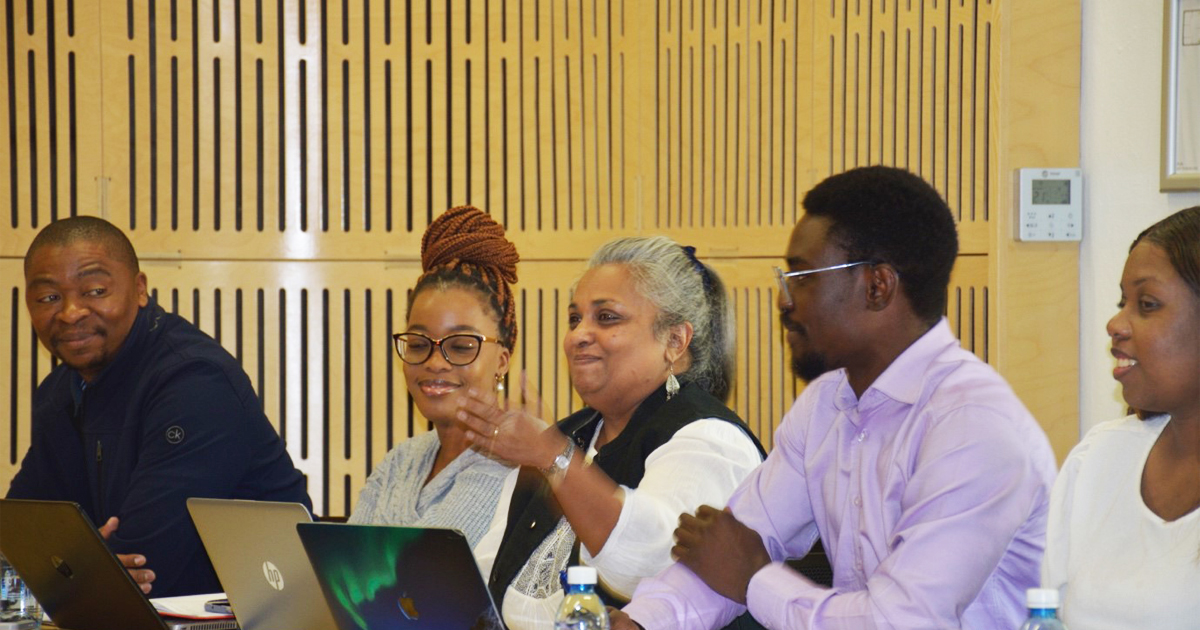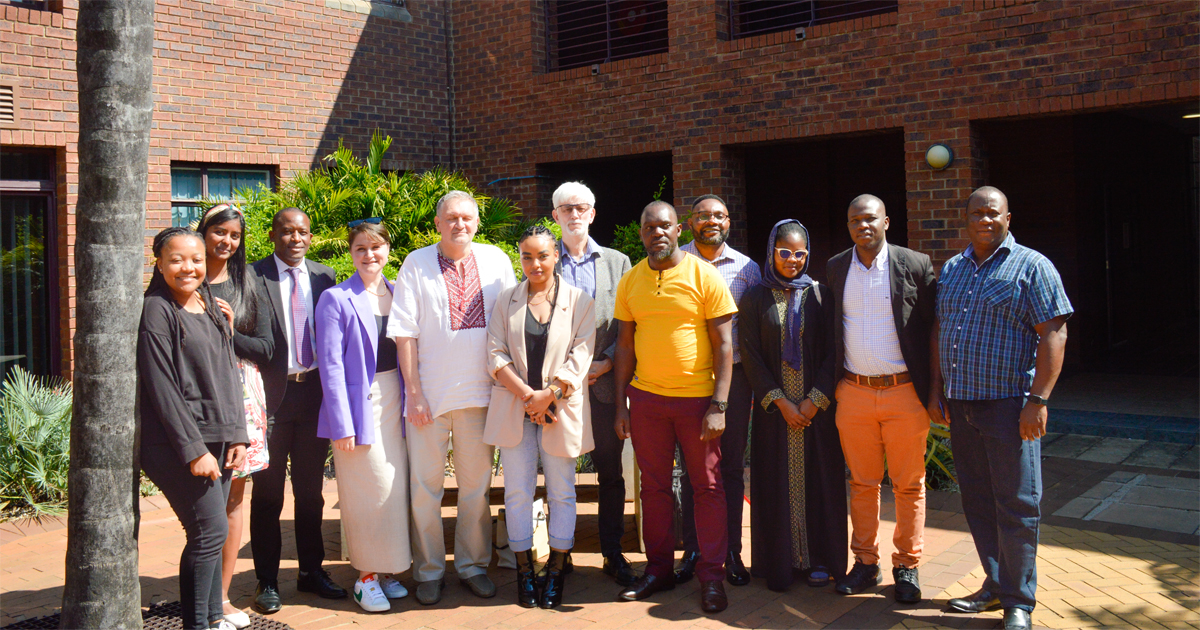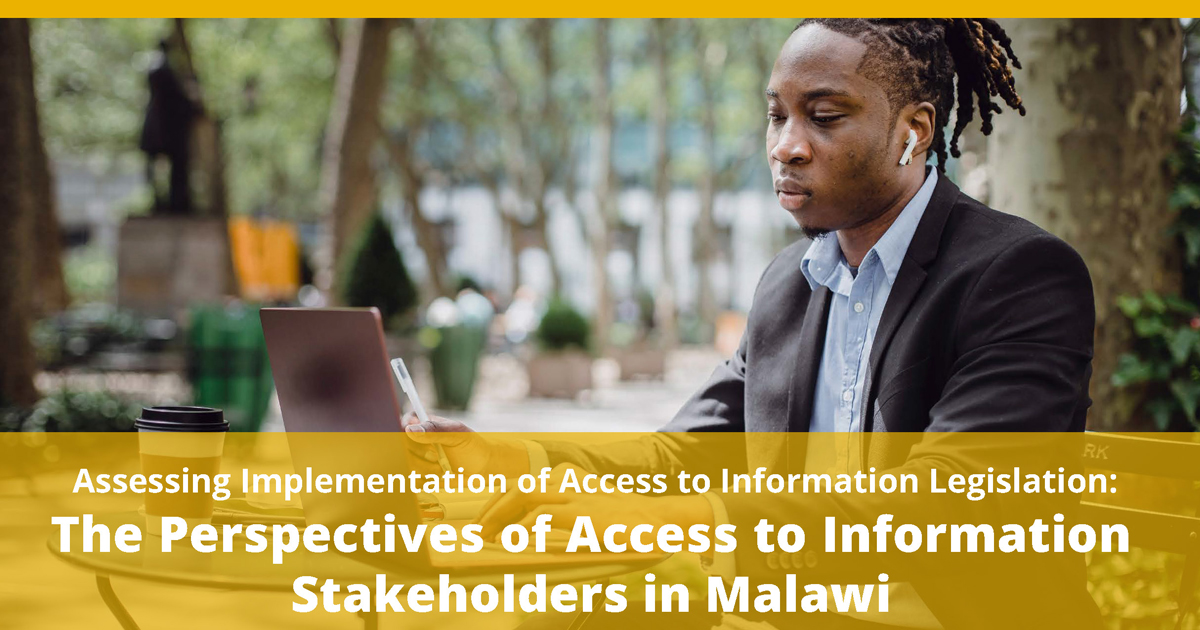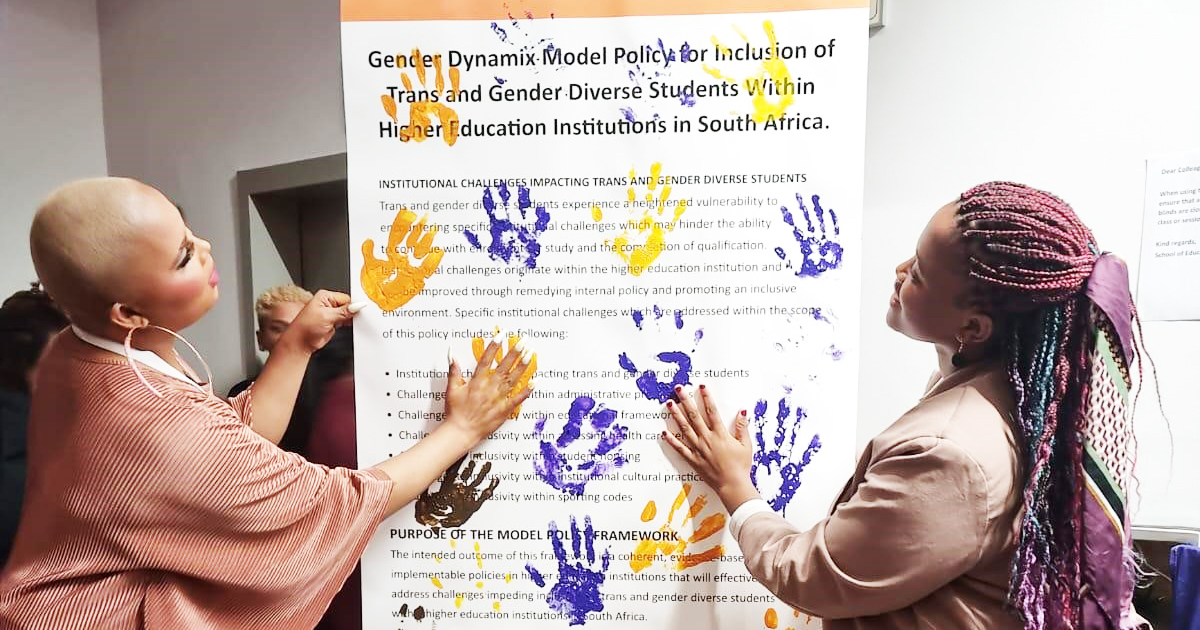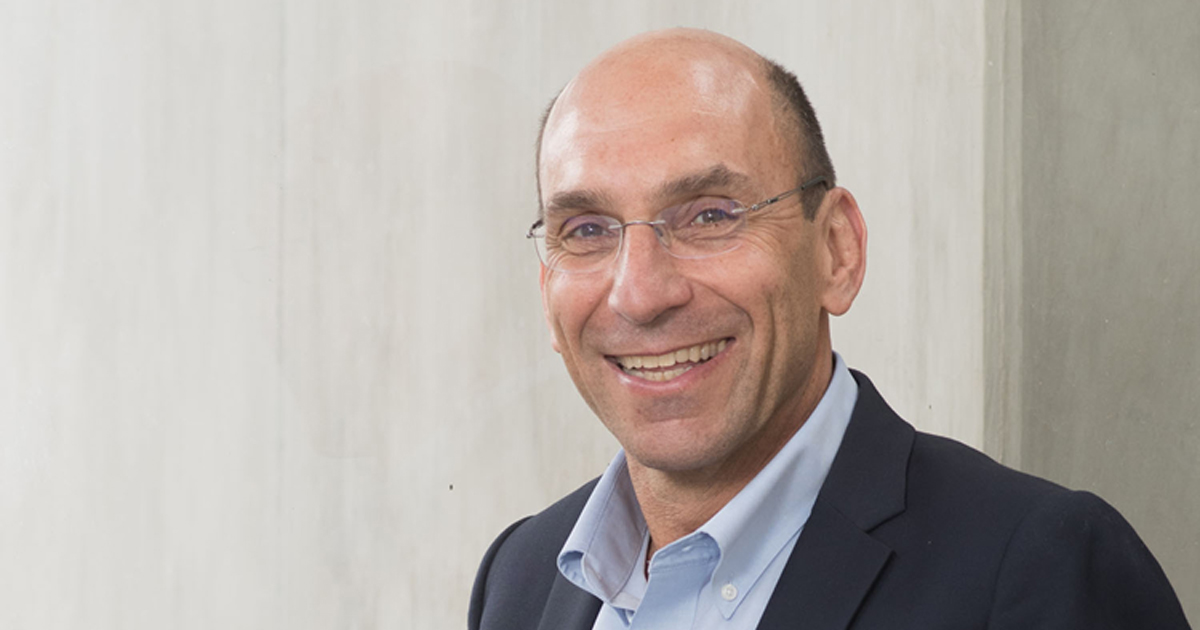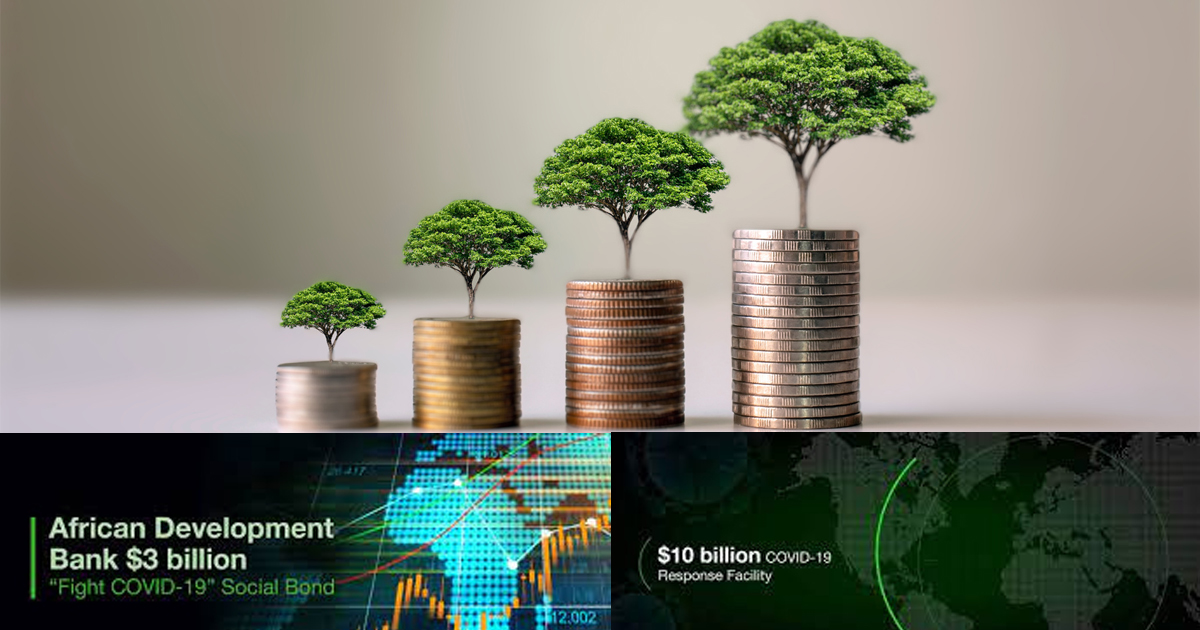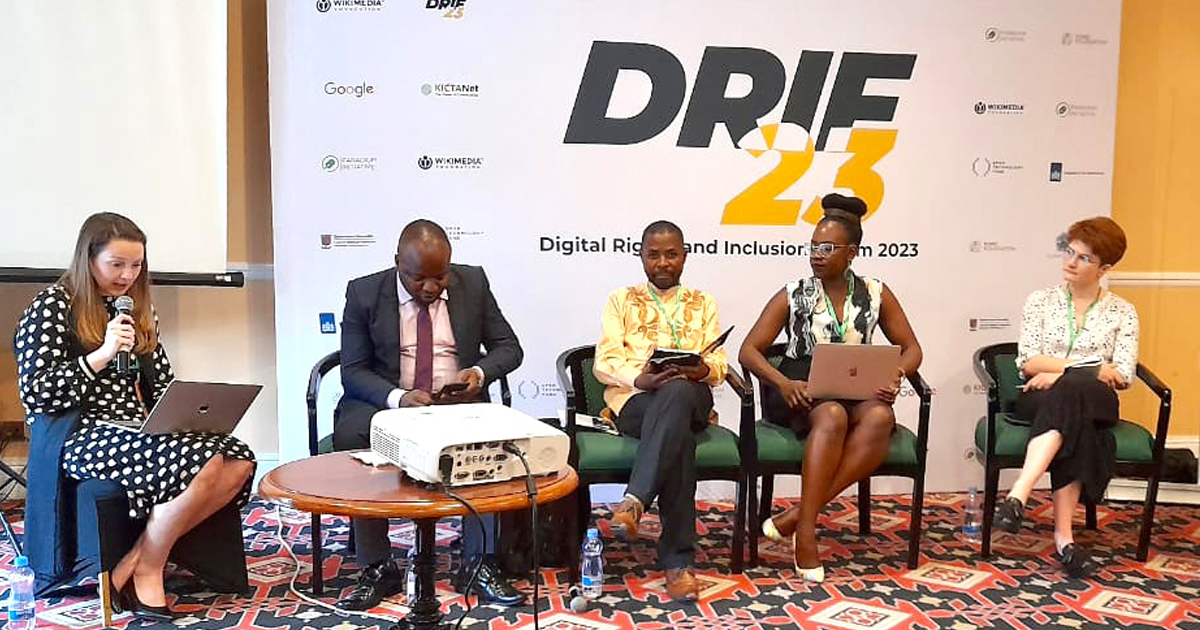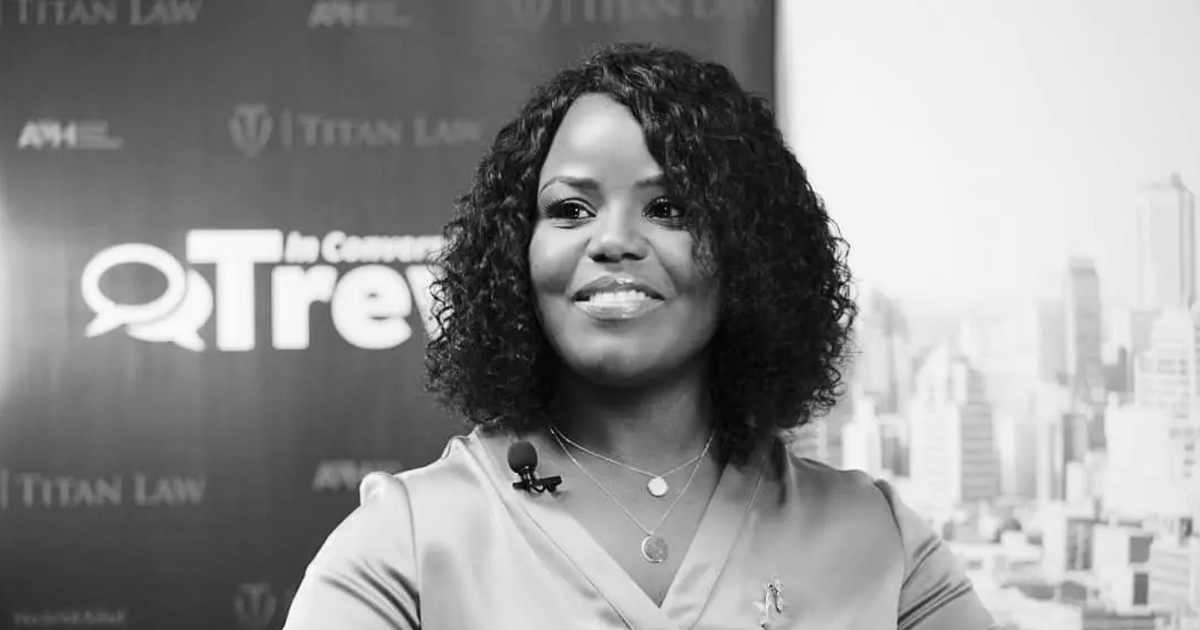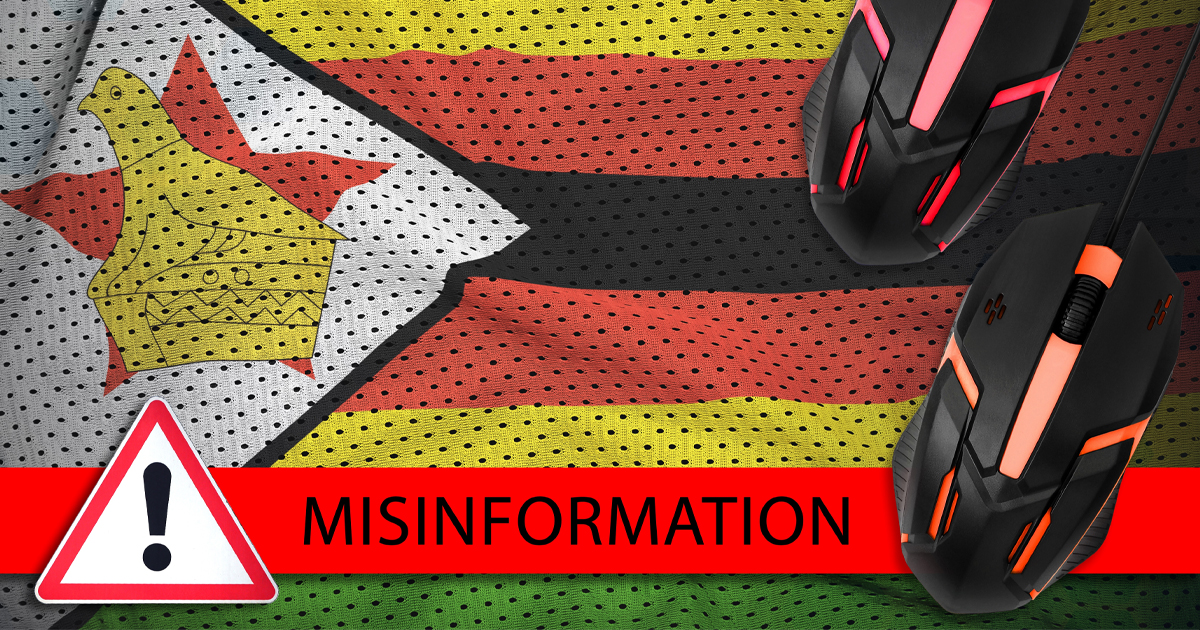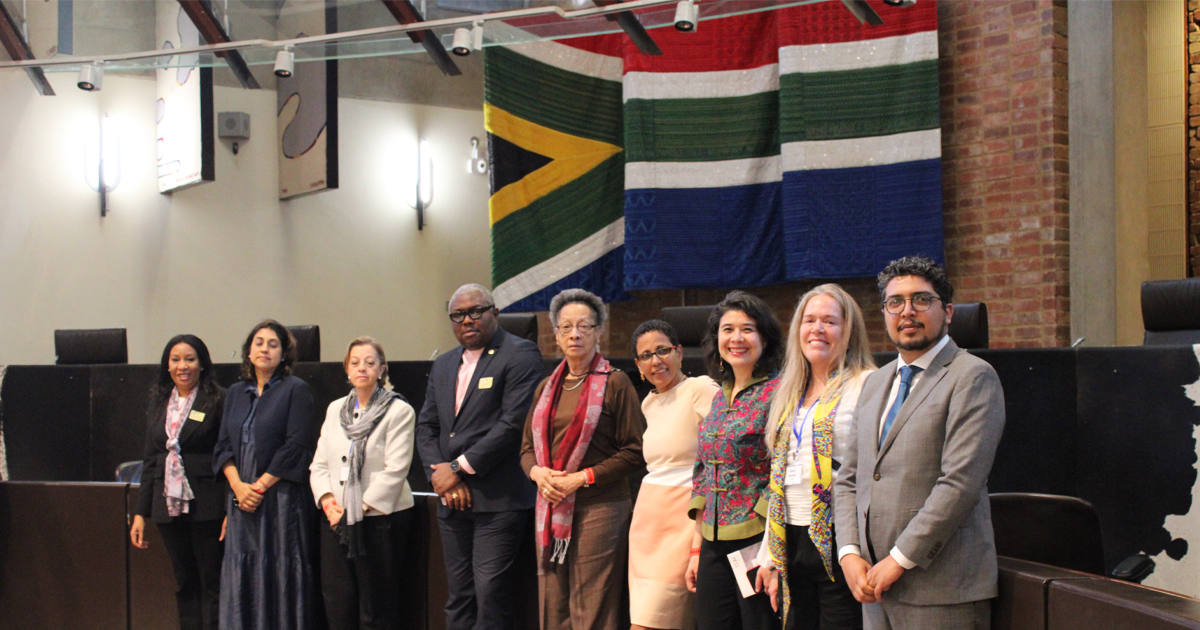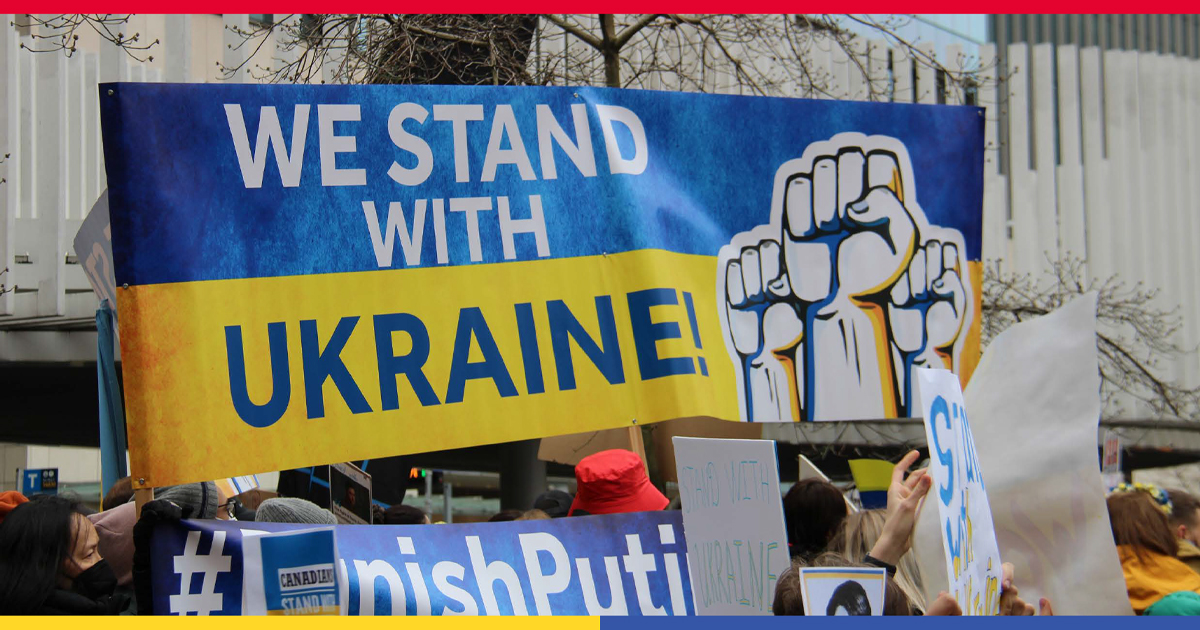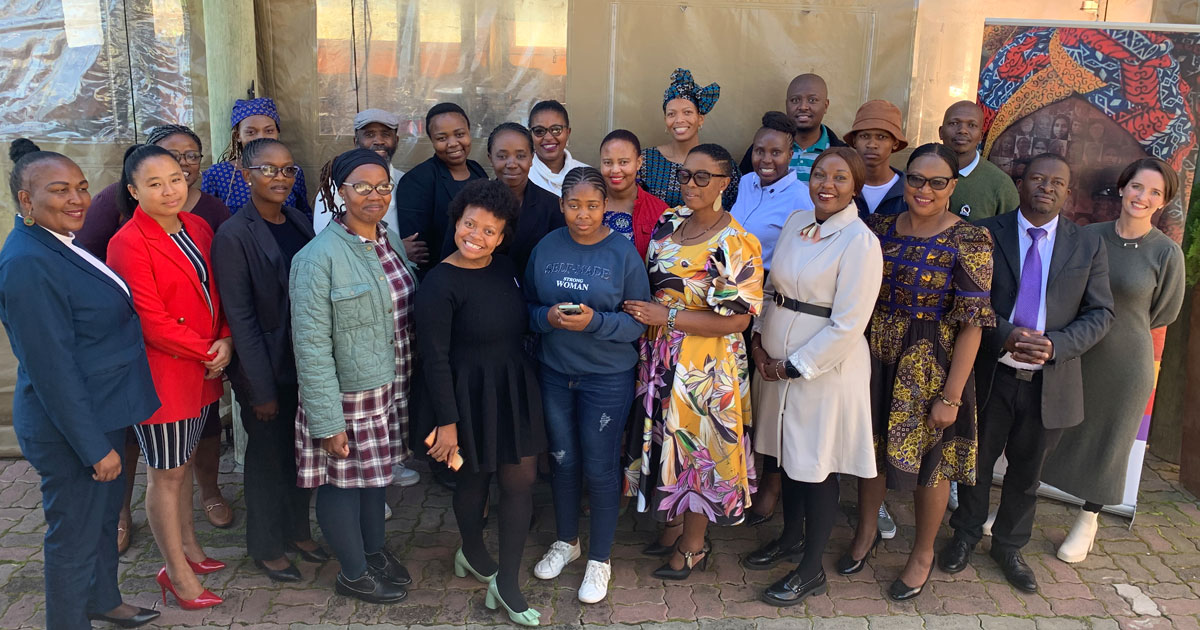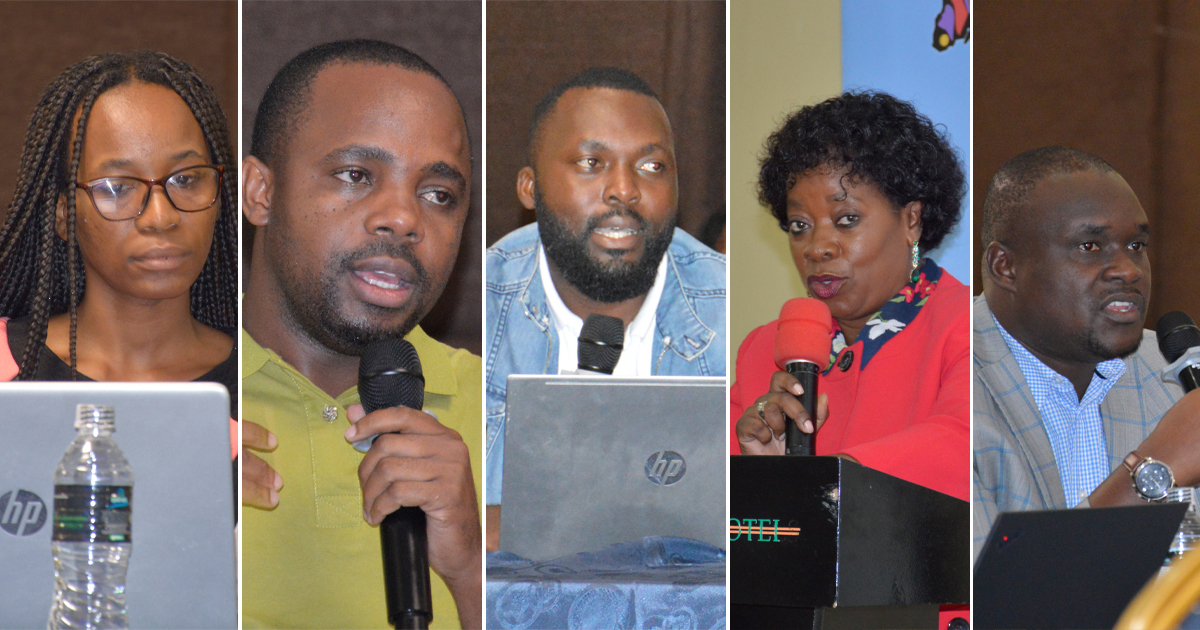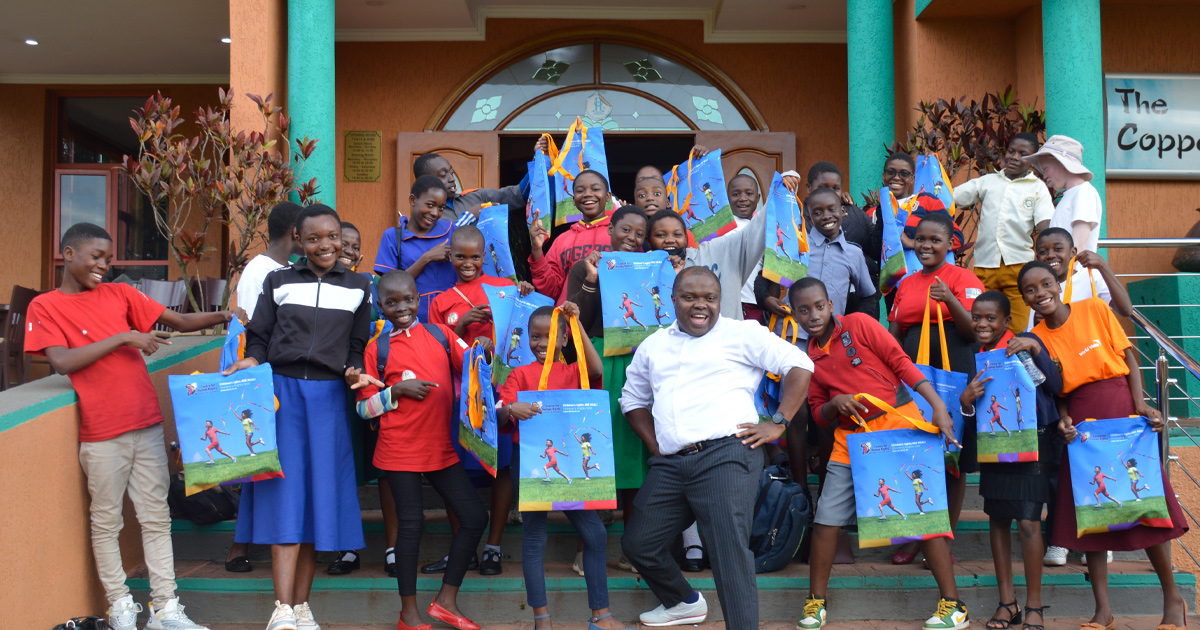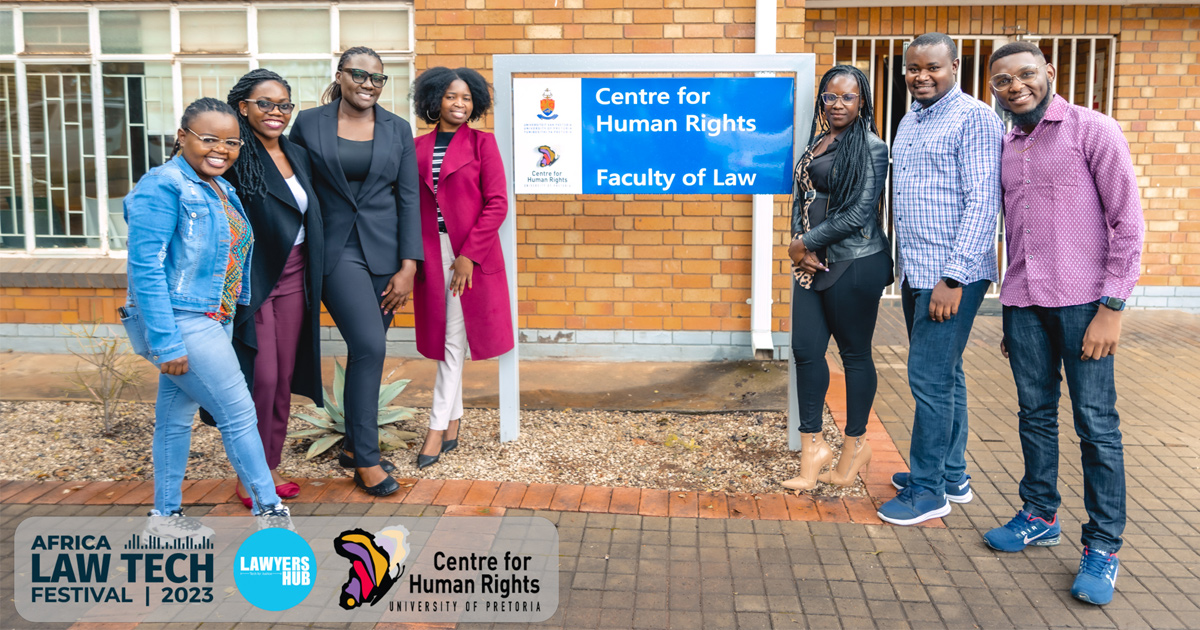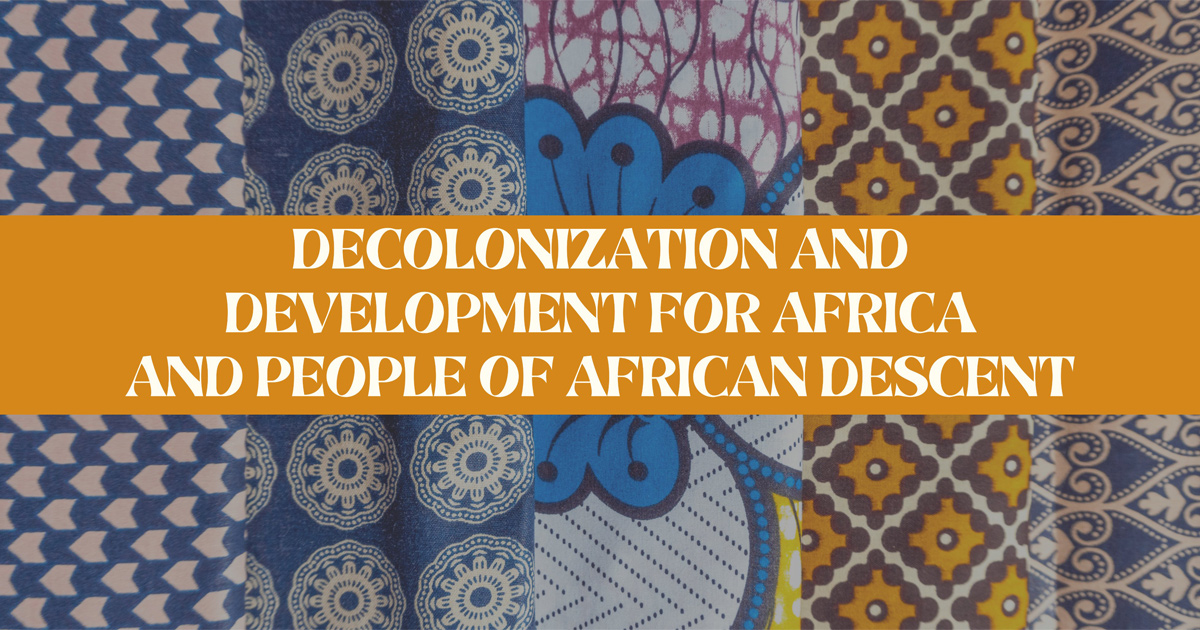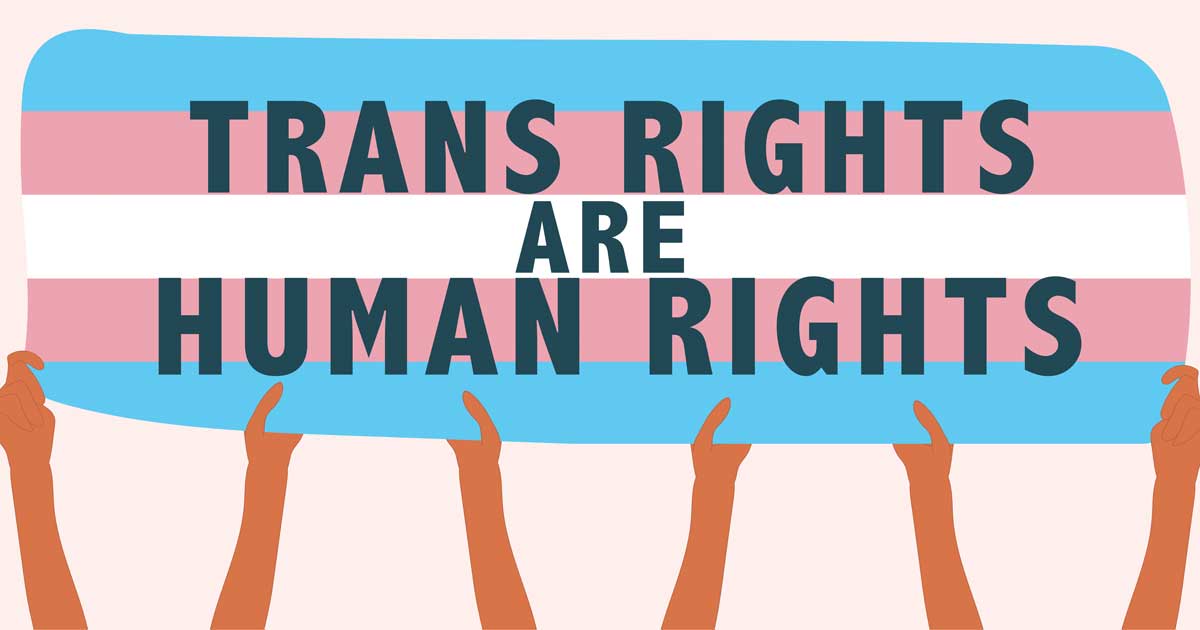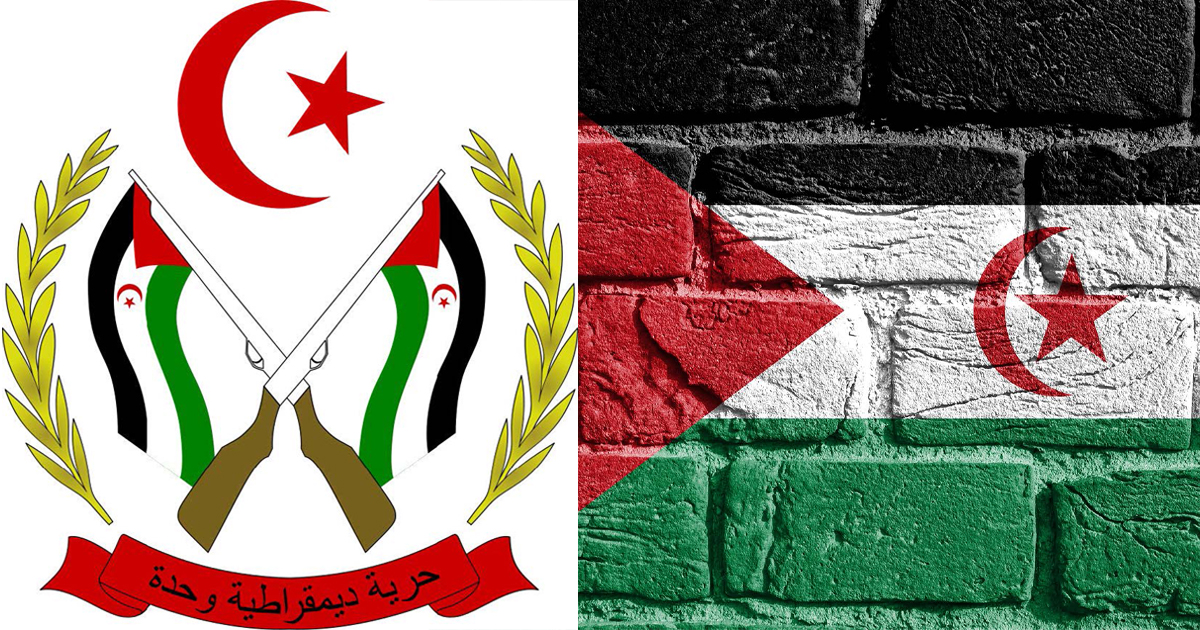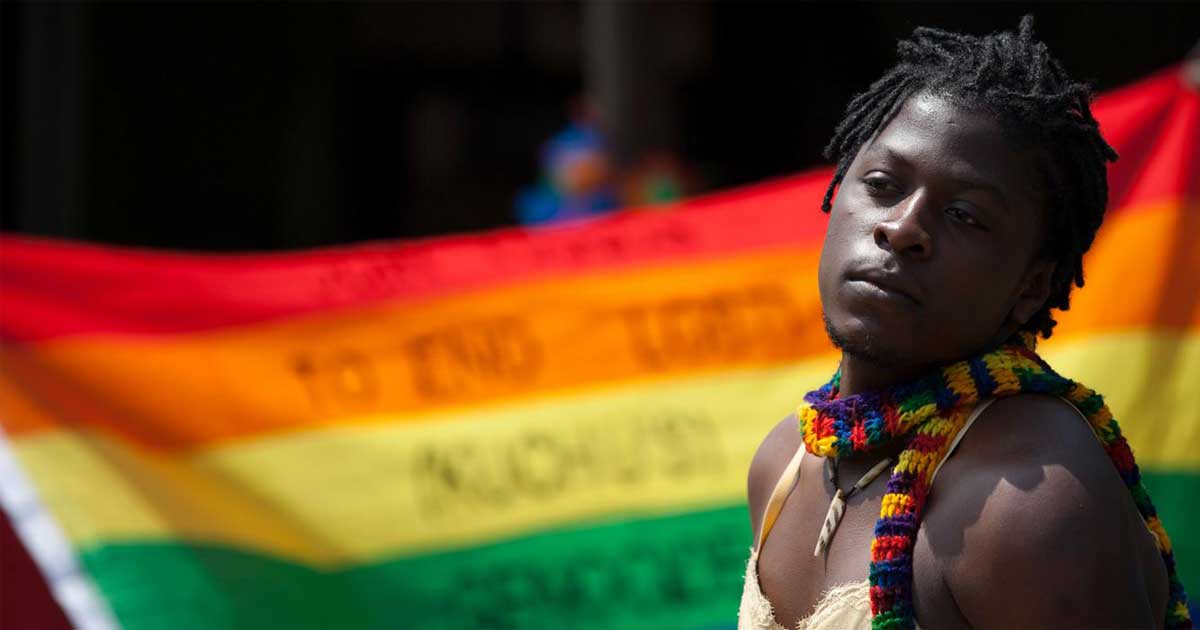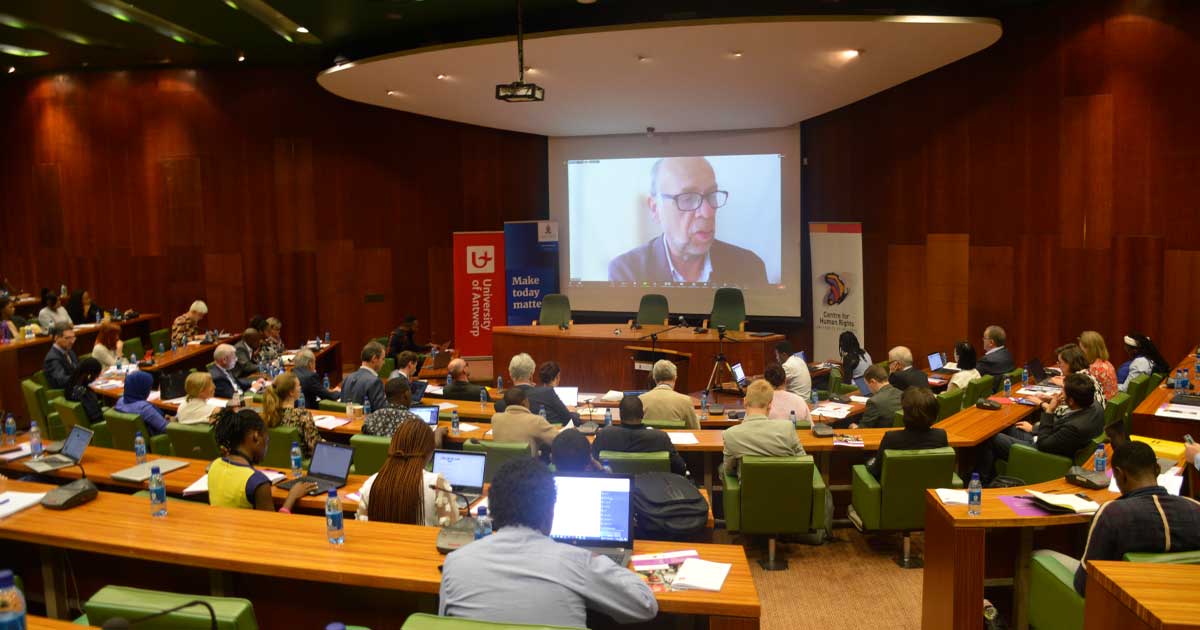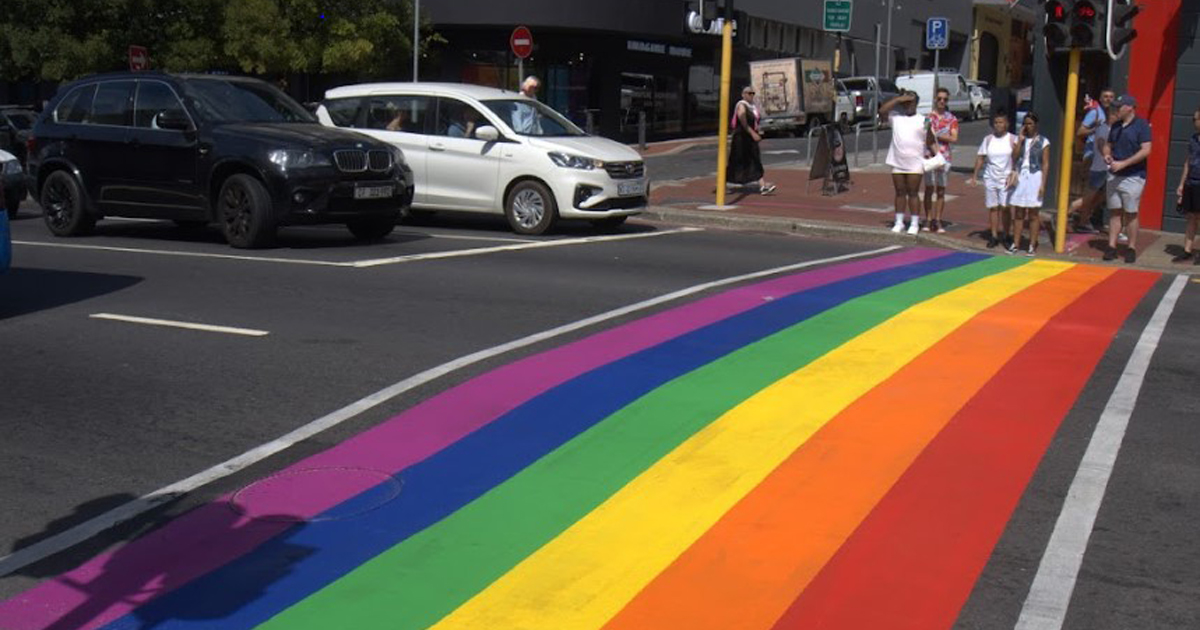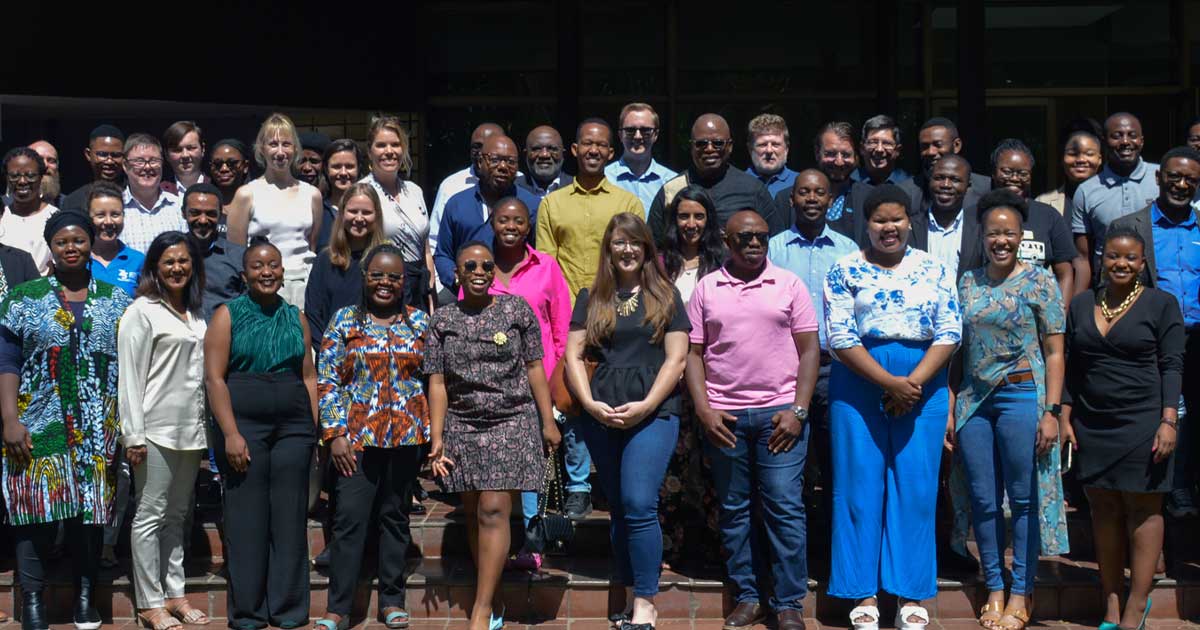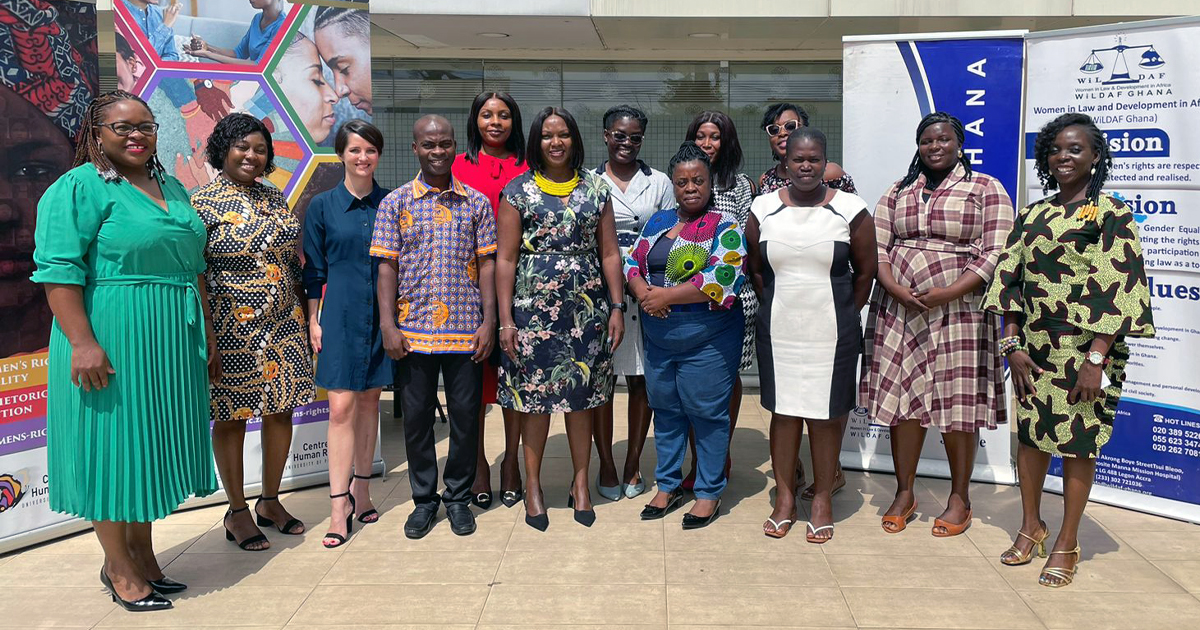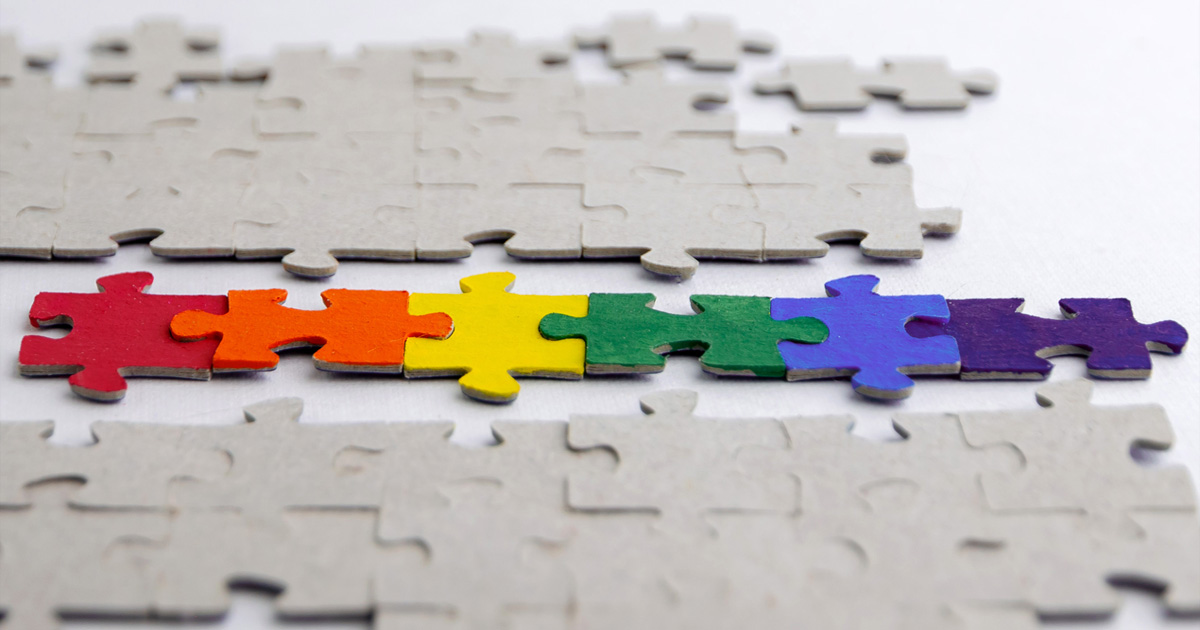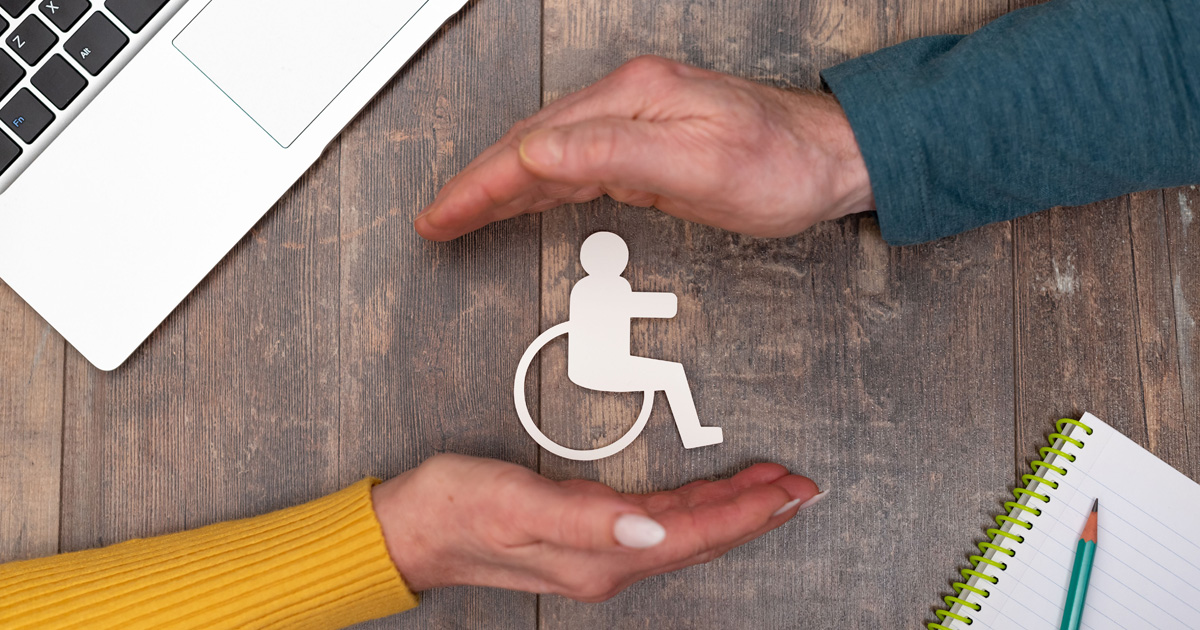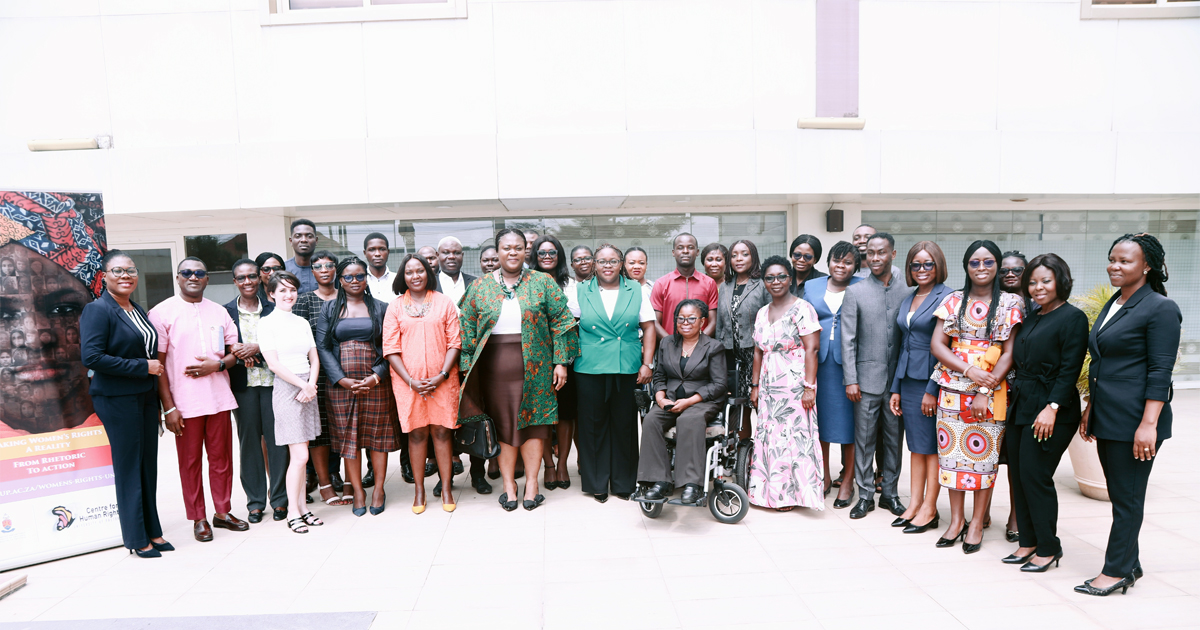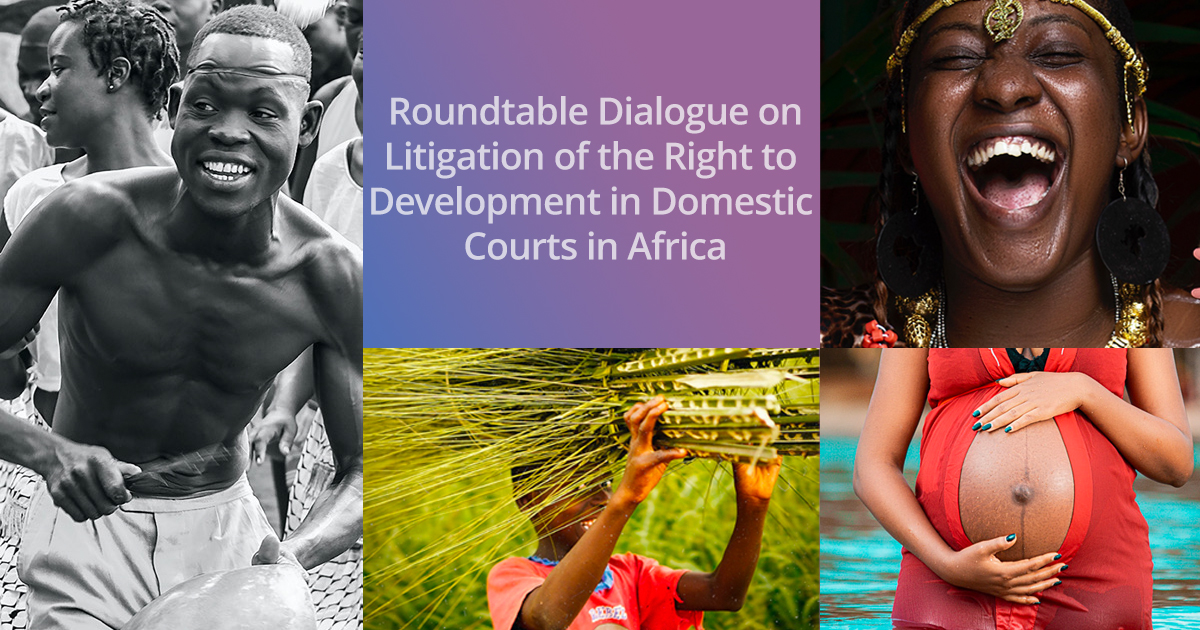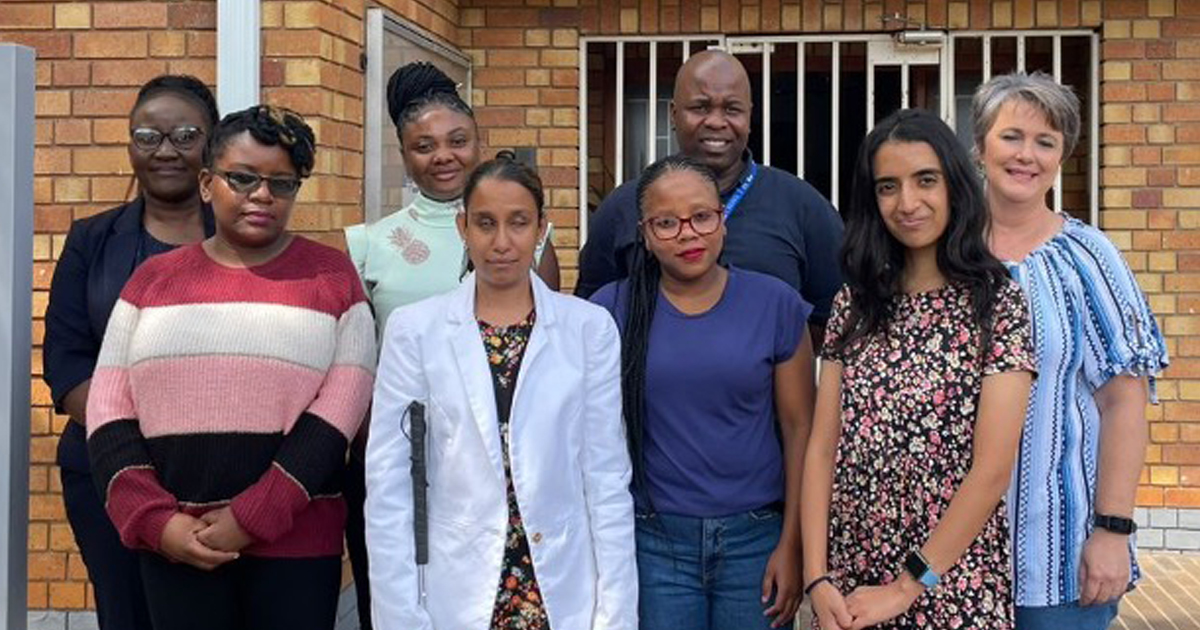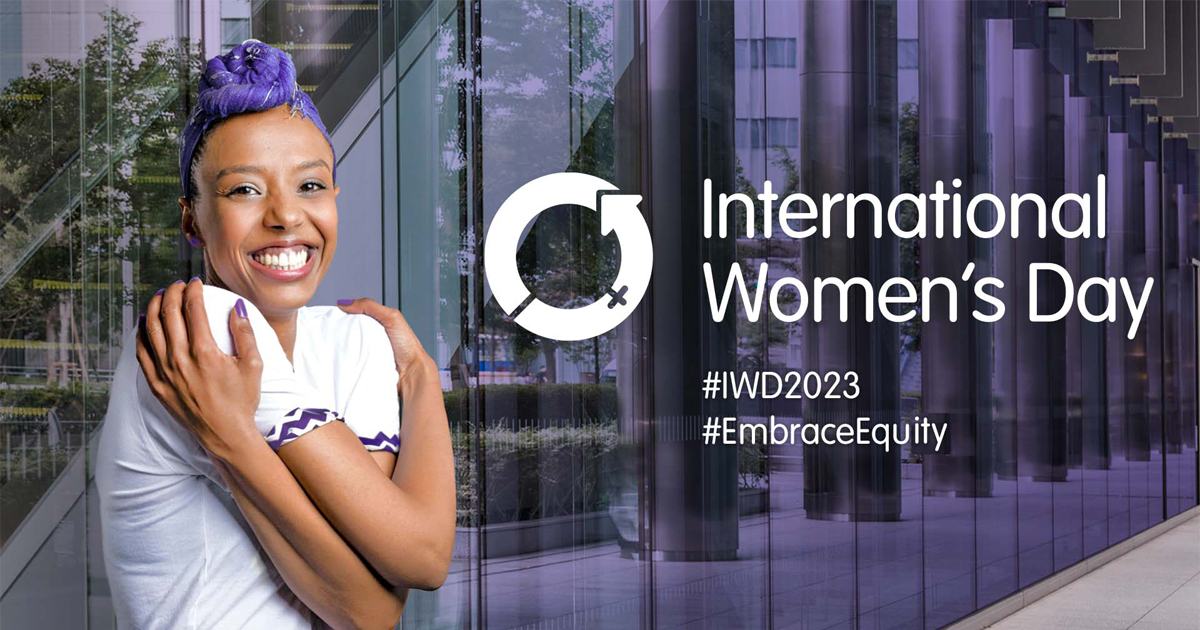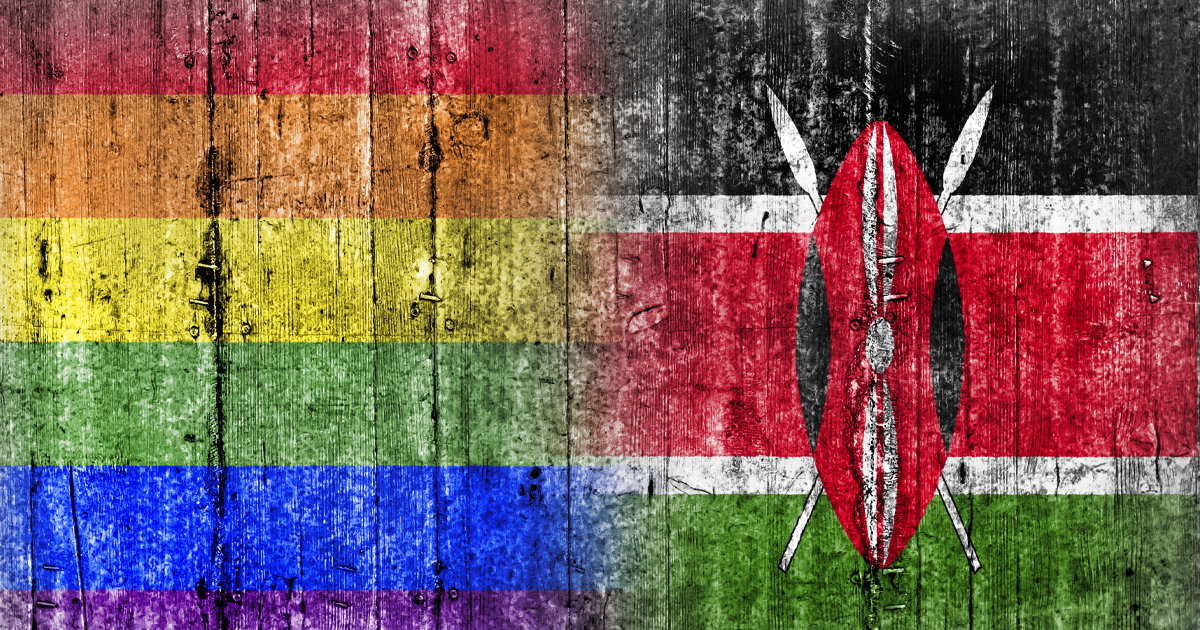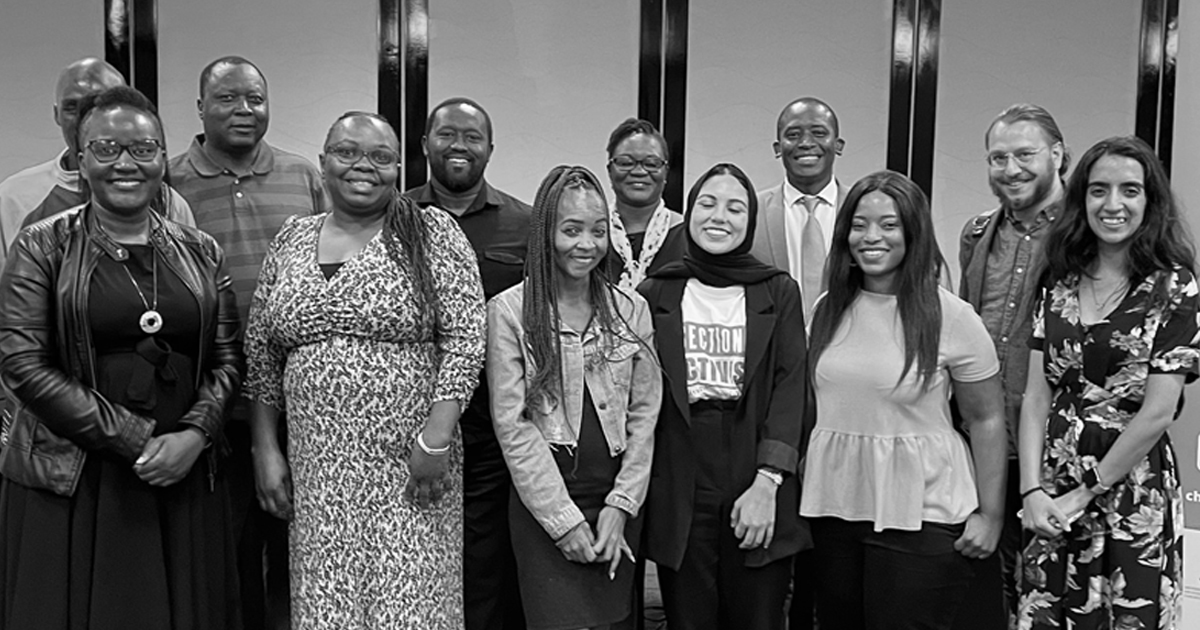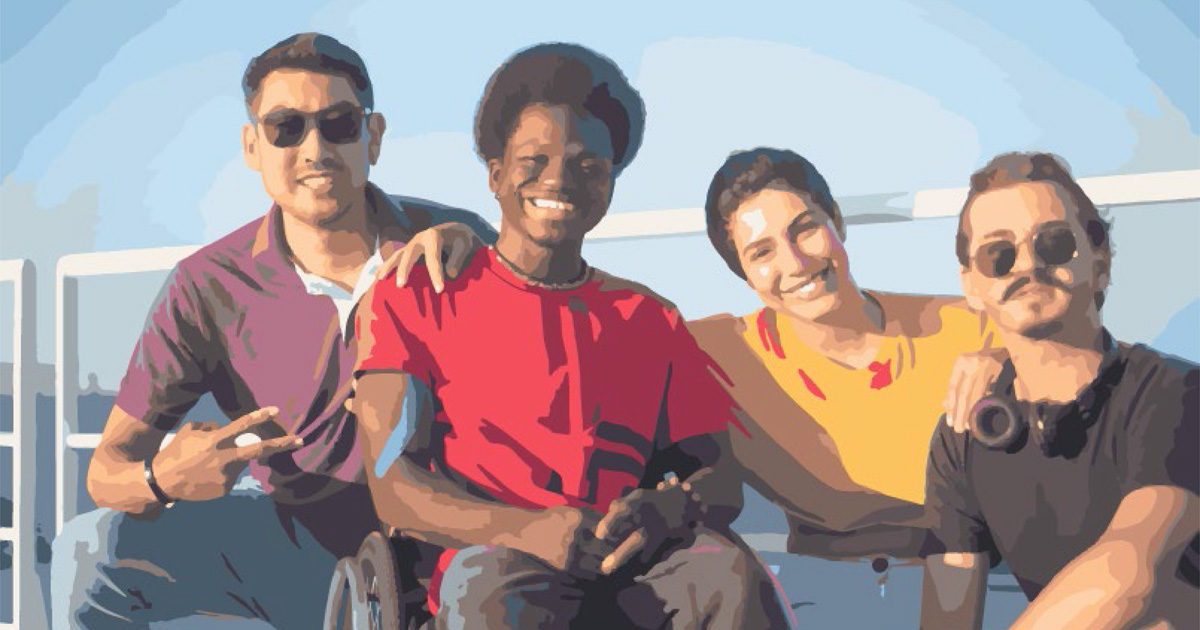- Details
The Centre for Human Rights, University of Pretoria South Africa invites you to an event on the side-lines of the 77th Session of the African Commission on Human and Peoples’ Rights titled: ‘Dissemination of the findings of the Study on Review of Discriminatory Laws related to Violence against Women in Africa’
- Details
The Centre for Human Rights (Centre) , Faculty of Law, University of Pretoria, welcomes the two judgements of the Supreme Court of Mauritius in Ah Seek A.R.F. v The State of Mauritius and Fokeerbux N. A. & Others v The State of Mauritius which decriminalised consensual same-sex sexual conduct between adults.
- Details
The Centre for Human Rights (Centre), Faculty of Law, University of Pretoria stands in solidarity with the Chief Justice of Zambia, Dr Mumba Malila SC, who has come under attack following his remarks about the need to respect the human rights of sexual minorities in Zambia. During a public lecture commemorating the Silver Jubilee of the Supreme Court of Zambia, on 22 September 2023, held at the University of Zambia, Justice Malila was asked a question on the rights of sexual minorities in Zambia, particularly of gay persons. In his response, Justice Malila stated:
I think there is something absolutely wrong in discriminating people that are different because of their sexuality. If they are people you know who are gay, I think it is absolutely wrong in allowing them less right than you would give to anyone else. Whether people are gay or not, they are human beings at the end of the day, and human rights must be accorded to all human beings.
- Details
To commemorate this anniversary, the Centre forHuman Rights, in collaboration with Government of Flanders calls to the general public for the participationof individuals or couples who are or have been marriedunder the same-sex marriage legal system applicablein South Africa, Belgium and France to be part of theco-creation and curation process of documenting thelived realities of same-sex married couples in thesecountries through photos and videos that reflct theirjourney. Prospective participants are encouraged toindicate their interest on or before 17 October 2023.
- Details
On 27 and 28 September 2023, the Centre for Human Rights, Faculty of Law, University of Pretoria, organised a two-day virtual seminar in commemoration of the 10th anniversary of the adoption of the African Commission on Human and Peoples' Rights’ Model Law on Access to Information for Africa. The Model Law was adopted on 13 February 2013, to provide legislative guidance for developing new and reviewing existing access to information laws in line with international best practices. It contains best practices and represents a harmonised approach to access to information throughout the continent and also serves as a basis for advocating for an enhanced access to information environment. The seminar provided a platform for exploring the status of access to information in Africa, including milestones and challenges.
- Details
On September 18-19 2023, the Centre for Human Rights, Faculty of Law, University of Pretoria hosted a hybrid Human Rights Strategic Litigation and Advocacy Training Workshop to curb the adverse effects of Climate Change and environmental shocks in Africa, at the Plant Sciences Complex in the University of the Pretoria. The event brought together legal professionals, judges, and scholars from Southern Africa to explore the critical intersections of climate change, human rights, and climate justice in Africa, with a specific focus on the SADC region. The event was opened by the convener of the event, Dr Elvis Fokala and soon after, the Assistant Director of the Centre for Human Rights, Mr Lloyd Kuveya and the Dean of the Faculty of Law, Professor Elsabe Schoeman welcomed the participants to the University and wished them a very productive stay in Pretoria.
- Details
The recent developments in Nagorno-Karabakh, a month-long blockade followed by a large-scale offensive on the region by Azerbaijani forces, the protracted conflict and the ensuing humanitarian tragedy have brought great sorrow to the lives of the most vulnerable members of our society, children. Many children faced the harsh realities of malnutrition and limited access to food due to severe shortages caused by the blockade and critical infrastructure damage. Since last week, many children in Nagorno-Karabakh have been brutally killed or injured in their homes or in the streets, or went missing. In the last days, after the cease-fire, hundreds of children along with their families have been deprived of food, sanitation, and shelter, and under difficult circumstances have been forced to seek refuge in Armenia.
- Details
On 15 September 2023, the Centre for Human Rights, Faculty of Law, University of Pretoria, held its 5th edition of the African human rights bodies case discussion series at Southern Sun Hotel, Pretoria. The African human rights bodies case discussion series is part of the Centre for Human Rights efforts to improve the implementation and impact of the jurisprudence of African human rights bodies by providing a platform for stakeholders to discuss and engage with critical aspects of decisions of African human rights bodies. The 5th edition focused on the decisions of the African Commission on Human and Peoples’ Rights (African Commission) in the cases of Justice Thomas S. Masuku v The Kingdom of Swaziland and Equality Now and Ethiopian Women Lawyers Association (EWLA) v the Federal Republic of Ethiopia.
Webinar Invitation: Launch of reports on Proactive Disclosure of Information and Elections in Africa
- Details
The Centre for Human Rights and its partners ARTICLE 19 Eastern Africa, and ARTICLE 19 Western Africa invite stakeholders to the launch of the reports on Proactive Disclosure of Information and Elections in Africa. The reports assessed state compliance with the African Commission on Human and Peoples’ Rights 2017 Guidelines on Access to Information and Elections in Africa (the Guidelines).
- Details
On 8 September 2023, the Centre for Human Rights, Faculty of Law, University of Pretoria in partnership with the Centre for Democracy and Development (CDD) and Parliamentary Network Africa (PNAfrica), hosted a high-level discussion regarding civil society entry points into the African Union (AU). The discussion took place in Accra, Ghana with participants from various civil society organisations (CSOs) across Africa.
- Details
On 18 August 2023, the UN Committee on the Rights of Persons with Disabilities marked the one-year anniversary of adoption of its Guidelines on Deinstitutionalization, including in Emergencies (CRPD/C/5). Watch the official recording on UN Web TV here.
The Global Coalition on Deinstitutionalization (‘GC-DI’) is a collection of seven leading international organizations of persons with disabilities and civil society organizations. It was formed around the collective goal of promoting deinstitutionalization of persons with disabilities, under Article 19 of the Convention on the Rights of Persons with Disabilities (‘CRPD’).
- Details
Decriminalisation of anti-sodomy laws in an increasingly hostile environment in Africa
23 November 2023
The Centre for Human Rights, University of Pretoria, is convening a conference on sexual and gender minority rights in Africa under the theme decriminalisation of anti-sodomy laws in an increasingly hostile environment on sexual and gender minority rights in Africa. The aim of the conference is to critically analyse how anti-sodomy laws can be decriminalised under the prevailing hostile legal and political environment against sexual and gender minority rights in Africa. The conference will be held in hybrid format on 23 November 2023 in South Africa and online. It is anticipated that papers presented at this conference will be reworked by authors and submitted to be part of an edited book on decriminalisation of Anti-sodomy laws in Africa.
- Details
The Centre for Human Rights, Faculty of Law, University of Pretoria seeks the consultancy services of an experienced consultant with research expertise to conduct a study to document the impact of digital violence on Sexual and Reproductive Health Rights (SRHR) of women in Africa and measures taken by states to protect women from and respond to violence in the digital sphere.
- Details
2023 marks the 10th anniversary of the African Commission on Human and Peoples’ Rights’ (African Commission) adoption of the Model Law on Access to Information for Africa (the Model Law). Centre for Human Rights, University of Pretoria will be organising a commemorative seminar on 27 and 28 September 2023, which aims to explore the status of access to information in Africa.
- Details
The Centre for Human Rights, University of Pretoria (the Centre), and the Ministry of Foreign Affairs and International Cooperation (MFAIC) held a two-day Validation Workshop on the State Report of the Republic of Sierra Leone as required under the African Charter on Human and Peoples’ Rights (African Charter) and the Protocol to the African Charter on Human and Peoples’ Rights on the Rights of Women in Africa (Maputo Protocol). The Workshop was held from 1 to 2 August 2023 in Freetown, Sierra Leone. Sierra Leone ratified the African Charter in September 1983 and the Maputo Protocol in July 2015, and as of January 2023, had three outstanding reports on the African Charter. Sierra Leone is also yet to report on the Maputo Protocol since ratification.
- Details
To celebrate 20 years of the Protocol to the African Charter on the Rights of Women in Africa (Maputo Protocol), the African Commission on Human and Peoples’ Rights (Office of the Special Rapporteur on the Rights of Women in Africa) calls for newsletter article contributions.
- Details
On 3 - 4 August 2023, the Centre for Human Rights (the Centre), University of Pretoria, hosted a training on litigation of SRHR claims before national and regional mechanisms in Africa, at the Southern Sun Hotel in Pretoria, South Africa. The training was attended by over 40 practitioners of sexual and reproductive health and rights (SRHR). The participants were drawn from several African countries, including South Africa, Mauritius, Botswana, Nigeria, Kenya, Zambia, DRC, Zimbabwe, Malawi and Uganda.
- Details
From 24 to 25 July 2023, the Centre for Human Rights, Faculty of Law, University of Pretoria collaborated with the office of the Ombudsperson for Children in Mauritius to host a capacity building on the ‘Rights of Children with Disabilities in the African Human Rights System’.
- Details
2023 marks the 10th anniversary of the African Commission on Human and Peoples' Rights' (African Commission) adoption of the Model Law on Access to Information for Africa (the Model Law). The Model Law was adopted on February 13, 2013 and provides guidance on Member States' legislative obligations in promoting and protecting the right to access information as outlined under article 9 of the African Charter on Human and Peoples' Rights (the African Charter) and other relevant instruments such as the Declaration of Principles on Freedom of Expression and Access to Information in Africa and the Guidelines on Access to Information and Elections in Africa.
- Details
On 2 August 2023, the Centre for Human Rights, Faculty of Law, University of Pretoria, hosted a child-led conference on children’s mental health in Schools in Africa, on its Hatfield Campus. The conference was attended by children nationals from Cameroon, Ethiopia, Democratic Republic of Congo, Kenya, South Africa, Malawi and Zimbabwe.
- Details
Bringing together over 18 activists and lawyers, the Centre for Human Rights (Centre) held a capacity building workshop on strategic litigation and advocacy for LGBTIQ+ Advocates in Africa from 24 to 28 July, 2023. The capacity building workshop which has been held annually for the last 4 years aims at enhancing the skills of experienced activists in Africa in strategic litigation and advocacy towards the protection of sexual and gender minorities on the continent.
- Details
On 20-21 July 2023, the Centre for Human Rights and the Pan-African Parliament Civil Society Forum (PAP CSO Forum), in partnership with the Parliamentary Network Africa (PNAfrica) convened a meeting in Cote d’Ivoire with some of the West African key actors to establish a formal mechanism of engagement between the PAP and civil society.
- Details
The Centre for Human Rights, University of Pretoria, and the Zimbabwe chapter of the Media Institute of Southern Africa (MISA), hosted a multi-stakeholder engagement on 27 and 28 June 2023 in Harare, Zimbabwe. The engagement sought to promote a healthy information ecosystem throughout the Zimbabwean election process by enhancing access to information and promoting rights-based approaches to addressing the disinformation challenge.
- Details
To mark the 20th anniversary of the adoption of the Protocol to the African Charter on Human and Peoples’ Rights on the Rights of Women in Africa (Maputo Protocol), the Centre for Human Rights, University of Pretoria and the Faculty of Law, University of Nairobi launched two books published by the Pretoria University Law Press (PULP). The book launch took place in Nairobi, Kenya on 13 July 2023. The publications were launched in celebration of the Maputo Protocol turning 20 on 11 July 2023.
- Details
With the 2024 South African National Elections around the corner, the Democracy and Civic Engagement Unit at the Centre for Human Rights in Partnership with the Australian High Commission, South Africa convened a space in which young South Africans could engage on matters related to governance, democracy and stability on 14-15 July 2023. The democracy capacity building workshop was guided by the theme “Encouraging Youth Participation in South Africa’s Democracy.”
- Details
The Centre for Human Rights, Faculty of Law, University of Pretoria (Centre) co-hosted a virtual meeting on colonialism and sexual orientation and gender identity with the United Nations Independent Expert on Sexual Orientation and Gender Identity on 6 July 2023. The meeting brought together experts on colonialism, coloniality and decolonisation in relation to sexual and gender diversity from across the world.
- Details
LEGAL AND HUMAN RIGHTS CENTRE AND CENTRE FOR REPRODUCTIVE RIGHTS V UNITED REPUBLIC OF TANZANIA (The reproductive rights case)
The Centre for Human Rights, Faculty of Law University of Pretoria would like to invite you to the 4th edition of its case discussion series on decisions of African human rights bodies.
- Details
As part of the African women’s movement, the Centre for Human Rights, Faculty of Law, University of Pretoria, and the Solidarity for African Women’s Rights (SOAWR) convened with other women’s rights organisations in Nairobi, Kenya for the Annual General Meeting on 9 July 2023. The SOAWR AGM took place ahead of a two-day celebration of the Maputo Protocol anniversary on 10 and 11 July 2023 in collaboration with the African Union and the Government of Kenya, as the host state. The Centre financially supported representatives of 5 member organisations based in the Southern Africa region to participate in the AGM and the pivotal anniversary celebrations on 10 and 11 July 2023.
- Details
In pursuit of the ideals of excellence, the University of Pretoria wishes to invite applications for the following vacancy. The University of Pretoria's commitment to quality makes us one of the top research Universities in the country and gives us a competitive advantage in international development.
- Details
On 22 June 2023, the Centre for Human Rights (CHR) and the Centre for Sexualities, AIDS, and Gender (CSA&G) University of Pretoria, in collaboration with the Center for Gender Studies and Feminist Futures (CGS) and the Center for Conflict Studies (CCS) at the Philipps-University Marburg, hosted the series finale of the Pretoria-Marburg Queer Conversations.
- Details
The Centre for Human Rights, Faculty of Law, University of Pretoria, is concerned about the unwarranted and unlawful assaults on lawyers using brutal acts of violence and the criminal justice system in two autocratic states preparing for elections within the next two months. The governments of Zimbabwe and Eswatini will hold elections in August and September 2023, respectively, in an atmosphere of fear and intimidation of dissenting voices.
- Details
The Centre for Human Rights, University of Pretoria, is convening a conference whose theme is ‘Climate Change and Disability in Africa: A Human Rights Response.’ The aim of the conference is two-fold: 1) to critically appraise laws, policies, practices, programmes, polities and ideologies that relate to the rights of persons with disabilities in Africa, in the context of climate change and 2) to suggest remedial responses (domestically, regionally and globally) to address violations of the rights of persons with disabilities in climate crises. The conference will be held in hybrid format from 20 – 21 November 2023. It is anticipated that papers presented at this conference will be reworked by authors and submitted for consideration for publication in the 2024 volume of the African Disability Rights Yearbook. www.adry.up.ac.za
- Details
From the 20th to the 22nd of June 2023, the University of Pretoria’s (UP) faculty of law, Centre for Human Rights’(CHR), Expression, Information and Digital Rights Unit, in collaboration with the Transformation Resource Centre (TRC), hosted a digital rights capacity-building workshop for parliamentarians in Maseru, Lesotho.
- Details
On 30 June 2023, in Menlyn, Pretoria, esteemed jurists and legal experts gathered to enhance their knowledge and awareness of LGBTIQ+ issues in South Africa. The event was part of an ongoing Equality Courts project, sponsored by the European Union, empowering communities, and presiding officers in the fight for equality and justice.
- Details
The Centre for Human Rights, Faculty of Law, University of Pretoria and the Faculty of Law, University of Nairobi cordially invite you to a launch of two publications recently published by the Pretoria University Law Press. The two publications will be launched in celebration of the 20th anniversary of the Protocol to the African Charter on Human and Peoples’ Rights on the Rights of Women in Africa (Maputo Protocol). The Maputo Protocol turns 20 on 11 July 2023.
- Details
The year 2023 marks 75 years since the Universal Declaration of Human Rights was passed, yet the passing of Human rights lawyer Thulani Maseko on 21 January 2023 has demonstrated the long fight for human rights and democracy continues. With nearly half a year passed since the death of Thulani Maseko, there is still no justice and accountability.
“We are caught between hope and fear - hope for democracy and fear of being assassinated.” – Thulani Maseko.
- Details
The Centre for Human Rights, the Centre for Child Law both at the Faculty of Law at the University of Pretoria, and the Dullah Omar Institute at the Faculty of Law at the University of the Western Cape successfully hosted the annual Advanced Human Rights Course on Children's Rights in Africa from 19 to 23 June 2023.
- Details
The Centre for Human Rights, Faculty of Law, University of Pretoria invites applications from litigators and other stakeholders passionate about sexual and reproductive health and rights (SRHR), for a capacity building training on litigation of SRHR claims before national and regional mechanisms in Africa. The training is scheduled to take place from 3-4 August 2023 in Pretoria, South Africa.
- Details
The Centre for Human Rights, Faculty of Law, University of Pretoria (Centre) and KADIRAT, Tunisia hosted a three-day Workshop on State Reporting under the African Charter on Human and Peoples’ Rights (the African Charter) and the Protocol to the African Charter on Human and Peoples’ Rights on the Rights of Women in Africa (the Maputo Protocol) from 15 to 17 June 2023 in Tunis, Tunisia. The overall objective of the workshop was to strengthen Tunisia’s capacity to comply with its state reporting obligations under the African Charter and the Maputo Protocol. The Workshop was also aimed at disseminating information to non-governmental stakeholders on the African human rights system.
- Details
The second session of the 2023 Pretoria-Marburg Queer Conversations took place on Africa Day, 25 May, in a joint effort by the Centre for Human Rights (CHR), Faculty of Law and the Centre for Sexualities, AIDS, and Gender (CSA&G), University of Pretoria, along with the Centre for Gender Studies and Feminist Futures (CGS) and the Centre for Conflict Studies (CCS) at the Philipps-University Marburg. These conversations have emerged from a shared interest in addressing LGBTIQ+ and queer identities among the participating centres.
- Details
The Centre for Human Rights, Faculty of Law, University of Pretoria (Centre), cordially invite you to a panel discussion on the decision of the African Committee of Experts on the Rights of the Child (African Children’s Committee), communication No: 0012/Com/001/2019, Legal and Human Rights Centre and Centre for Reproductive Rights (on behalf of Tanzanian girls) v United Republic of Tanzania (Reproductive Rights case).
- Details
The concept of intersectionality was first introduced by Kimberlé Crenshaw to describe how Black women experience multiple forms of oppression and discrimination that cannot be understood or addressed solely by looking at race or gender separately. However, the concept has since been expanded to include other forms of oppression and marginalization beyond race and gender, such as class, sexuality, ability, and age. Disability scholars such as Rosemarie Garland-Thomson, Kim Nielsen, Simi Linton and many others used the concept of intersectionality in demonstrating how social constructions of disability intersect with other social categories to create conditions of discrimination and marginalization. Rosemarie Garland-Thomson has argued that disability is not just a medical condition, but also a social and cultural category that intersects with other identities, to frame the experiences of persons with disabilities.
- Details
The Centre for Human Rights, Faculty of Law, University of Pretoria, is organising a capacity-building workshop on engagement with the African human rights system for African civil society organisations (CSOs). The capacity-building workshop is a two-day training workshop scheduled for Friday 12-13 October 2023.
- Details
The Centre for Human Rights, Faculty of Law, University of Pretoria in collaboration with the University of eSwatini faculty of law, Law Society of eSwatini and CANGO cordially invites you to the Inaugural Memorial lecture in honour of its alumnus, Thulani Rudolf Maseko.
- Details
The Centre for Human Rights, Faculty of Law, University of Pretoria is concerned with the passage of the Criminal Law (Codification and Reform) Amendment Bill H.B 15 of 2022 (Patriot Bill) in Zimbabwe’s House of Assembly. The Patriot Bill, which was passed on 31 May, is overbroad, curtails freedom of expression, suppresses freedom of association and assembly and restricts political participation. The Patriot Bill proposes, among other things, to criminalises meetings with foreign governments for purposes of planning military intervention or calling for economic sanctions. The Bill will become law only after the Senate, the second parliamentary house, adopts it, and if President Mnangagwa assents to it.
- Details
The Centre for Human Rights, Faculty of Law, University of Pretoria, welcomes the appointment of Lindiwe Khumalo as the new Clerk of the Pan-African Parliament (PAP). This appointment comes at a crucial juncture for the PAP. Over the past couple of years, uncertainty and institutional challenges have persisted, including the presence of an acting Clerk for over a year.
- Details
The Anti-Homosexuality Act of 2023, became law in Uganda on 26 May 2023, after President Yoweri Museveni had assented to the Bill. This recent development is the culmination of a process that has defied reason in its bid to erase the rights and dignity of sexual and gender minorities in Uganda, and in respect of which the Centre for Human Rights, Faculty of Law, University of Pretoria (Centre), expressed deep concern for the inevitable violation of human rights that will occur.
- Details
Over two days, 25 and 26 May 2023, the Centre for Human Rights, Faculty of Law, University of Pretoria in collaboration with the National Council for Children’s Services and Ministry of Labour and Social Protection convened in Nairobi Kenya for the second workshop on promoting child participation in development frameworks in Africa and strengthening the African base of the Global Child Leading Team.
- Details
The Pretoria-Marburg Queer Conversations team hosted Dr Bev Ditsie in an online webinar titled 'Where is the joy? Portrayals and depictions of LGBTIQ+ persons'. The event took place on Freedom Day, 27 April wich falls during International Lesbian Week of Visibility, and was attended by colleagues and networks working with the affiliated Centres at the University of Pretoria and Phillips-Marburg. Bev Ditsie is a renowned lesbian activist, artist, and filmmaker.
- Details
On 15 – 19 May 2023, the Centre for Human Rights, Faculty of Law, University of Pretoria (the Centre) hosted an Advanced Human Rights Course on Women's Rights in Africa.
- Details
South Africa, like the rest of Africa – and the world – celebrates ‘Africa Day’ today. This day, 25 May, is the date on which, 60 years ago, the Organisation of African Unity (OAU) was founded. The OAU was in 2002 transformed into the African Union (AU), with its inaugural session being held in Durban, South Africa, on 9 July 2002. Because the roots of ‘formalised pan-Africanism’ are traced back to 1963, the date of the OAU’s founding still marks ‘Africa Day’.
- Details
At an historic meeting on 19 May 2023 at the Pan African Parliament (PAP), in Midrand, a group of civil society organisations, under the umbrella of the PAP Civil Society Organisations (CSO) Forum, for the first time formally met with Members of the PAP (MPAPs) in a Parliamentary Dialogue as part of the PAP’s May 2023 ongoing session. The meeting signalled the recognition by the PAP of the importance of civil society, and the ambition of the PAP to be a genuine peoples’ parliament. The PAP CSO Forum PAP presented recommendations to the MPAPs pertaining to the relationship between the PAP and civil society, human rights, peace and security, the Free Movement of Peoples Protocol and the Malabo PAP Protocol. MPAP Pemmy Majodina, Chief Whip of the ANC, chairing the Parliamentary Dialogue, undertook that the recommendations would be further discussed by the relevant PAP Committees, and that part of the PAP’s next session would be devoted to discussing them.
- Details
On 17 May 2023, the Centre for Human Rights, Faculty of Law, University of Pretoria (Centre) commemorated the International Day Against Homophobia, Biphobia and Transphobia (IDAHOBIT). The Centre commemorated the day by hosting two events centred around this year’s theme of ‘together always: united in Diversity’, in collaboration with its networking partners Alliance Française, the South African Institute for Advanced Constitutional, Public, Human Rights and International Law (SAIFAC), at the University of Johannesburg, with the support of the Embassy of the Kingdom of Netherlands.
- Details
The Centre for Human Rights, Faculty of Law, University of Pretoria, in collaboration with the African Commission on Human and Peoples’ Rights (African Commission), will host a 3 day conference on the implementation and domestic impact of the decisions of the African Commission. The Conference will be held from 13-15 September 2023 at the Southern Sun Hotel, in Pretoria, South Africa. (‘Decisions’ refer to findings and recommendations in individual communications; recommendations in Concluding Observations on state reports; as well as thematic and country specific recommendations in various reports, resolutions and other soft law instruments adopted by the African Commission.)
- Details
On 8 May 2023, the Centre for Human Rights, Faculty of Law, University of Pretoria, submitted a complaint on behalf of two South African citizens, Mr Sello Tsolo and Mr Tjoko Kambule, to the United Nations Working Group on Arbitrary Detention (UNWGAD) against the United Arab Emirates (UAE).
- Details
On 4-5 May, the Centre for Human Rights, Faculty of Law, University of Pretoria hosted a civil society engagement with the Pan-African Parliament (PAP) SADC Chapter in partnership with the Mozambique Human Rights Defenders Network and The Southern Africa Human Rights Defenders for this two day workshop.
- Details
The South African Institute for Advanced Constitutional, Public, Human Rights and International Law and the Centre for Human Rights, University of Pretoria invite you to an online seminar titled ‘The Uganda Anti-Homosexuality Bill – does it Constitute an International Crime?’
- Details
The Centre for Human Rights, Faculty of Law, University of Pretoria, delivered its statement on the human rights situation in Africa at the ongoing 75th session of the African Commission on Human and Peoples’ Rights (Commission), on 4 May 2023.
- Details
On 2 May 2023, the Centre for Human Rights, Faculty of Law, University of Pretoria, hosted a hybrid side event on Resolution 552 on the Protection and Promotion of the Rights of Intersex persons in Africa. The side event was hosted at the 75th Session of the African Commission on Human and Peoples’ Rights (ACHPR/the African Commission), as part of the Centre’s continued regional engagement on the rights of LGBTQI+ people in Africa. The side event was organised by the SOGIESC (Sexual Orientation, Gender Identity and Expression, and Sexual Characteristics) Unit in collaboration with the Africa Civil Society Engagement (ACSE). It was attended by numerous civil society organisations, human rights scholars, and activists from within and outside Africa.
- Details
The Disability Rights Unit at the Centre for Human Rights held a two-day regional convening on access to justice for persons with psychosocial and intellectual disabilities from 2 to 3 May 2023 at Capital Hotel Menlyn Maine in Pretoria, South Africa. Titled Court accommodations for persons with intellectual and psychosocial disabilities in southern Africa, the convening was a follow-up to the first convening held in May 2022.
- Details
The 2023 World Press Freedom Day (WPFD) day is commemorated under the theme: ‘Shaping a Future of Rights: Freedom of Expression as a Driver for all Other Human Rights.’ On this occasion, the Centre for Human Rights, University of Pretoria (the Centre) recalls the 2019 Declaration of Principles on Freedom of Expression and Access to Information in Africa (the Declaration) which frames freedom of expression as a cross-cutting fundamental human right that is a cornerstone of democracy and a means of ensuring respect for other human rights (civil and political rights and socio-economic rights). As a basic and enabling right, freedom of expression can also potentially contribute to the much-needed socio-economic development and democratic transformation in Africa.
- Details
On 27 April 2023, the Centre for Human Rights’ Expression, Information and Digital Rights Unit (EIDR) in collaboration with Youth and Society (YAS) of Malawi, hosted a webinar on the status of implementation of the Malawi Access to Information Act. The webinar was moderated by Chrispin Bosire, Smith Naseri Edumebong and Idirashe Amanda Chikomba, from the EIDR clinic. The speakers were drawn from stakeholders in Malawi that are contributing to the implementation of the Act. These are Mandy Pondani (Media Institute of Southern Africa-MISA Malawi), Mwandida Theu (Youth and Society), Chance Kalolokeska (Malawi Human Rights Commission) and Authur Chipenda (Malawi Ministry of Information and Digitisation). The webinar is part of the Centre for Human Rights’ commemoration of 10 Years of the Model Law on Access to Information for Africa that was adopted by the African Commission on Human and Peoples’ Rights in 2013, to provide legislative guidance to member states of the African Charter on Human and Peoples’ on the implementation of article 9 of the African Charter which provides for the right of access to information.
- Details
The Centre for Human Rights (CHR) attended the 22nd meeting of the CSO Forum for the African Charter on the Rights and Welfare of the Child, held from 26 - 27 April 2023, in Maseru, Kingdom of Lesotho. The meeting was organised ahead of the 41st Session of the African Committee of Experts on the Rights and Welfare of the Child meeting from 28th April to 6 May 2023, in Maseru, Kingdom of Lesotho.
- Details
On 26th April 2023, the Centre for Human Rights organized a Webinar to present its report findings on the African Development Bank's (AfDB) response to the COVID-19 pandemic in Africa. The objective of the webinar was to present the study and evaluate the AfDB's response to the public health and socio-economic challenges posed by the pandemic. The webinar also aimed to identify measures to enhance civil society's capacity to monitor AfDB activities to ensure transparency and accountability for AfDB-funded projects.
- Details
Celebrating Worker’s Day in South Africa on 1 May 2023 has a hollow ring to it. Commemorating the achievements of the labour movement, including many important improvements to working conditions, and celebrating the crucial role of the working class in our country’s past and present, are overshadowed by the alarmingly high unemployment rate among South Africans. The precarious position of domestic workers demands more visibility about their rights and greater accountability for those who violate their rights. Acknowledging South Africa’s membership of the global community, and conscious of the undercurrent of xenophobia, consideration should be given to placing the rights of migrant workers on a firmer footing by ratifying the United Nations treaty on this theme.
- Details
On Saturday 15 April 2023, the Centre for Huma Rights (CHR) University of Pretoria honoured an invite to the documentary screening of ‘The Unexceptional Parent’ hosted at Bertha House in Cape Town.
- Details
On 24 April 2023, the Centre for Human Rights, Faculty of Law, University of Pretoria (UP), and the Human Rights Implementation Centre, University of Bristol, in the United Kingdom, held a roundtable dialogue on exploring interdisciplinary approaches to the implementation and impact of human rights decisions.
- Details
On 20 April 2023, the Centre for Human Rights, Faculty of Law, University of Pretoria (CHR), and Public Interest Practice co-hosted a visiting Ukrainian delegation. During the meeting, which took place on the campus of the University of Pretoria, the conversation centred around the Russian invasion into Ukraine and its impact on the population in the country.
- Details
The Centre for Human Rights of the University of Pretoria and Youth and Society (YAS), invites you to a webinar on the state of Access to Information (ATI) in Malawi. The webinar seeks to assess Malawi’s compliance with the international human rights practices on the right of access to information and to provide a platform for stakeholders working in the ATI sector to share insights on the implementation of Malawi’s Access to Information Act.
- Details
On Friday 14 April 2023, the SOGIESC unit attended and presented at the Gender Dynamix Model Policy Framework (MPF) Launch and Colloquium convened by the Office for Inclusivity and Change (OIC) at the University of Cape Town (UCT), in collaboration with The Gender and Violence Prevention Unit also from the University of Cape Town. The launch follows the celebration of Trans Day of Visibility on 31 March 2023.
- Details
The Centre for Human Rights, Faculty of Law, University of Pretoria (UP), recently formally bid farewell to an outstanding colleague and friend, Professor Danny Bradlow. Prof Bradlow is now based in UP’s Centre for the Advancement of Scholarship. Prof Danny Bradlow has been with us at the Centre for 15 years. He was a SARChI Professor of International Development Law and African Economic Relations and Head of the International Development Law Unit (IDLU).
- Details
The Centre for Human Rights cordially invites you to a webinar on Monitoring the African Development Bank response to the COVID-19 Pandemic in Africa.
- Details
The Expression, Information and Digital Rights (EIDR) Unit of the Centre for Human Rights, University of Pretoria attended the Digital Rights Inclusion Forum (DRIF) held in Nairobi, Kenya from 12 - 14 April 2023. DRIF is a platform where conversations on digital policy in Africa are shaped, policy directions debated, and partnerships forged for action. The 2023 theme was ‘Building a sustainable Internet for all.’ Together with its consortium partners, Global Partners Digital (GPD), Article 19 West Africa, the Collaboration on International ICT Policy for East and Southern Africa (CIPESA), and PROTEGE QV, the Centre hosted a panel discussion titled ‘At what risk to rights and internet freedom? Examining government responses to disinformation’.
- Details
The Centre for Human Rights, Faculty of Law, University of Pretoria (the Centre) denounces the conviction of Citizens Coalition for Change (CCC) party spokesperson Fadzayi Mahere. Mahere, a prominent political activist and lawyer, was found guilty by a Harare Regional Magistrate on charges of publishing falsehoods emanating from a retweet where she shared information that a police officer had beaten to death a child with a baton in Harare. The Court held that she undermined the authority of the police through her tweet and noted that her conduct was reckless and detrimental to the State as it intended to undermine the police force and also erode public confidence in the law enforcement agents. The contentious charges carried an imprisonment term of up to 20 years and a fine. The Court opted to impose a fine of USD 500 on Mahere and not a prison sentence.
- Details
On 4 April 2023, the Expression, Information and Digital Rights Unit, and the Media Institute of Southern Africa (MISA) Zimbabwe, hosted an engagement workshop with political actors in Harare, Zimbabwe. The engagement workshop, which was attended by eight Members of Parliament and thirteen representatives from various government departments, discussed the role of political actors in promoting rights respecting approaches to tackling disinformation in Zimbabwe. The Centre for Human Rights (the Centre) was represented by Marystella Simiyu and Jared Gekombe. The workshop was facilitated by a panel of experts namely: Marystella Simiyu of Centre for Human Rights, Nompilo Simanje of International Press Institute, Rehyana Masters, independent expert, and Helen Sithole of MISA-Zimbabwe.
- Details
From 12 to 14 April 2023, the Centre for Human Rights, Faculty of Law, University of Pretoria (Centre) and the Robert F Kennedy Human Rights (RFK) hosted an Inter-Mechanism Dialogue between the African Commission on Human and Peoples’ Rights (African Commission) and the Inter-American Commission on Human Rights (Inter-American Commission) at the University of Pretoria.
- Details
The Centre for Human Rights, University of Pretoria in collaboration with Public Interest Practice cordially invites you to the delegation briefing on the current situation in Ukraine, discussing the impact of the war on South Africa and exploring opportunities for partnerships between Ukrainian and South African organisations.
- Details
The Centre for Human Rights (the Centre) in partnership with Women in Law in Southern Africa (WLSA), Lesotho hosted a one-day stakeholders’ meeting on compliance with the concluding observations and recommendations under the Protocol to the African Charter on Human and Peoples Rights on the Rights of Women in Africa (Maputo Protocol). The meeting took place in Maseru, Lesotho on 13 April 2023.
- Details
The Centre for Human Rights, Children’s Rights Unit, in collaboration with the Ministry of Gender, Community Development and Social Welfare, and the Global Campus for Human Rights, successfully conducted a two-day workshop in Lilongwe, Malawi. The workshop focused on promoting child participation in development frameworks in Africa and strengthening the African base of the Global Child Leading Team.
- Details
The Centre for Human Rights, Children’s Rights Unit, in collaboration with the Ministry of Gender, Community Development and Social Welfare, and the Global Campus for Human Rights, successfully conducted the first day of a two-day workshop on promoting child participation in development frameworks in Africa and strengthening the African base of the Global Child Leading Team, held in Lilongwe, Malawi.
- Details
On 31 March 2023, the Expression, Information and Digital Rights Unit, Centre for Human Rights welcomed the team from Lawyers Hub Kenya. The delegation was led by the CEO and founder Linda Bonyo.
- Details
The University of Dayton Human Rights Center, in collaboration with the Centre for Human Rights of the Faculty of Law, University of Pretoria, and the Free State Centre for Human Rights of the Faculty of Law, University of the Free State, will host a joint convening, bringing together the 2023 Social Practice of Human Rights Conference and the 6th International Conference on the Right to Development, which will be held for the first time outside of the African continent.
- Details
The Centre for Human Rights, Faculty of Law, University of Pretoria (Centre), is proud to commemorate Trans Day of Visibility, which falls every year and is celebrated internationally on 31 March. This day is an opportunity to recognise and celebrate the contributions of trans gender and gender diverse individuals in our society, and to raise awareness of the challenges and discrimination that they face. Trans Day of Visibility Founder Rachel Crandall-Crocker, a Michigan-based and licensed psychotherapist and transgender advocate, chose the month of March to not to ‘step on the toes’ of other Trans Day of Remembrance on 20 November or American Pride Month in June.
- Details
The Centre for Human Rights, Faculty of Law, University of Pretoria, invites you to webinar series on decisions of African human rights bodies with the goal of increasing awareness and understanding among relevant stakeholders about the jurisprudence of African human rights bodies. The webinar series serves as a platform for analysing the normative aspects of recent human rights decisions made by AHRBs, diagnosing and identifying the challenges to the implementation of these decisions, and devising strategies for their effective implementation.
- Details
The Centre for Human Rights, Faculty of law, University of Pretoria (CHR) and the Centre for Sexualities, AIDS, and Gender, University of Pretoria (CSA&G) condemn the passing of the Anti-Homosexuality Bill by the Parliament of Uganda on 21 March 2023.
- Details
The Centre for Human Rights, Faculty of Law, University of Pretoria, with the support of the Embassy of the Kingdom of the Netherlands, cordially invites you to apply for its Capacity Building Workshop on Strategic Litigation and Advocacy for human rights defenders working on the promotion and protection of the rights of lesbian, gay, bisexual, transgender, intersex, and other non-binary and gender-nonconforming persons in Africa.
- Details
On 23 March 2023, the Centre for Human Rights, University of Pretoria (the Centre) in partnership with the University of Antwerp, Belgium hosted a Roundtable dialogue on litigating the right to development in domestic courts in Africa. The dialogue was held alongside the visit of the King and Queen of Belgium to South Africa. The dialogue was conducted in a hybrid format with both physical and virtual participants including, delegates from the Government of Belgium and Flanders, Academic partners from the Free State Centre for Human Rights, University of Free State, University of Antwerp, University of Ghent, Université Saint-Louis-Bruxelles, Vrije Universiteit Brussel, Belgium, Civil Society actors and human rights practitioners and students from the Centre for Human Rights among others.
- Details
On 4 March 2023, the Centre for Human Rights SOGIESC Unit team was in Cape Town to commemorate the final event on the World Pride calendar. The Pride Festival, hosted by Cape Town Pride and Outreach Africa, was supported by various organisations involved in the realisation of rights and freedoms of the lesbian, gay, bisexual, trans, queer, questioning, intersex, non-binary, asexual, polysexual, genderqueer and gender variant people (LGBTIQ+) community throughout the African region.
- Details
The Sexual Orientation, Gender Identity and Expression, and Sex Characteristics (SOGIESC) Unit, in collaboration with Gender Equality and Anti-Discrimination Office (GEADO) at the Unit for Institutional Change and Social Justice, University of Free State recently hosted a one day training workshop on 18 March 2023 aimed at equipping members and allies of the LGBTI+ community in South Africa with the knowledge and capacity to access the Equality Court through lodging civil claims. The training is part of a larger project to host trainings on accessing Equality Courts throughout South Africa in order to empower LGBTI+ communities to claim their rights.
- Details
On 22 March 2023, the Centre for Human Rights Democracy and Civic Engagement Unit convened a Civil Society Organisations (CSOs) dialogue in partnership with the European Union that interrogated the state of human rights in South. The event aimed to create a space for an exchange of ideas among members of civil society, to identify the main challenges and possible priority actions for civil society - particularly in respect of migration, socio-economic, LGBTQ+ and persons with disabilities rights.
- Details
‘Badudwan’ is a practice in Ghana where a man is given a cow in recognition of him have borne 10 children. In the process the woman who has been put under pressure to carry all 10 (or more) pregnancies is ignored. Organisations might be allowed into school to discuss sexuality education for adolescents but personal convictions of staff block the distribution of contraceptive products to the youth. These are only some of the issues that have come up in the discussions on sexual and reproductive health rights (SRHR) in Ghana during a training organised by the Women’s Rights Unit, Centre for Human Rights in collaboration with WiLDAF Ghana from 16-17 March 2023. The meeting is part of the project funded by the Swedish International Development Corporation (SIDA). The project is aimed at strengthening SRHR in Africa.
- Details
The Centre for Human Rights, Faculty of Law, University of Pretoria (Centre), commends the African Commission on Human and Peoples’ Rights (African Commission) on taking a meaningful step forward in the pursuit of equality and justice for intersex persons in Africa by for the first time in its history adopting a legal text on the rights of intersex persons in Africa. This text takes the form of a resolution titled ‘Resolution 552 on the Promotion and Protection of the Rights of Intersex Persons in Africa’. In it, the Commission calls on African states to protect the rights of intersex children by ending non-consensual genital normalising practices and to promote intersex person’s rights through education and sensitisation.
- Details
The Advanced Human Rights Courses (AHRC), in collaboration with the Disability Rights Unit of the Centre for Human Rights, University of Pretoria (UP), recently hosted the annual short course on Disability Rights in an African Context, from 6 – 10 March 2023. The short course was held in a hybrid format; on zoom and at the SRC chambers based at the University of Pretoria.
- Details
On 14 - 15 March 2023 in Accra, Ghana the Women’s Rights Unit met with Ghanaian government representatives and civil society organisations to facilitate a workshop on strengthening compliance with Ghana’s state reporting obligations under the African Charter on Human and Peoples’ Rights (African Charter) and the Protocol to the African Charter on Human and Peoples’ Rights on the Rights of Women in Africa (Maputo Protocol).
- Details
The Centre for Human Rights, University of Pretoria in partnership with the University of Antwerp with support of the Flemish government cordially invite you to Roundtable Dialogue on Litigation of the Right to Development in Domestic Courts in Africa
- Details
The Centre for Human Rights, University of Pretoria welcomed the third cohort of master’s students on the LLM/MPhil Disability Rights in Africa (DRIA) programme during an orientation week (Week Zero) which was held from 3 to 4 March 2023.
- Details
To celebrate International Women's Day (IWD) this year, the Centre for Human Rights, University of Pretoria, seeks to accredit the potential for women to benefit socially and economically from the digital revolution. Yet, there is also a chance that it will reinforce current patterns of gender inequity. Despite numerous substantial initiatives, there is still a sizable gender gap in the digital world, which prevents high-, low-, and middle-income countries from equally reaping the rewards of digital transformation.
- Details
The Centre for Human Rights, Faculty of Law, University of Pretoria commends the Supreme Court of Kenya on its decision upholding the National Gay and Lesbian Human Rights Commission’s right to register as a non-governmental organisation with the words ‘gay’ and ‘lesbian’ in its title.
- Details
On 27 February 2023, the Disability Rights Unit at the Centre for Human Rights hosted a dialogue on the newly adopted Guidelines_on_Deinstitutionalization.pdf, including in Emergencies (‘the Guidelines’). The adoption of the Guidelines was announced by the Committee on the Rights of Persons with Disabilities on 9 September 2022. The primary objective of the Guidelines is to provide guidance to States Parties on how to ensure that persons with disabilities realise the right to live independently and to be included in the community as stipulated in article 19 of the Convention on the Rights of Persons with Disabilities, with a focus on the deinstitutionalisation process. The dialogue sought to introduce stakeholders to the substantive content of the Guidelines and to examine their use in African advocacy initiatives to promote the right to live independently and be included in the community.
- Details
The Centre for Human Rights Disability Rights Unit invites you to a dialogue on the newly adopted guidelines on deinstitutionalisation.
The dialogue seeks to:
- Introduce stakeholders to the substantive content of the guidelines
- Interrogate the practical application of the guidelines in African countries
- Examine the use of the guidelines in advocacy initiatives to promote the right to live independently and be included in the community
- Press Statement: African Commission’s Rejection of Observer Status Applications by three Human Rights Organizations Threatens its Ability to Discharge its Mandate to Promote and Protect Human Rights for All
- Capacity building workshop for community-based organisations in Zimbabwe Promoting rights-respecting approaches to tackling disinformation
- Judicial Colloquium on the Right to Equality in the Protocol to the African Charter on Human and Peoples’ Rights on Rights of Women in Africa with ECOWAS Court and African Commission
- Press Release: CHR holds Conference on the Decriminalisation of Same-Sex Laws and the Eradication of Conversion Practices in Africa

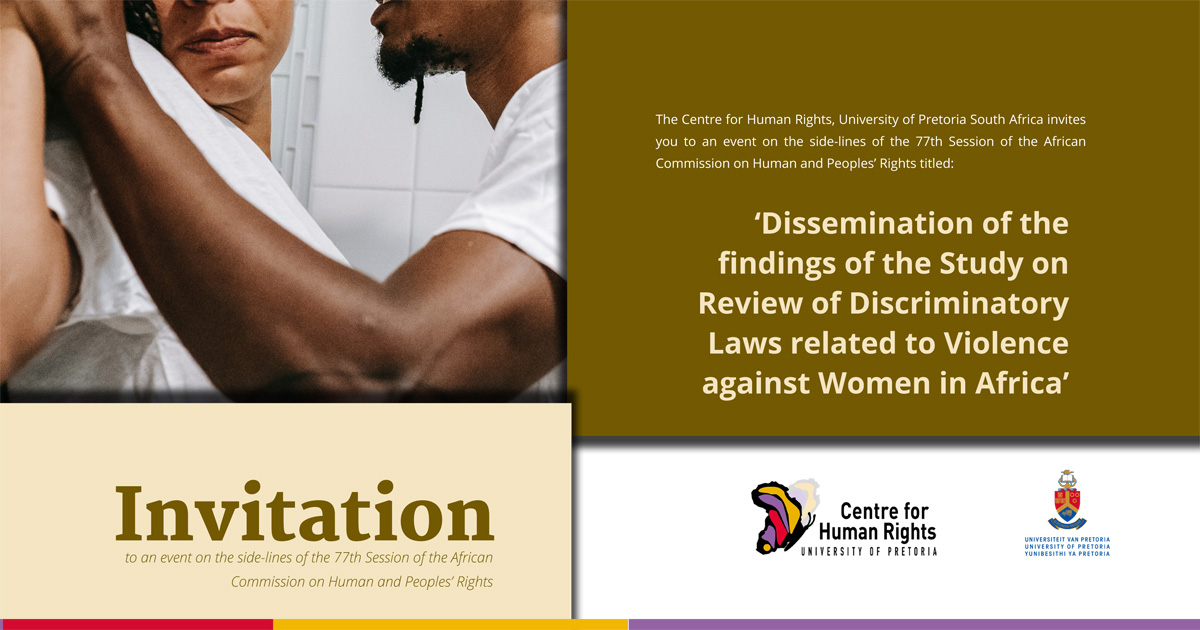
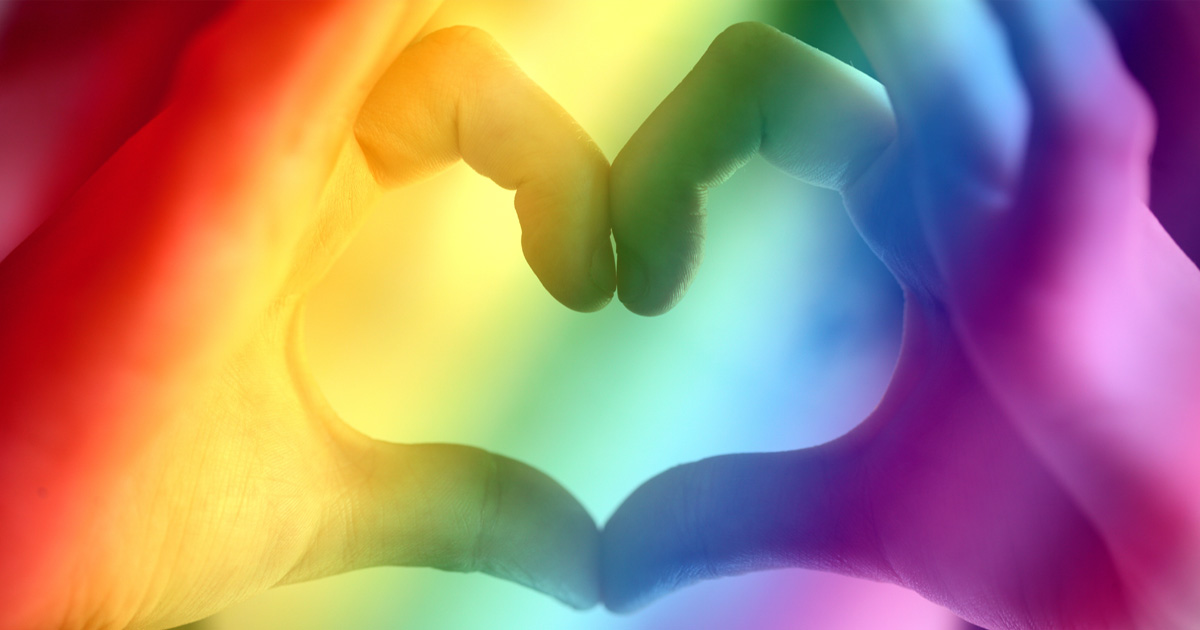
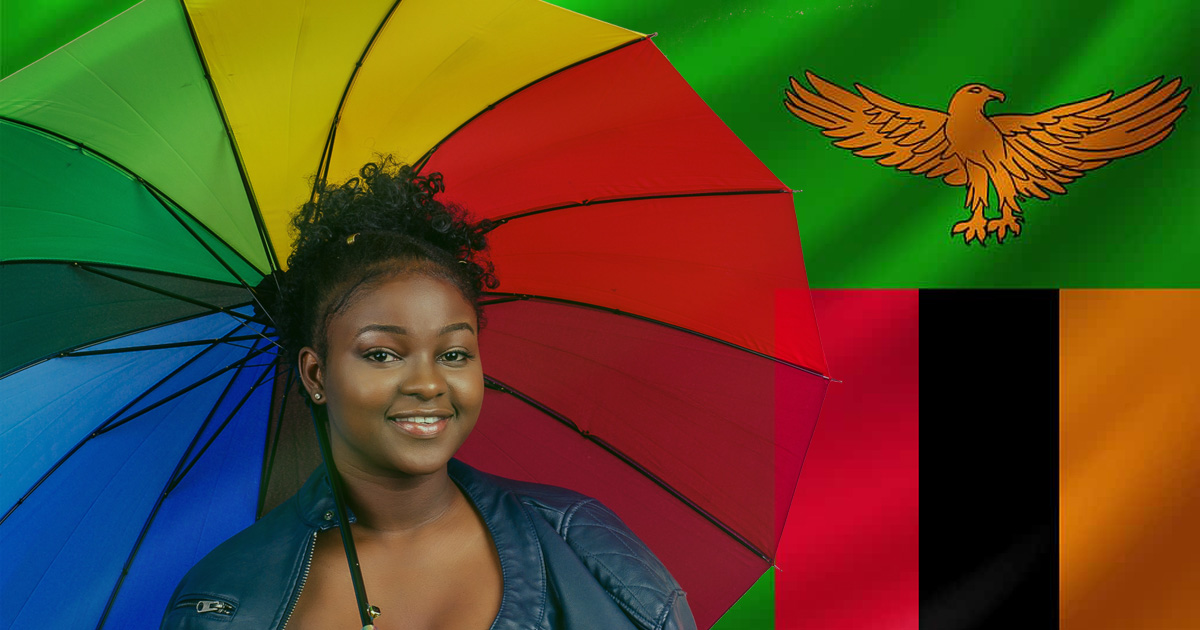
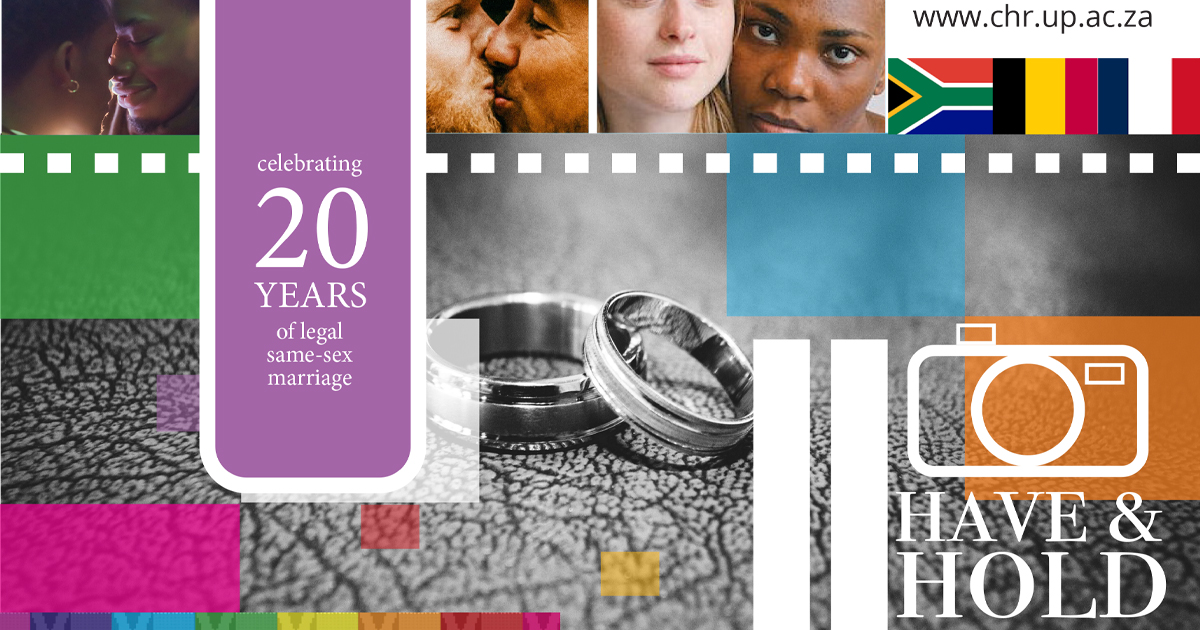
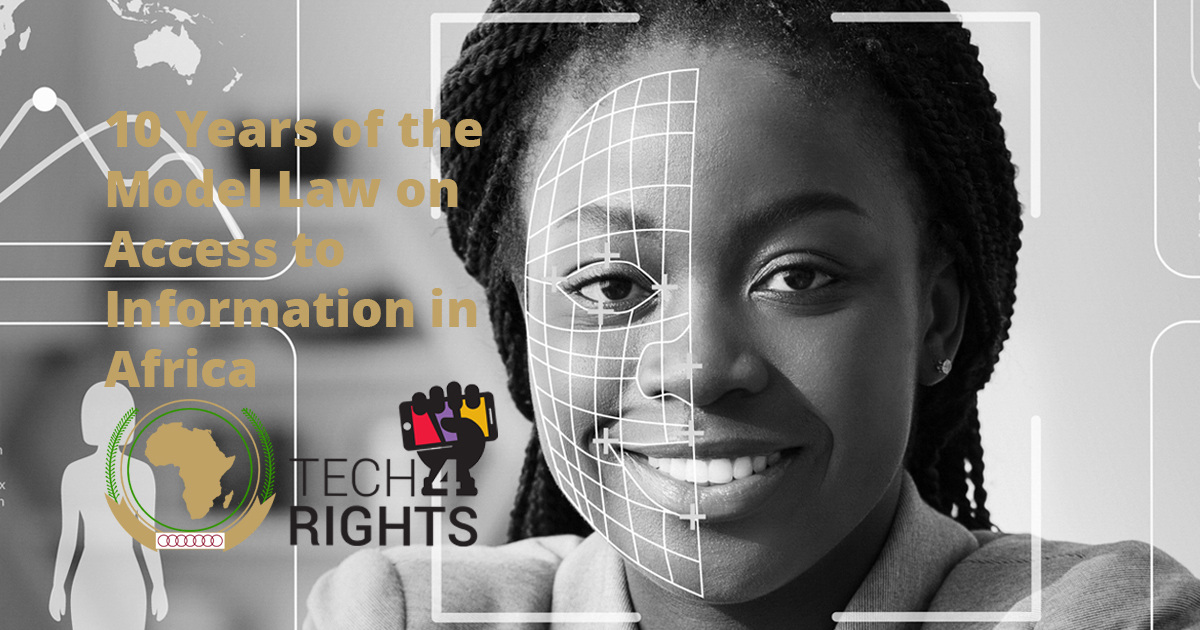
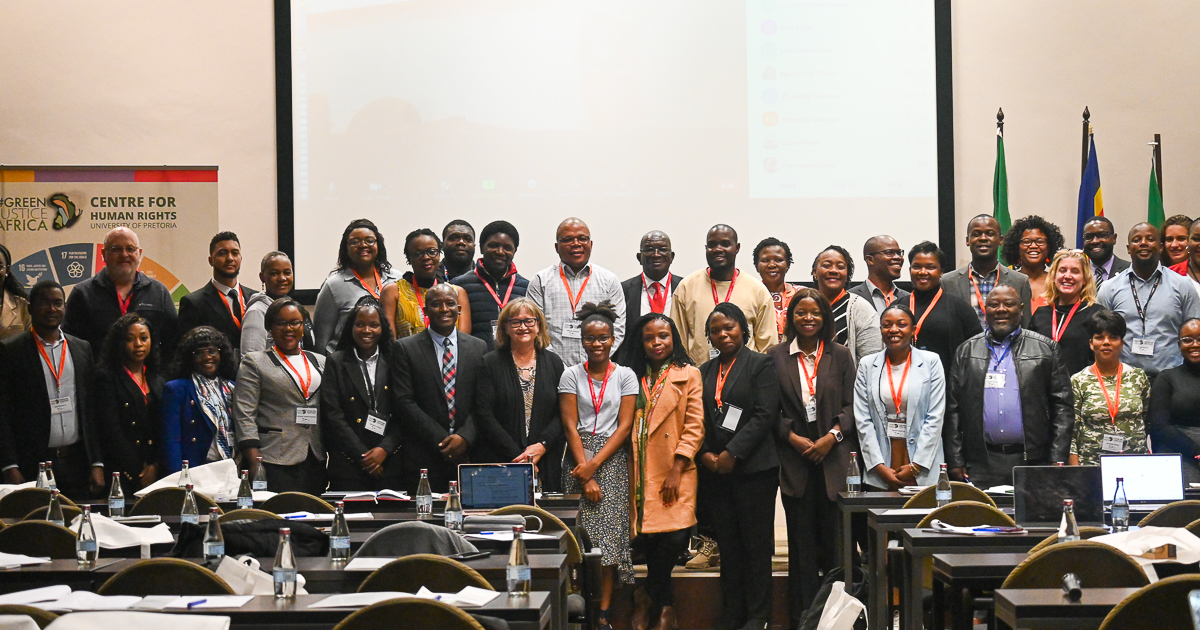
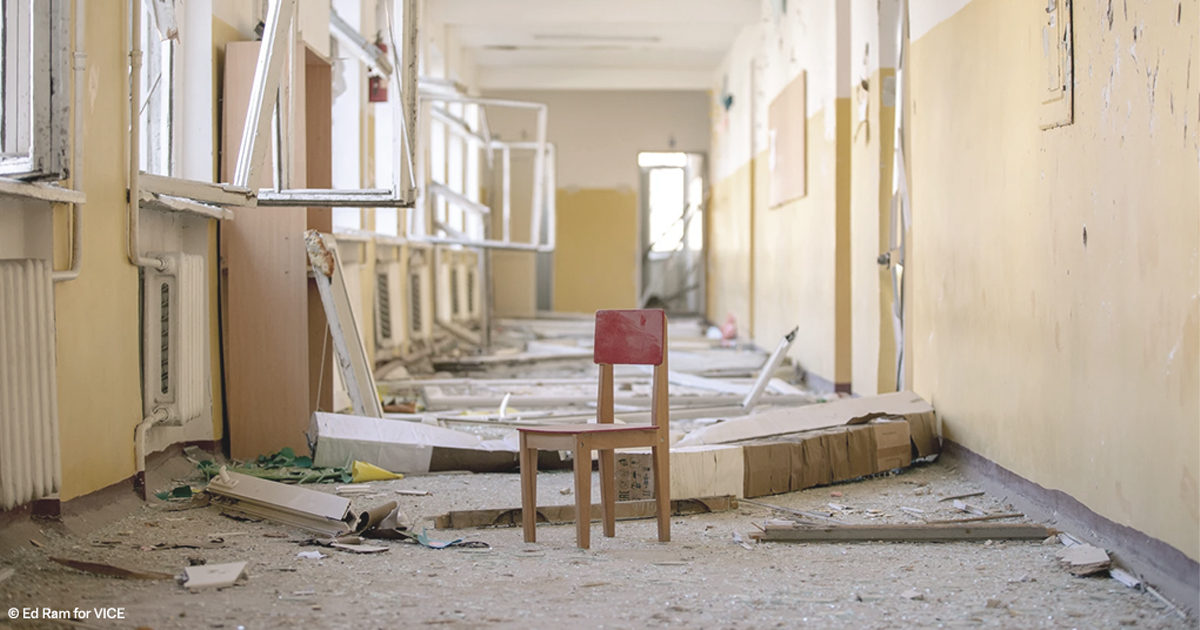
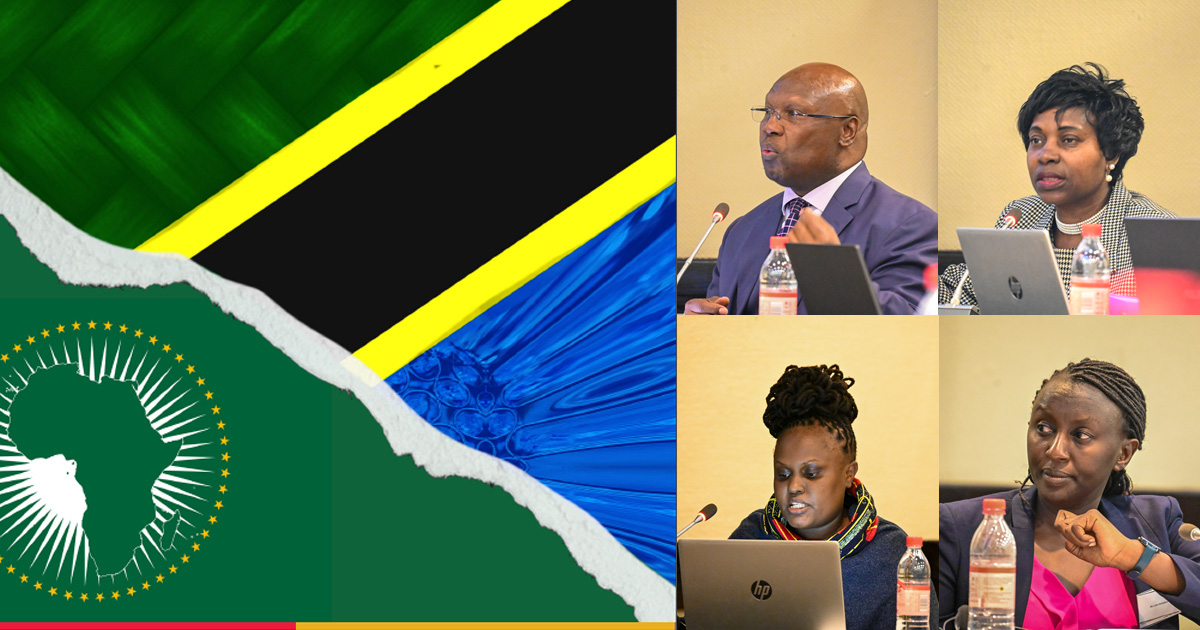
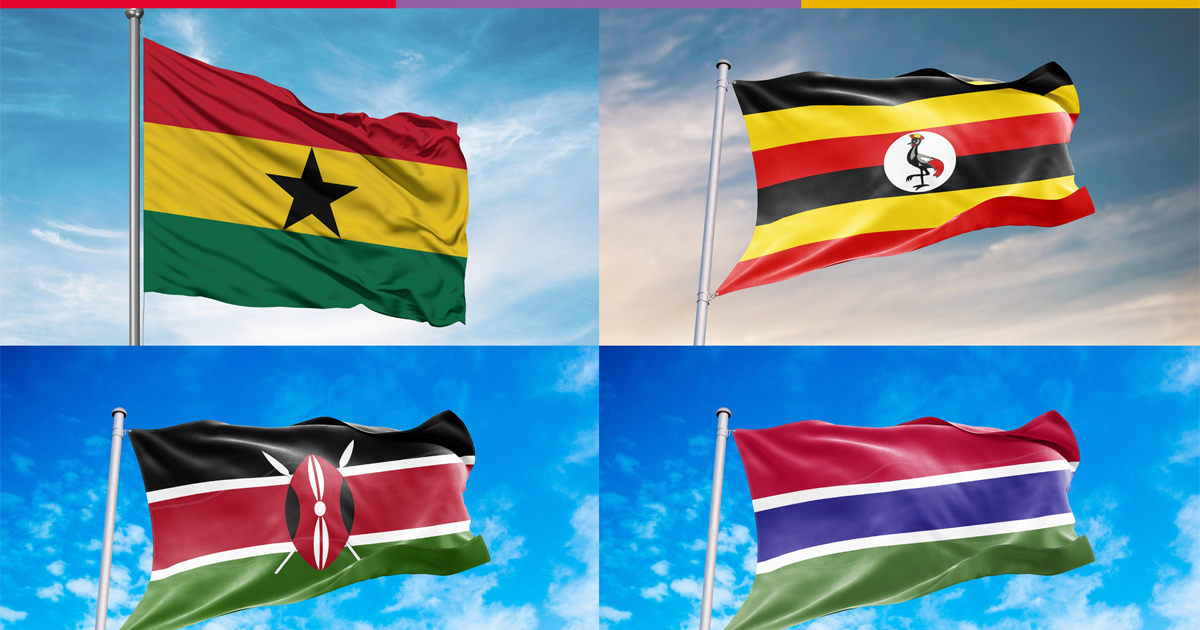
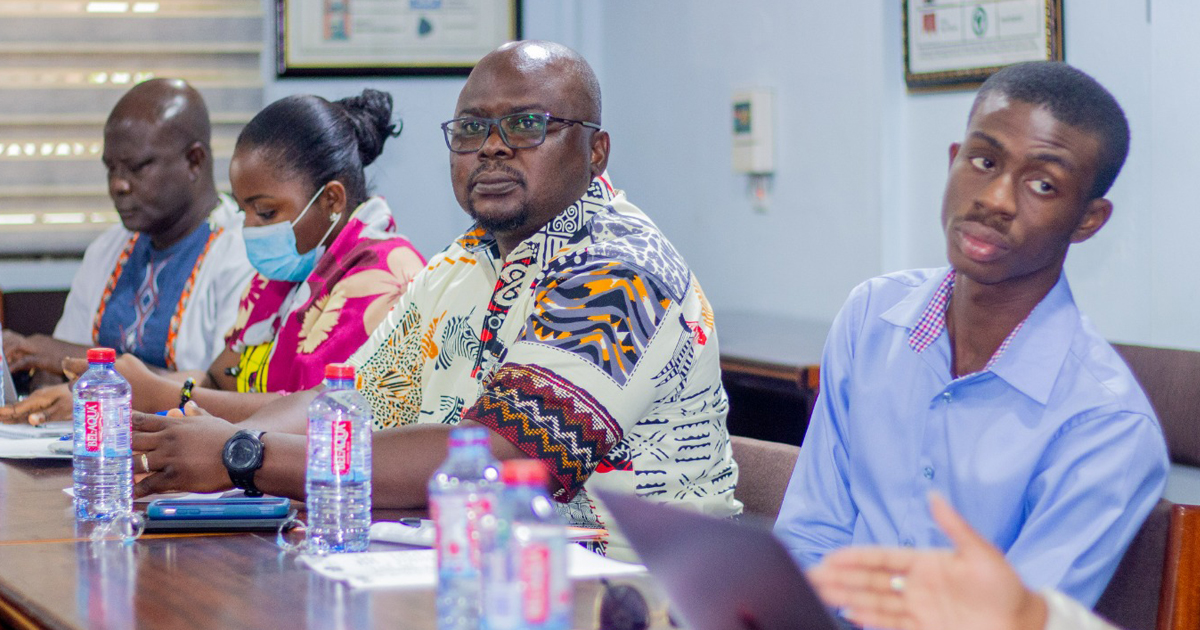
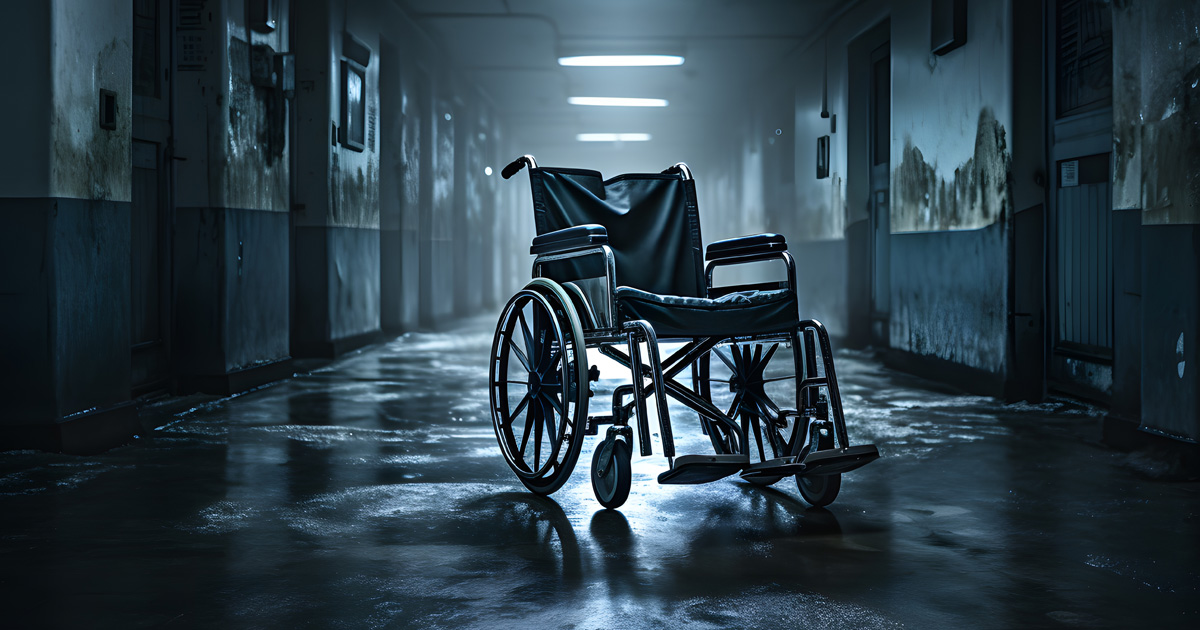
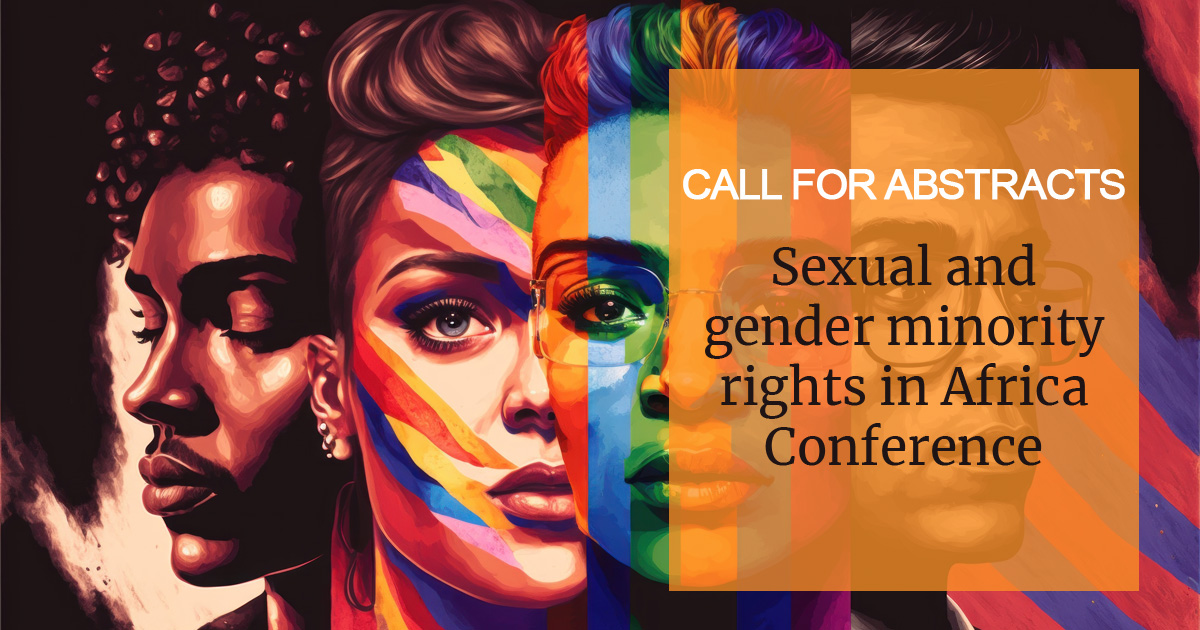
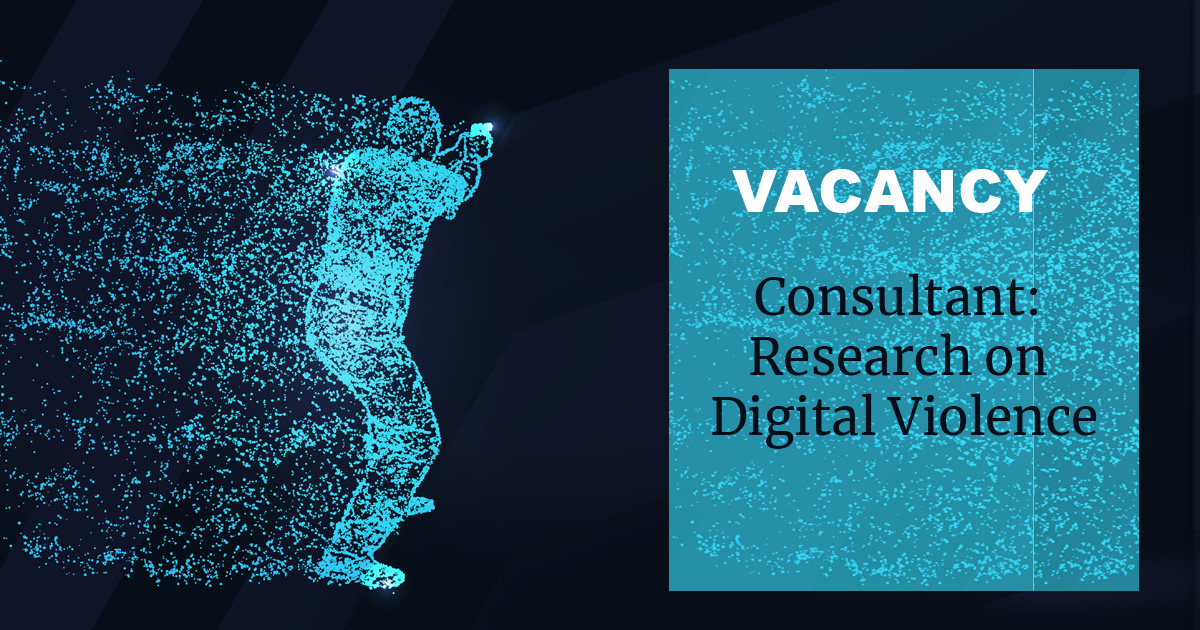

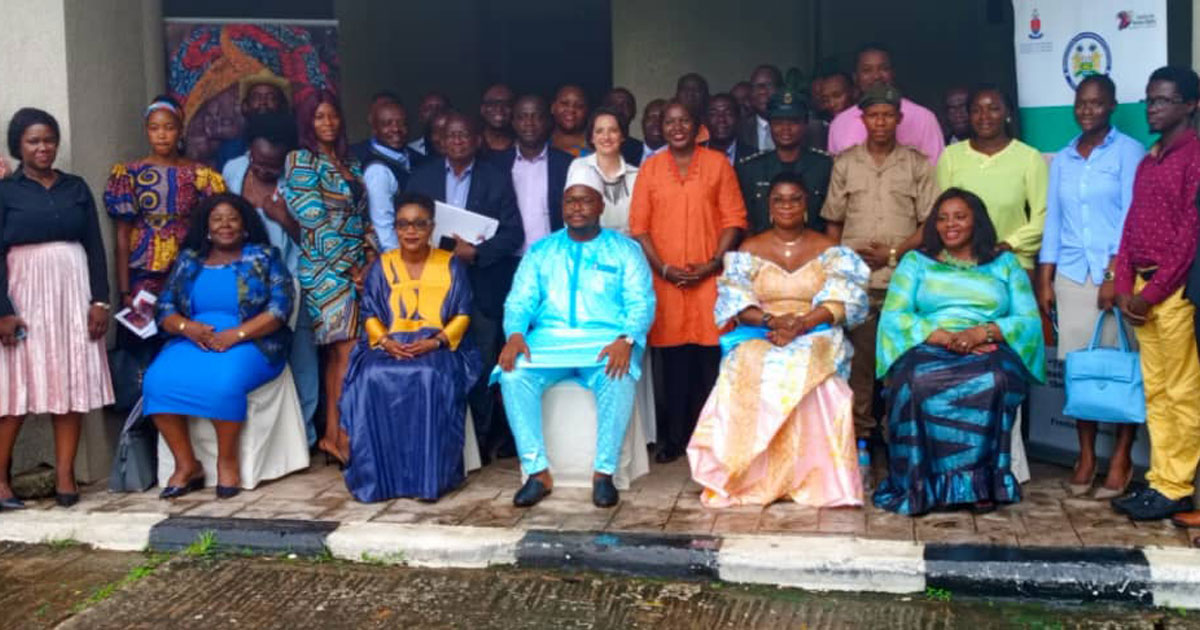
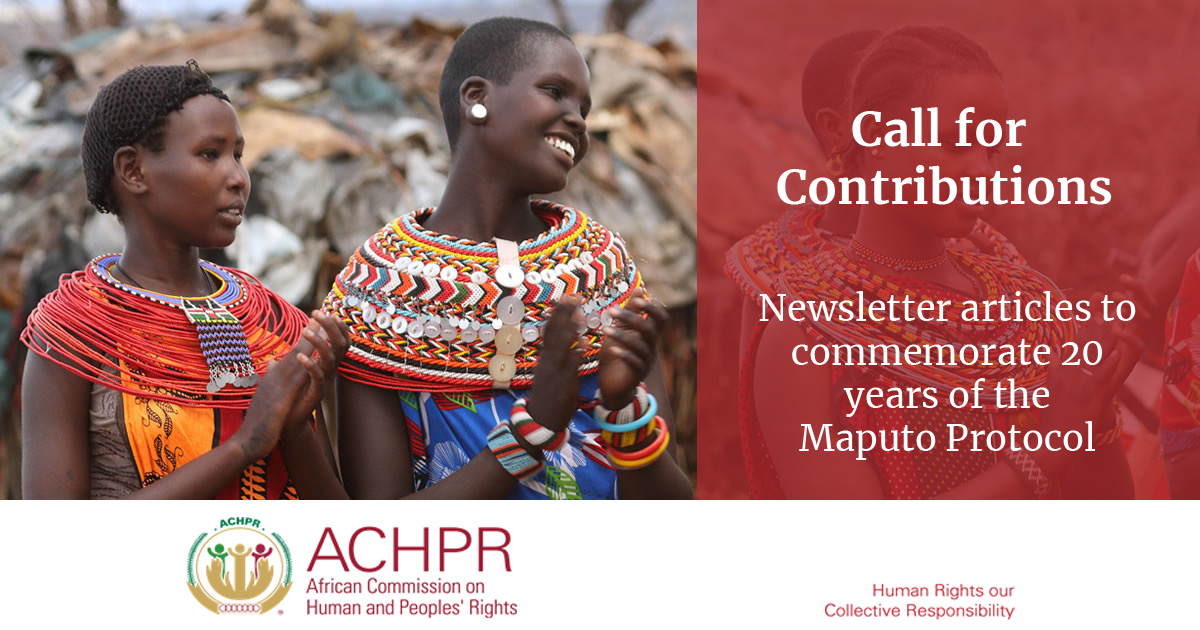
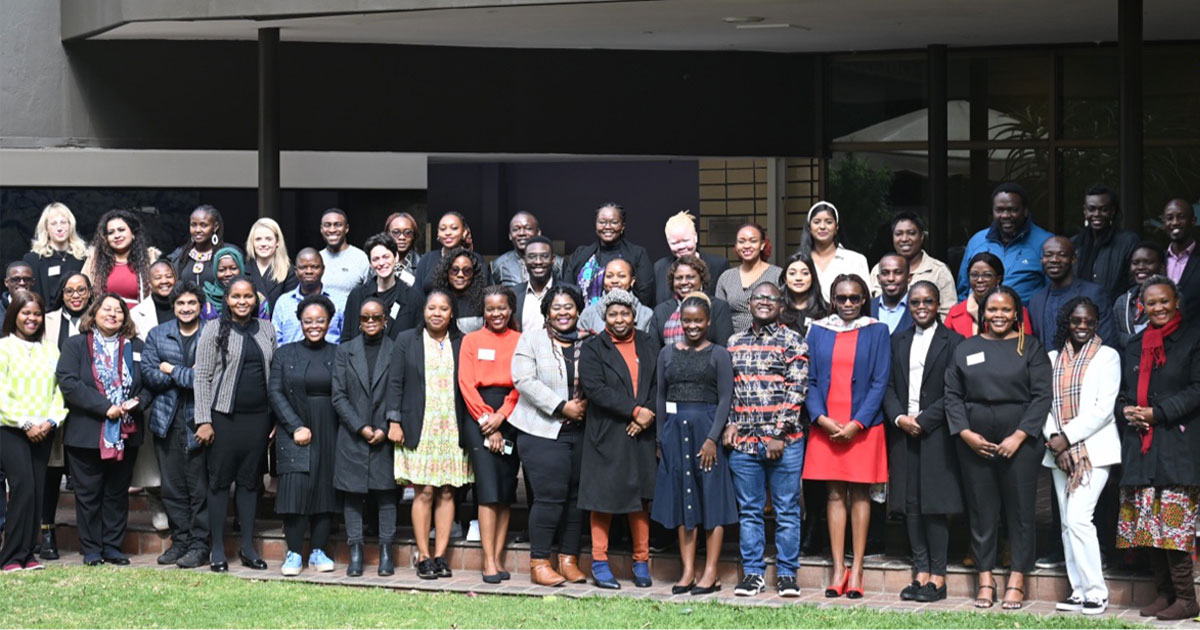
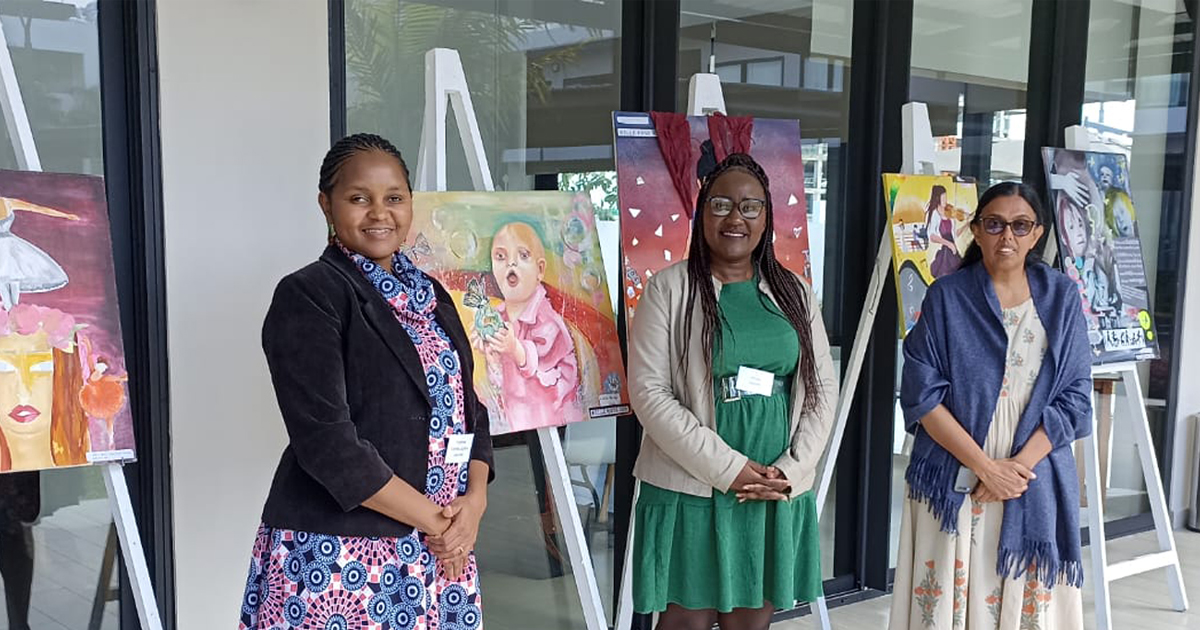

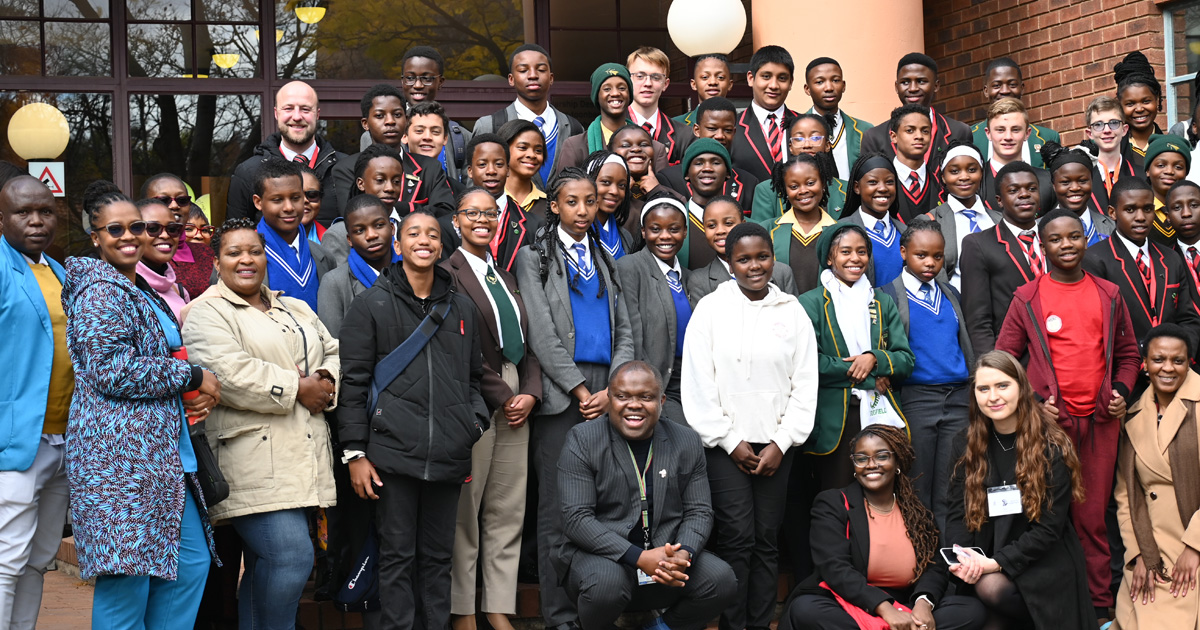
![In caption [Participants of the capacity building workshop on strategic litigation and advocacy for LGBTIQ+ activists in Africa]](/images/researchunits/sogie/news/images/lgbtq-capacity-building.jpg)
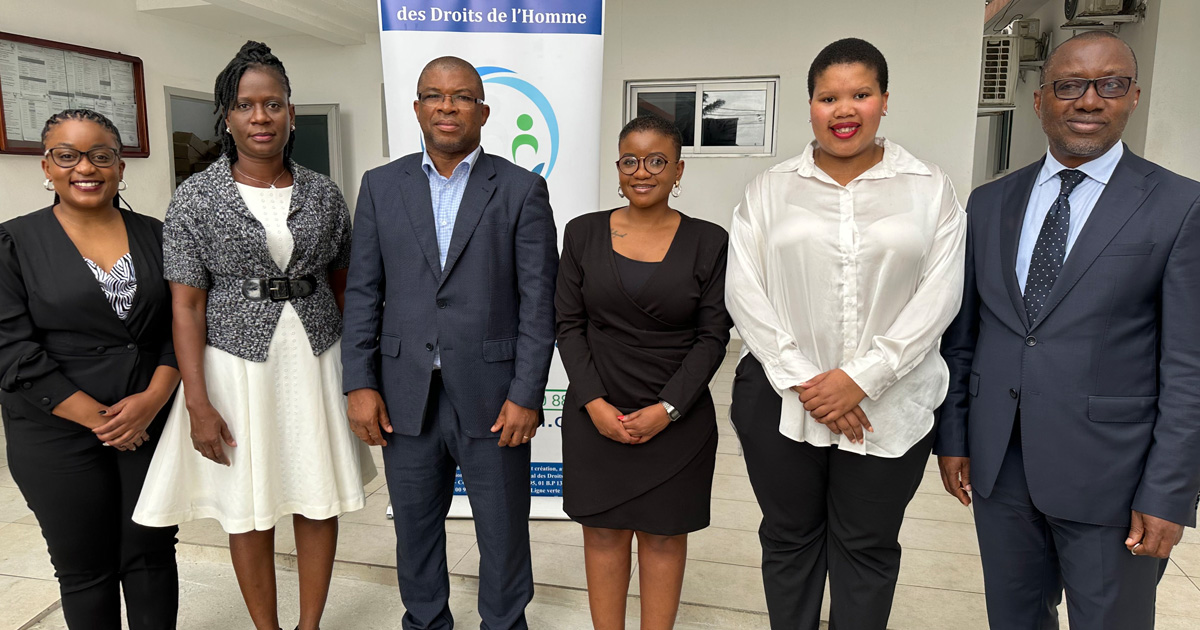
![[in picture: Participants of the Multi-stakeholder engagement]](/images/centrenews/2023/healthy-information-landscape.jpg)
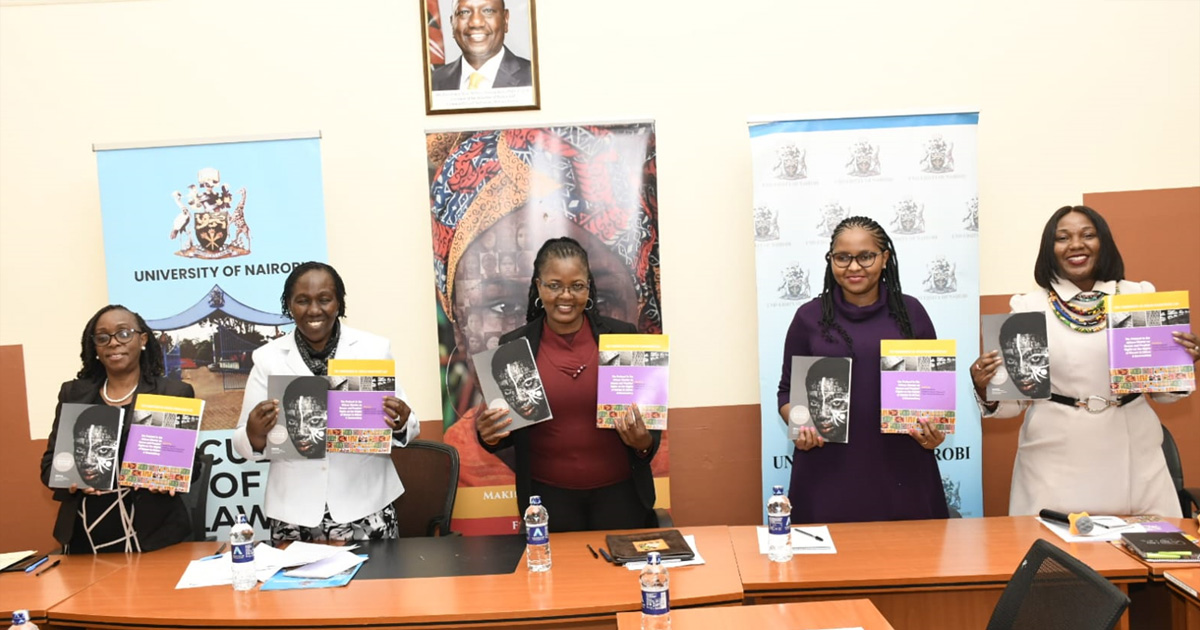
![[In picture:Participants of the Democracy Capacity Building Workshop ]](/images/researchunits/dce/news/images/democracy-capacity-18-july.jpg)
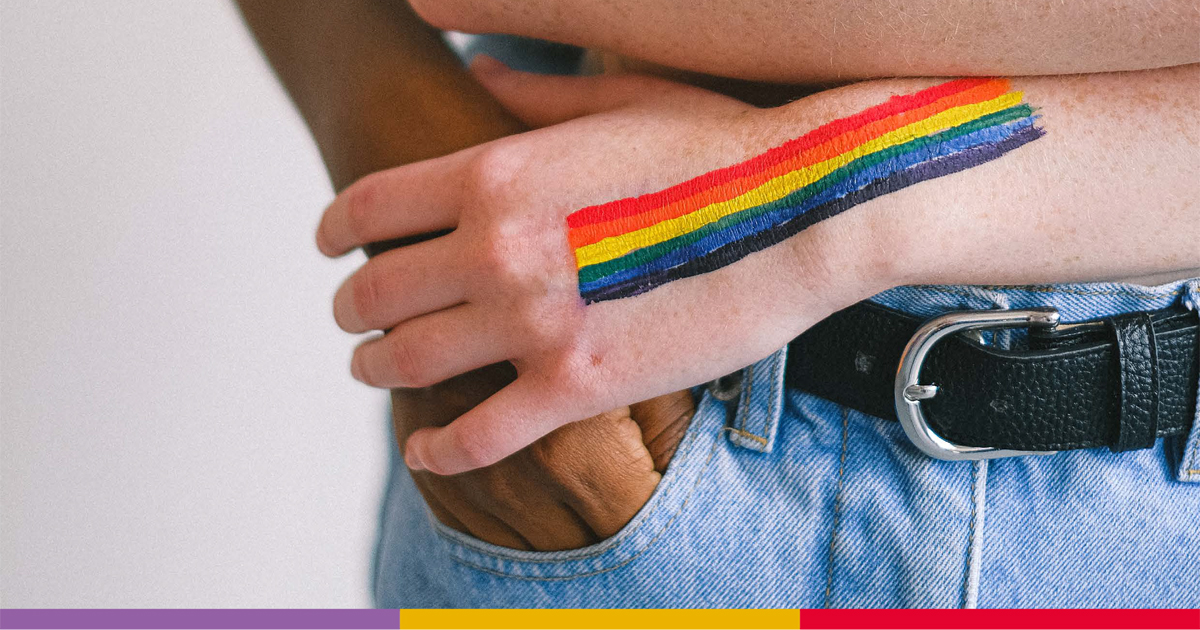
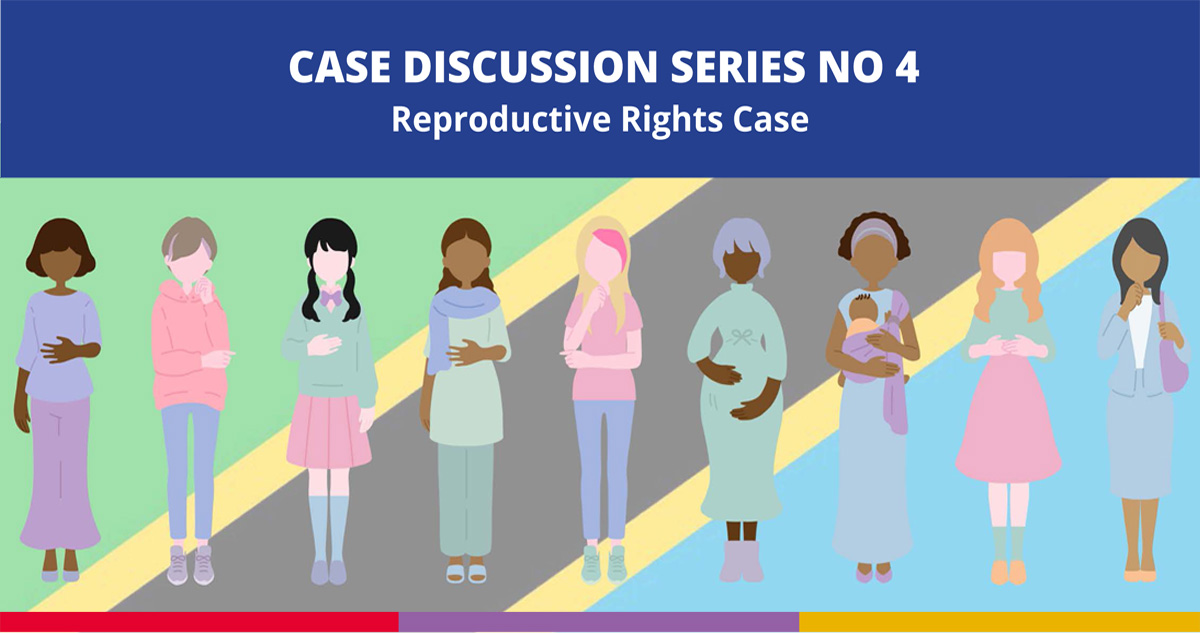
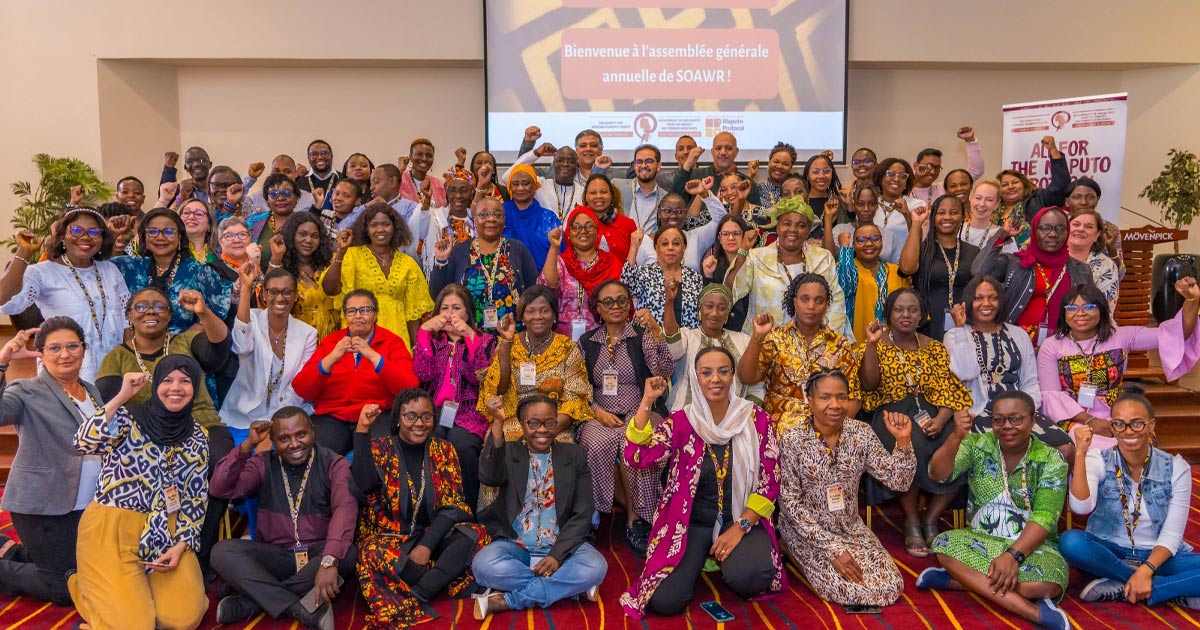
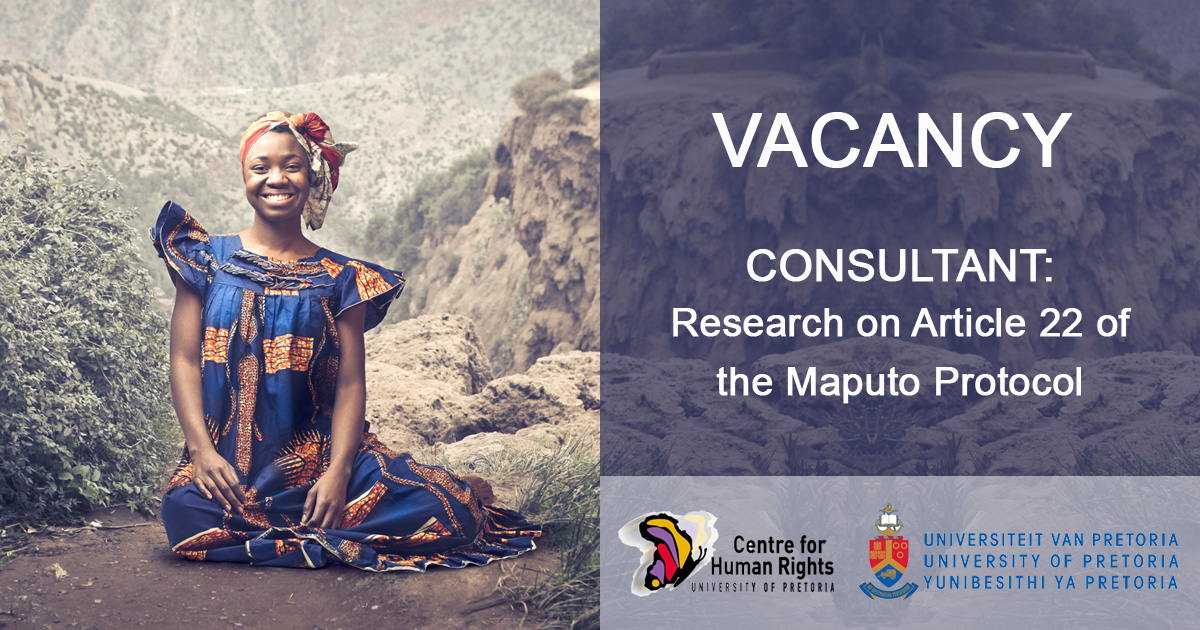
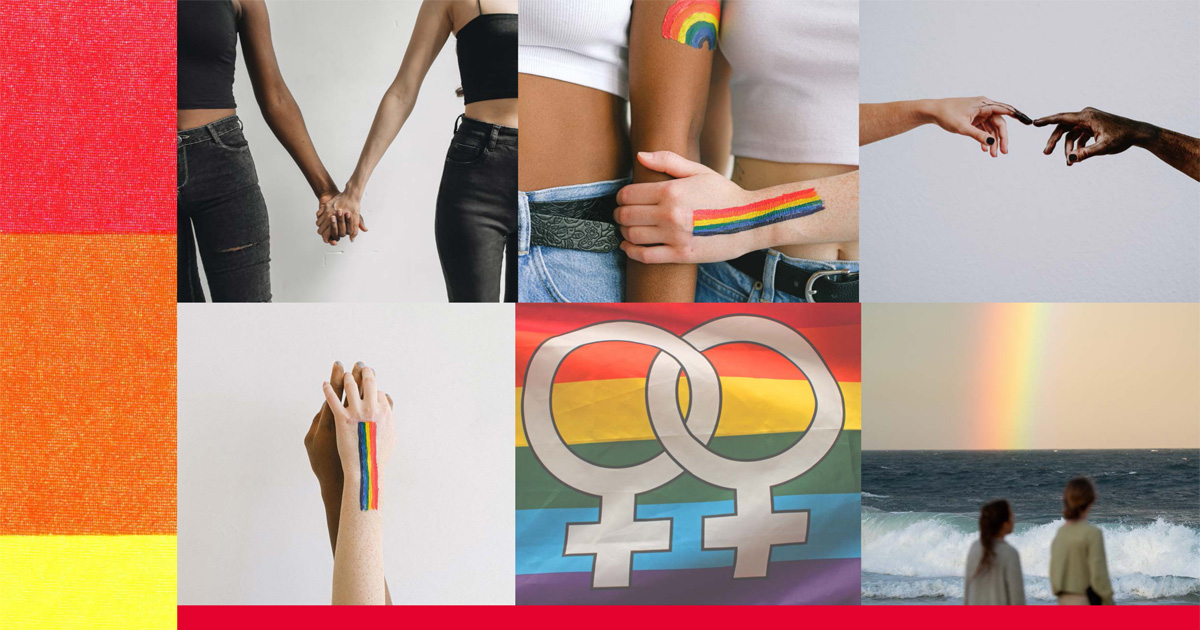
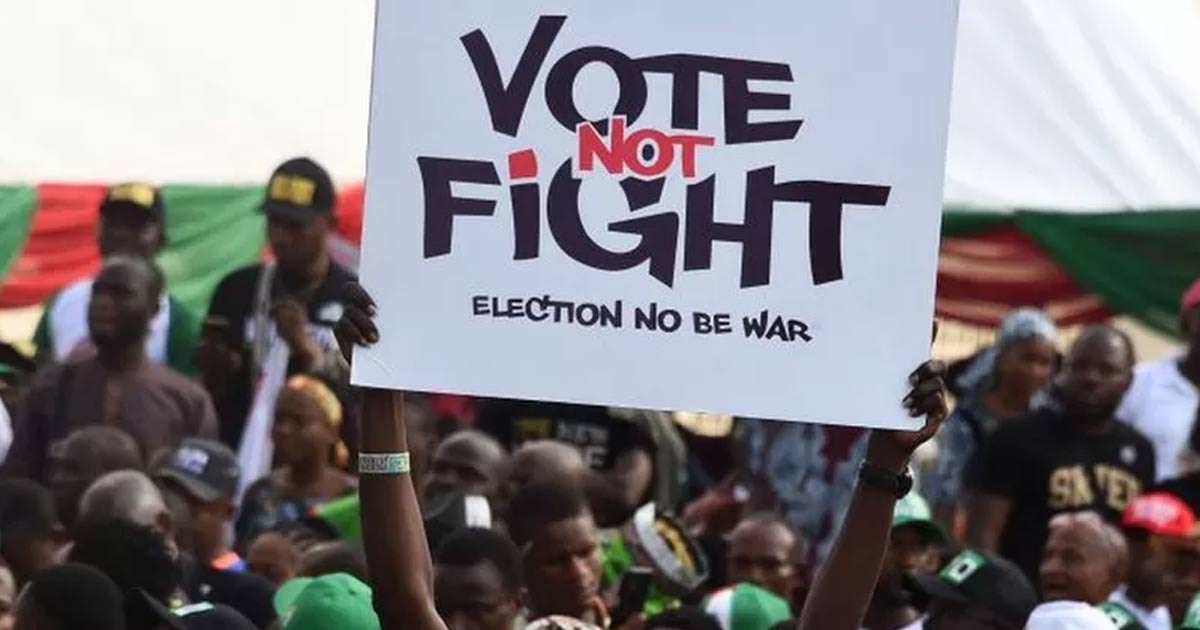
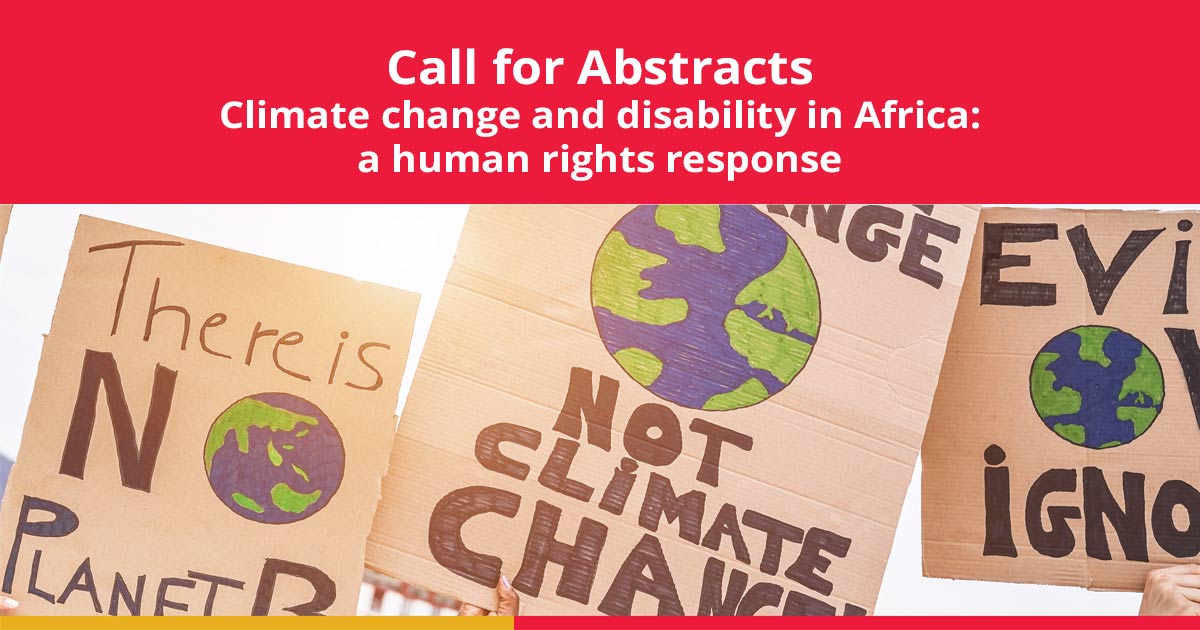
![[In picture, the manager of the Expression Information and Digital Rights Unit of the Centre for Human Rights, Hlengiwe Dube, the Executive Director of the Transformation Resource Centre, Tsikoane Peshoane, and several legislative committee representatives from Lesotho, attending the digital rights capacity building workshop]](/images/centrenews/2023/Training-for-Parliamentarians.jpg)
